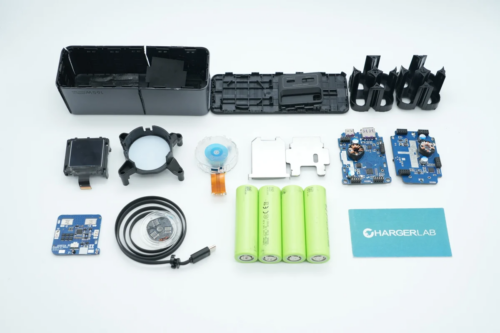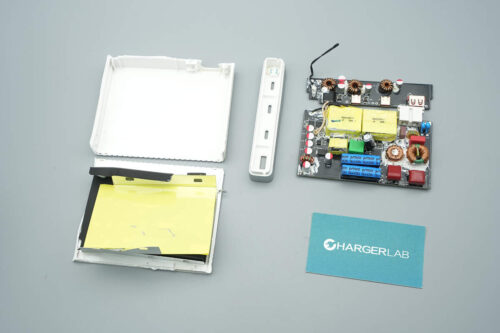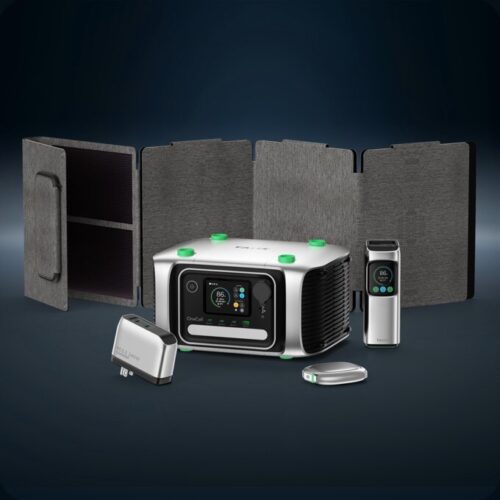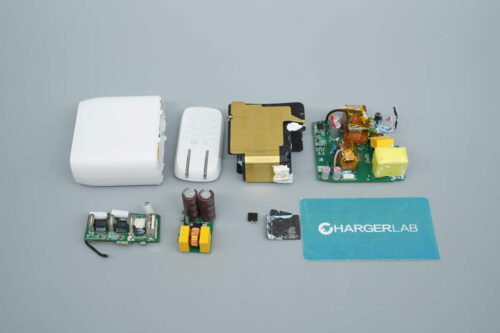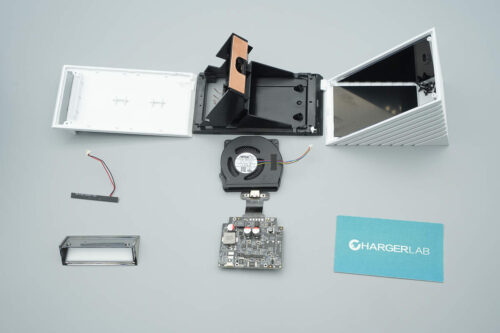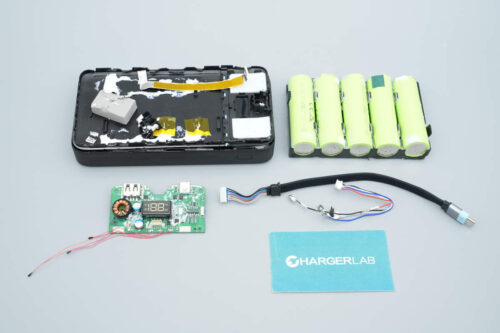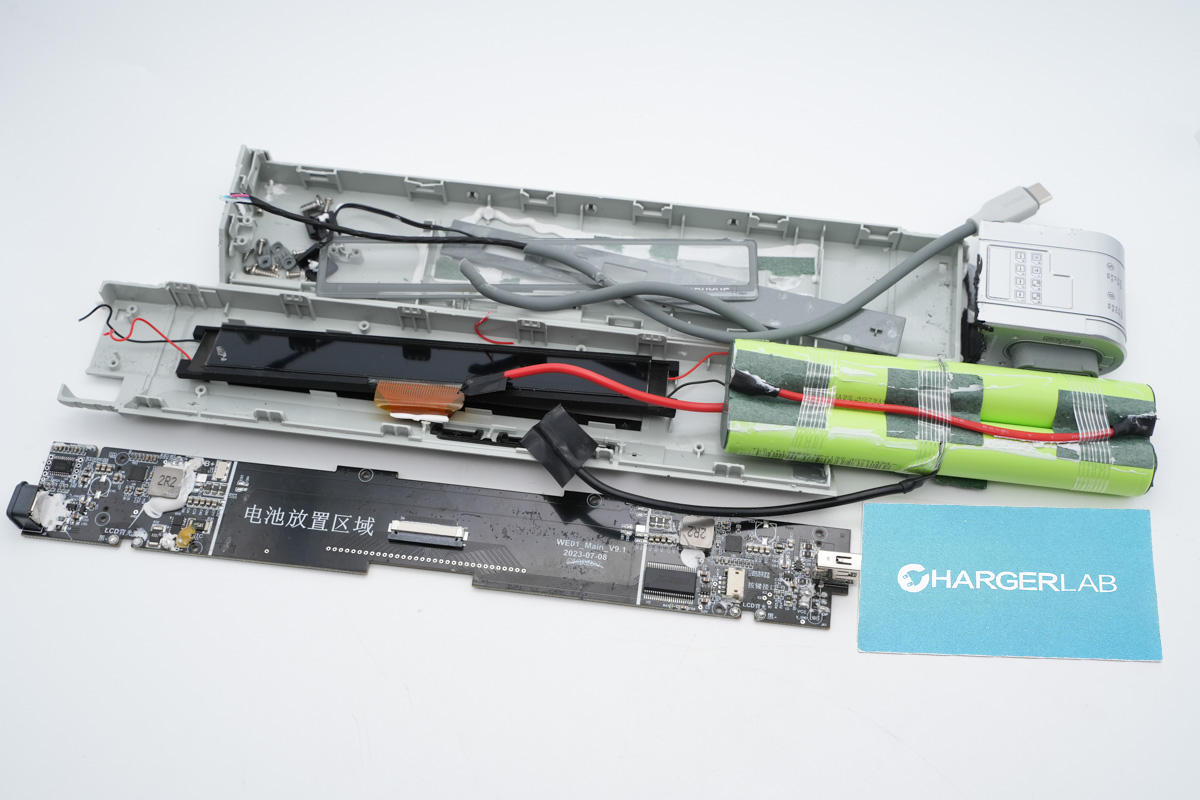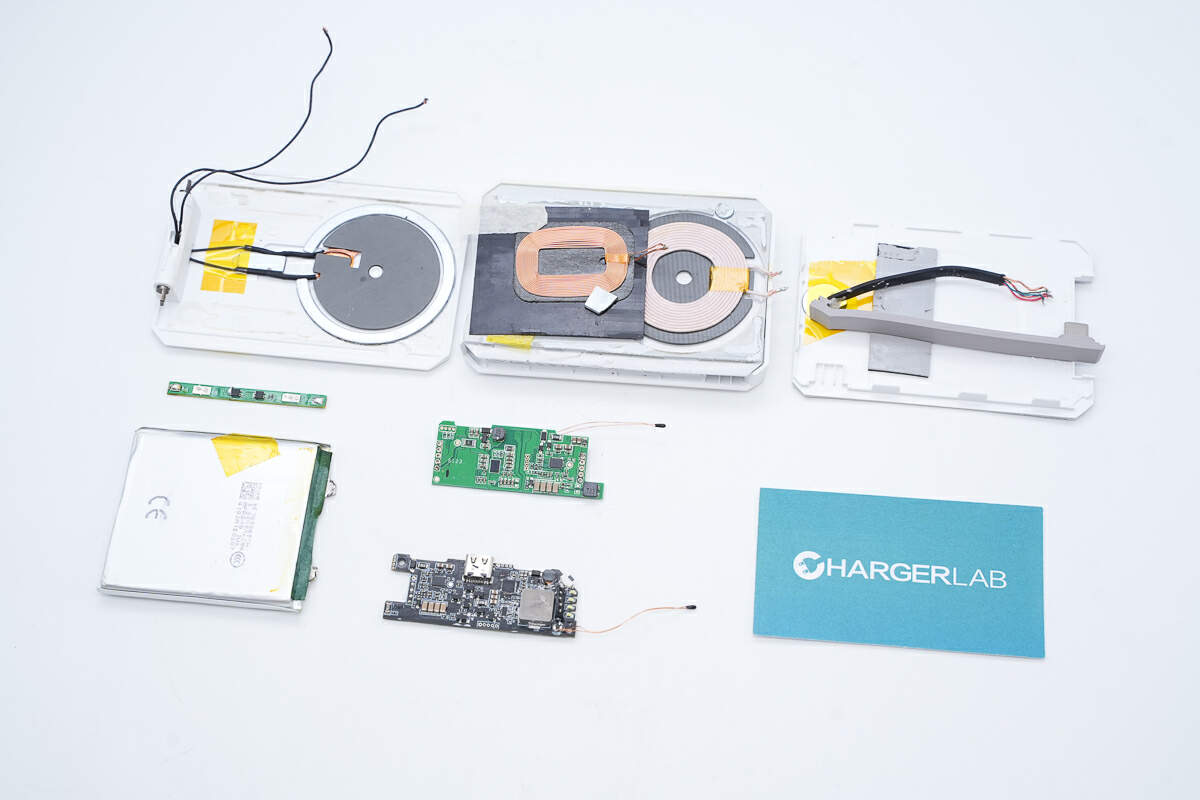Introduction
UGREEN has launched a 20,000mAh power bank with a retractable cable. This power bank features a built-in 65cm retractable cable and offers both USB-C and USB-A ports. When used individually, the retractable cable and USB-C port each support up to 100W output. When used simultaneously, the retractable cable supports 100W output, while the USB-C port provides 65W.
The device includes a digital display that shows battery level, power, and usage time, as well as voltage and current for each port. It uses high-quality SunPower 21700 battery cells, which retain over 70% capacity even after 1,000 full charge cycles, offering longer lifespan and greater durability.
Safety features include built-in temperature monitoring, six major safety certifications, and ten reliable protection mechanisms. The power bank also meets China’s mandatory 3C certification standards, ensuring quality and reliability. Next, we’ll take a teardown look at it to explore its internal design and components.
Product Appearance

The front of the packaging box features the UGREEN logo, the product’s appearance, and its key selling points.
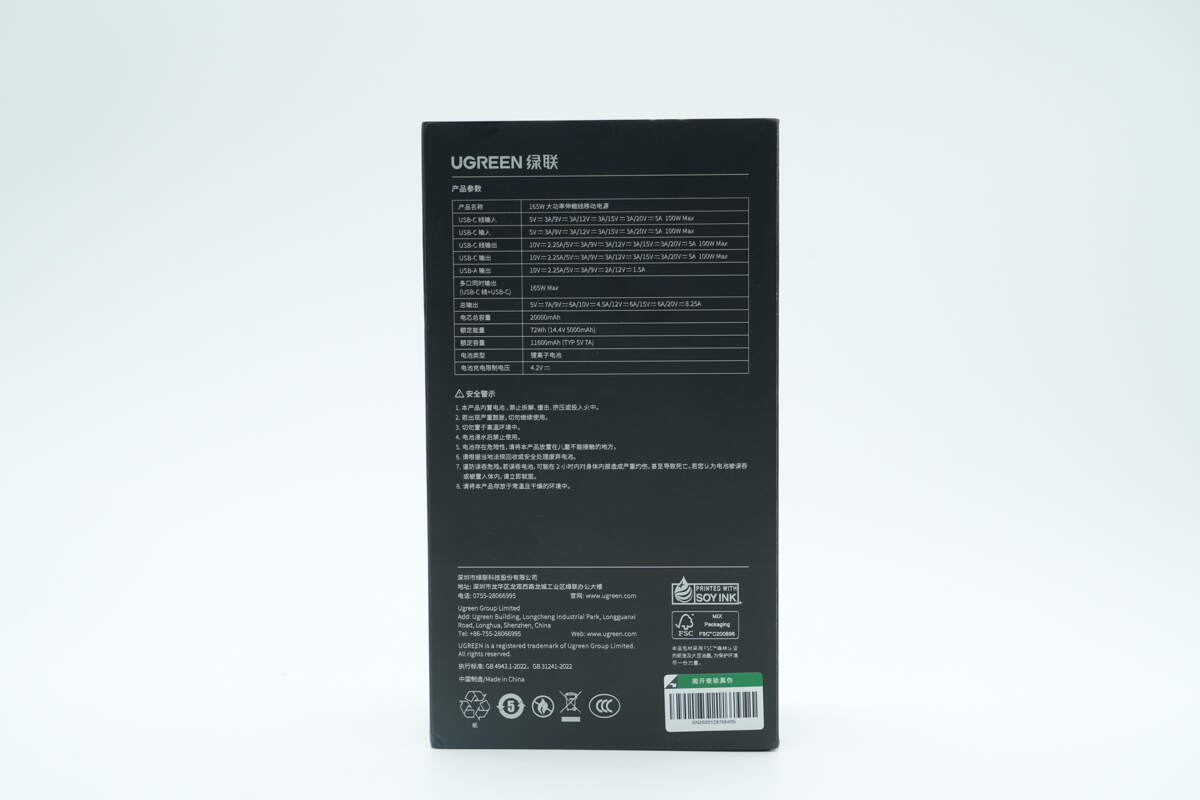
The back of the packaging displays the specifications, precautions, and manufacturer information.
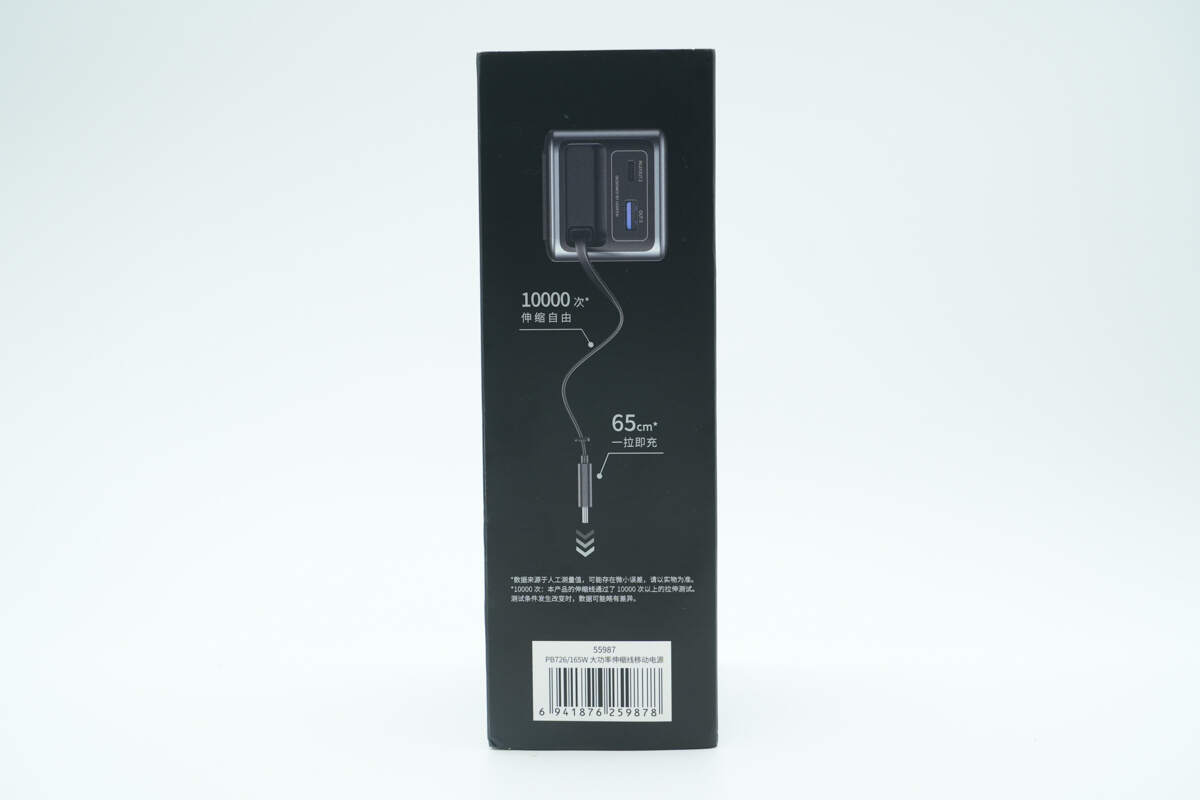
The side of the packaging indicates that the retractable cable is 65cm long and has passed 10,000 stretch tests.
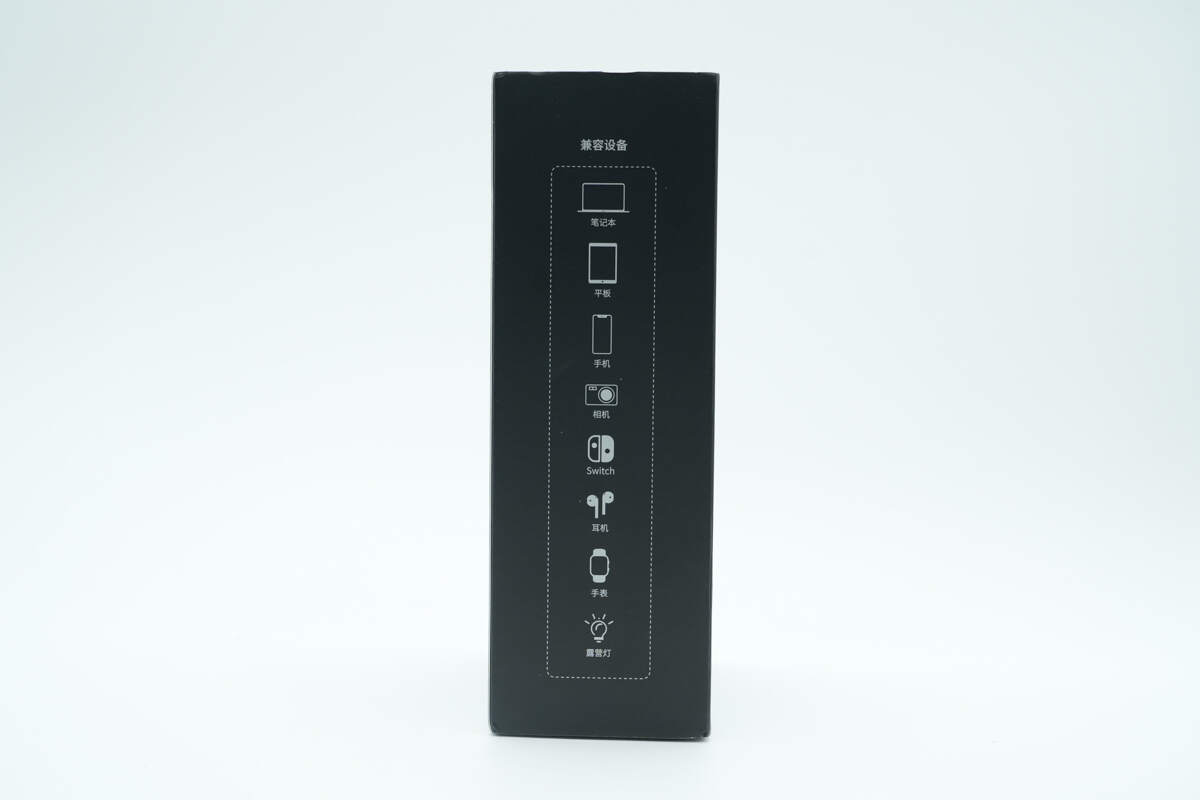
The other side of the packaging lists the devices compatible with charging from the power bank.
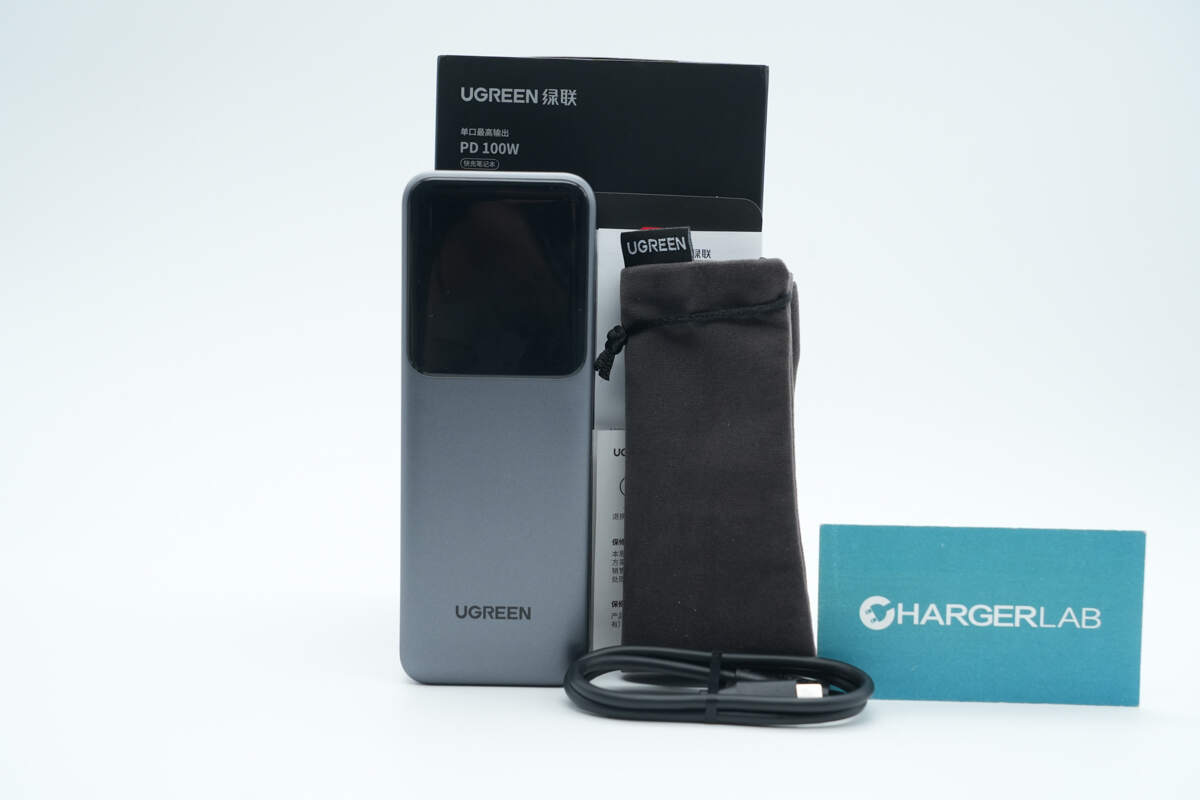
The package includes the power bank, a charging cable, a storage pouch, and some documents.
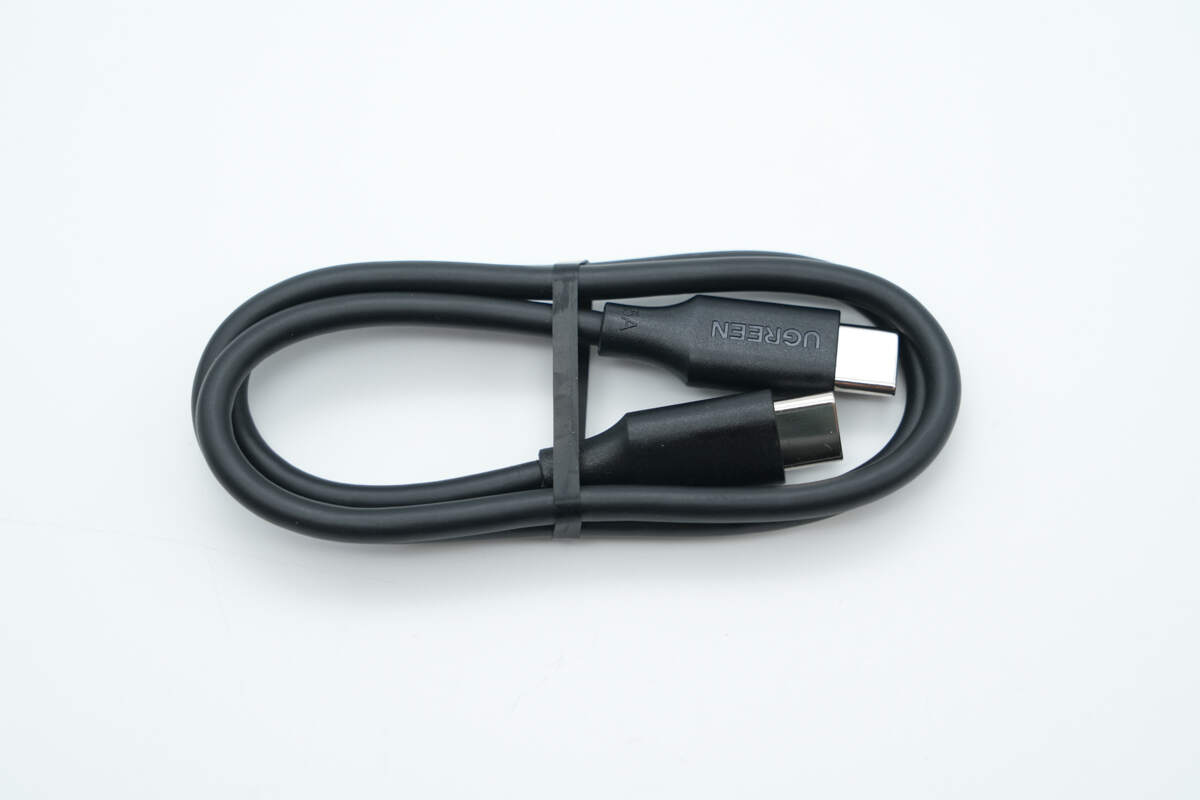
The included cable is a dual USB-C type with a matte finish on the connectors, and the front side features the UGREEN logo.
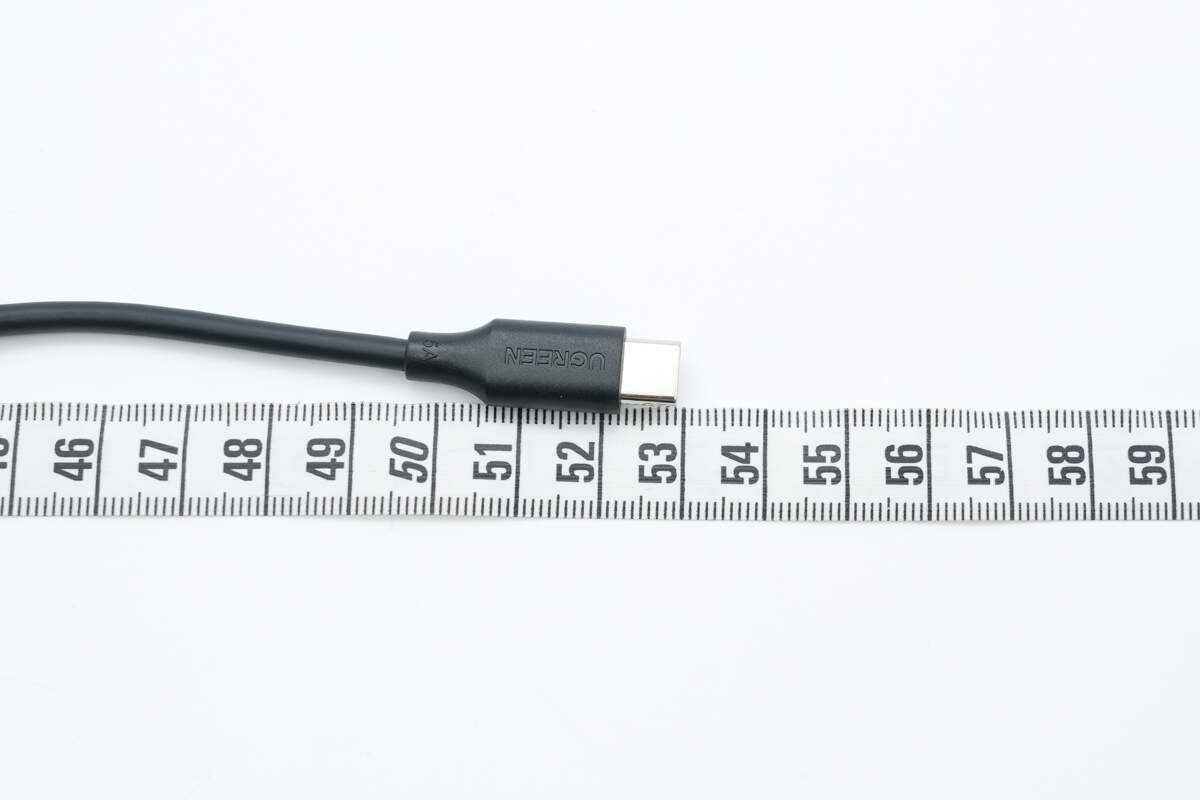
The length of the cable is about 53 cm (20.87 inches).
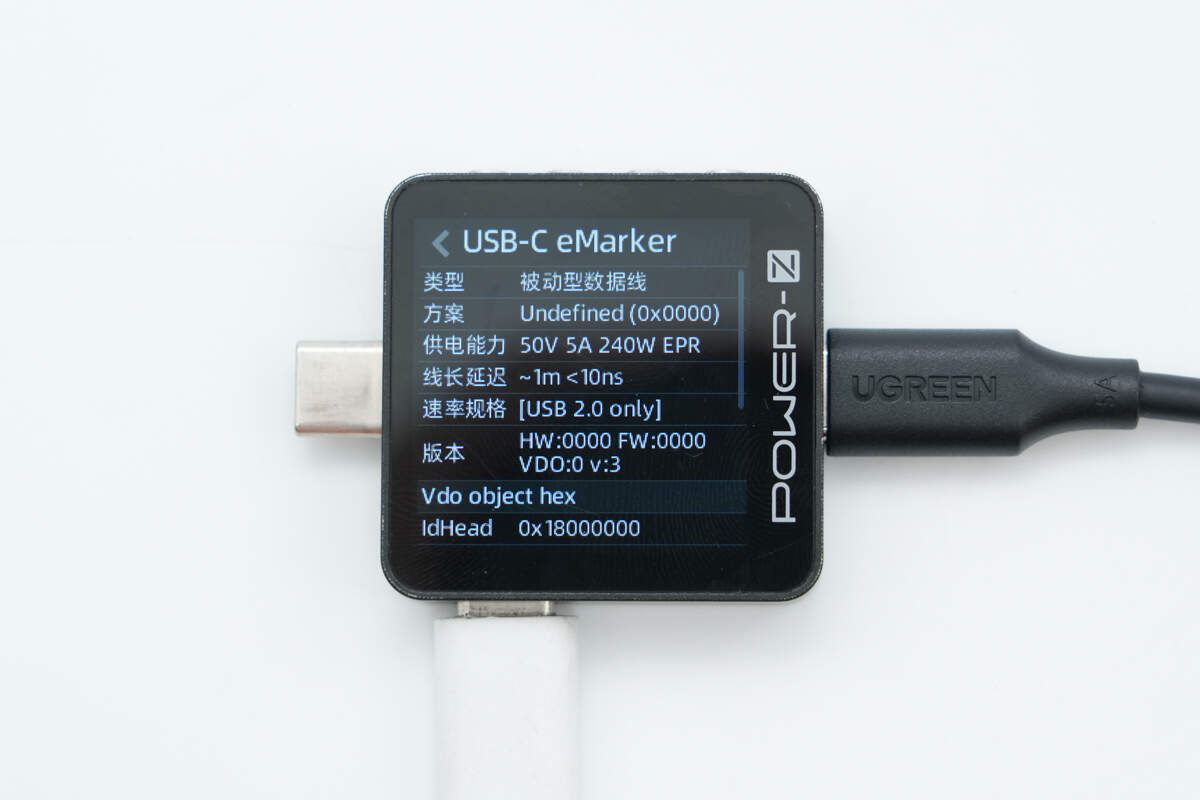
ChargerLAB POWER-Z KM003C shows that the cable has an E-Marker chip, supporting power delivery of up to 50V/5A and data transfer speeds of USB 2.0.

It continues the design language of the series.
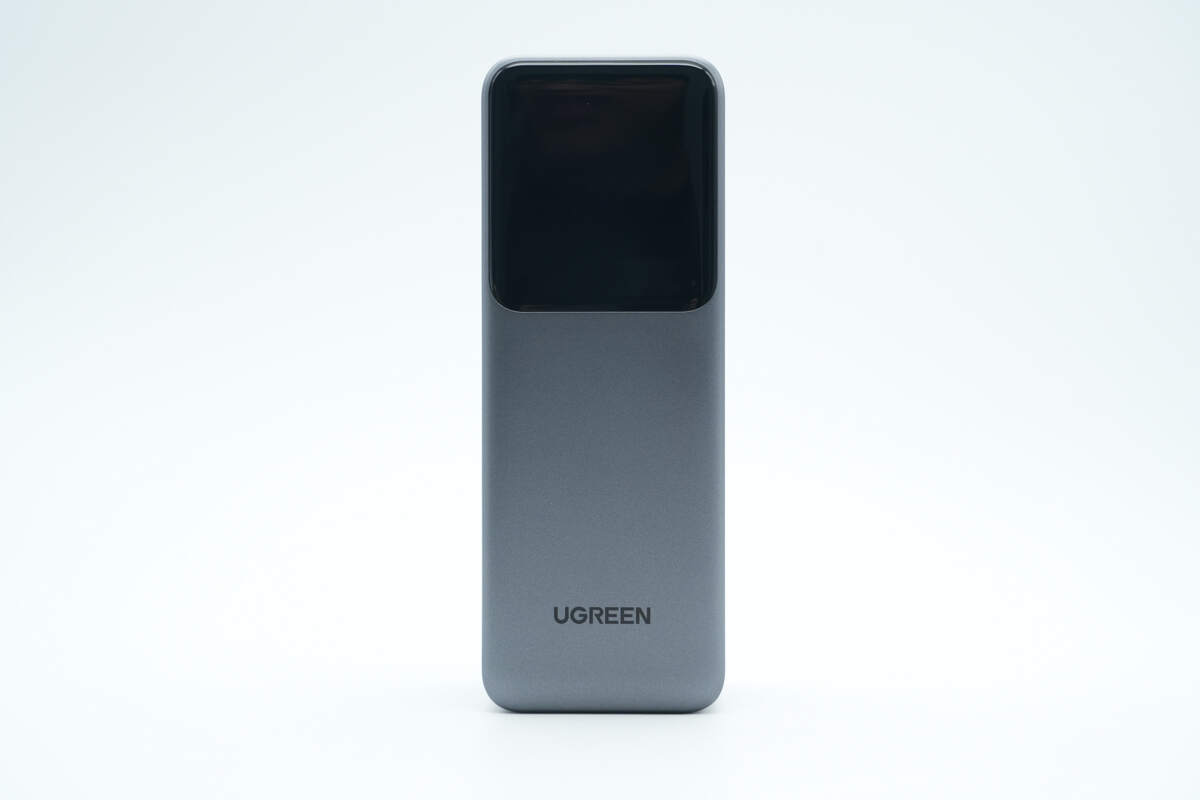
The front features a digital display screen.
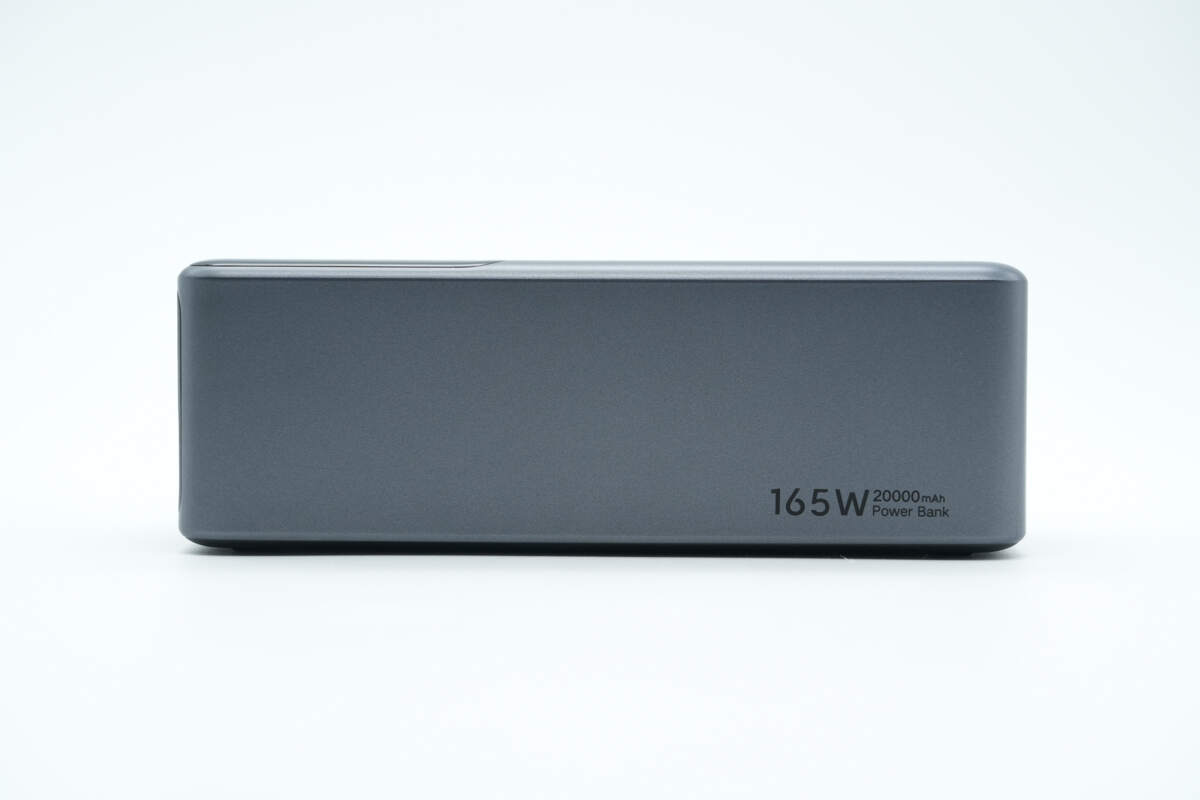
The side is labeled with "165W 20000mAh Power Bank."
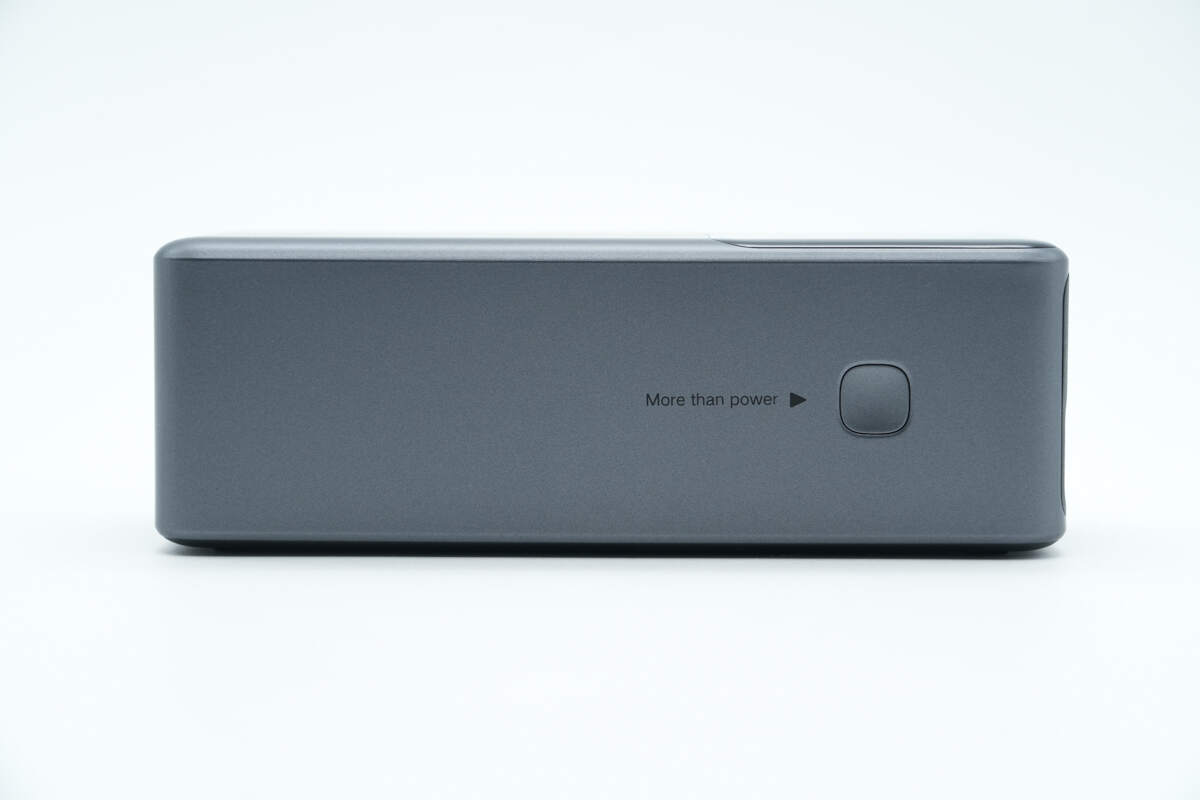
The other side has a power button.
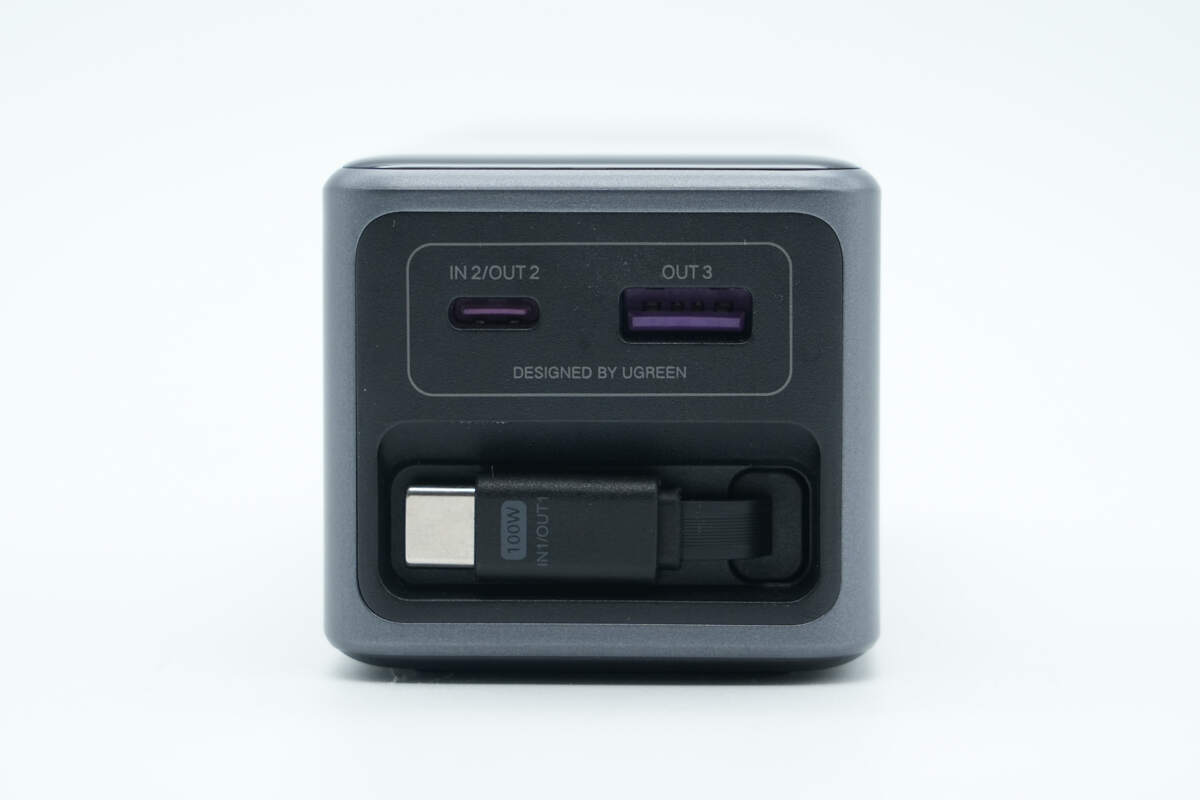
The top is equipped with a USB-C port, a USB-A port, and a retractable cable.
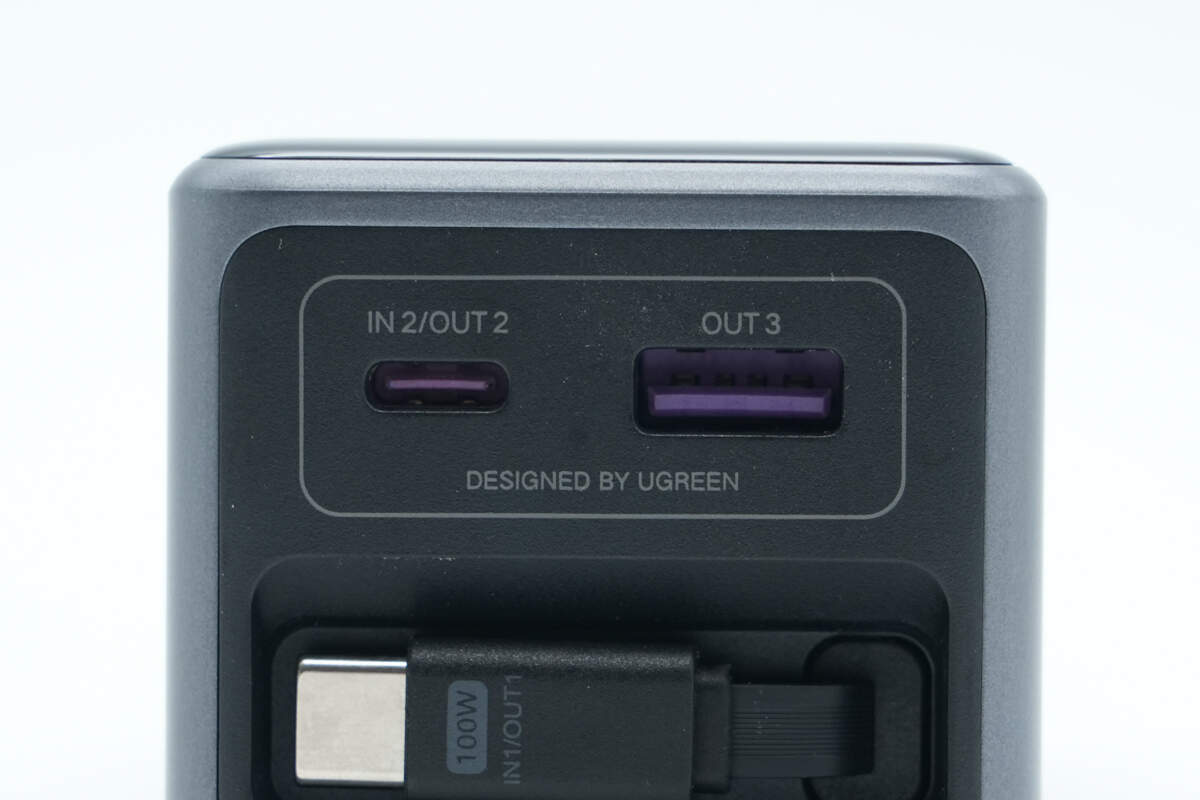
Both ports have purple plastic sheets, indicating support for fast charging.

The retractable cable connector is secured by magnetic attachment.
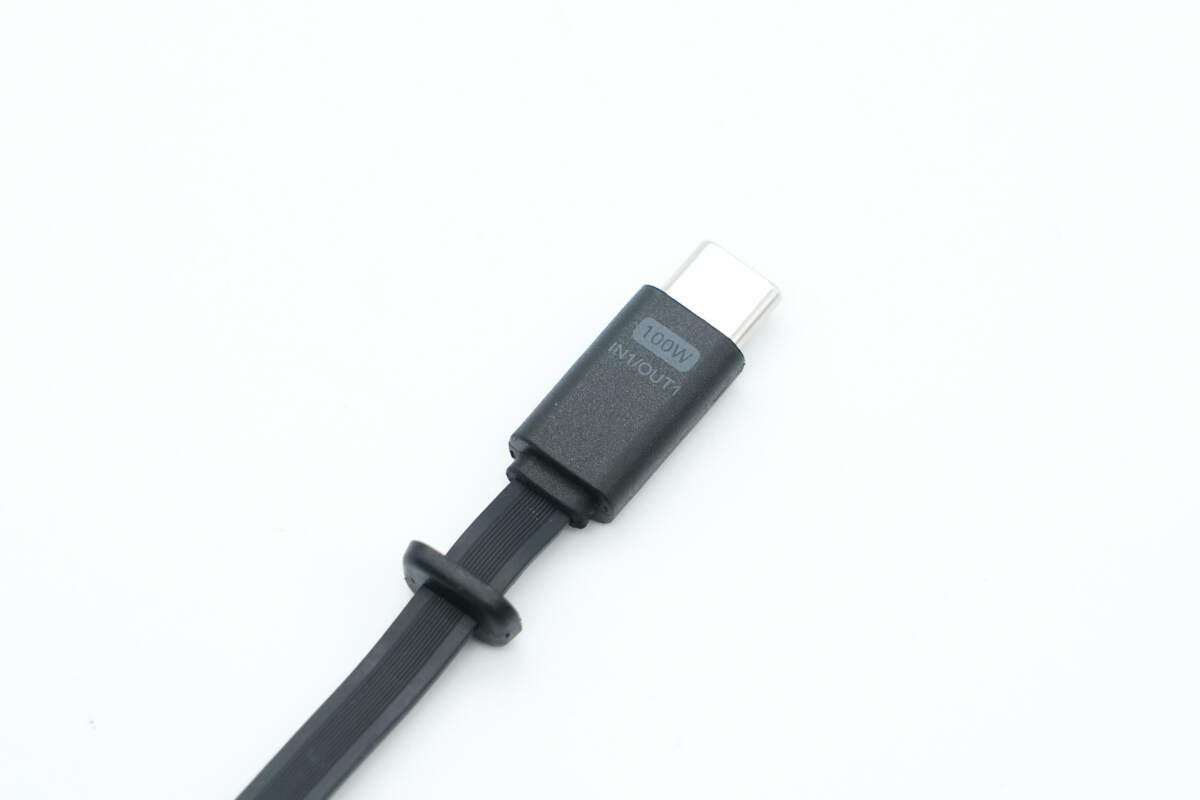
The cable is flat, with a matte-finished connector housing that is marked with "100W" and "IN1/OUT1" labels.
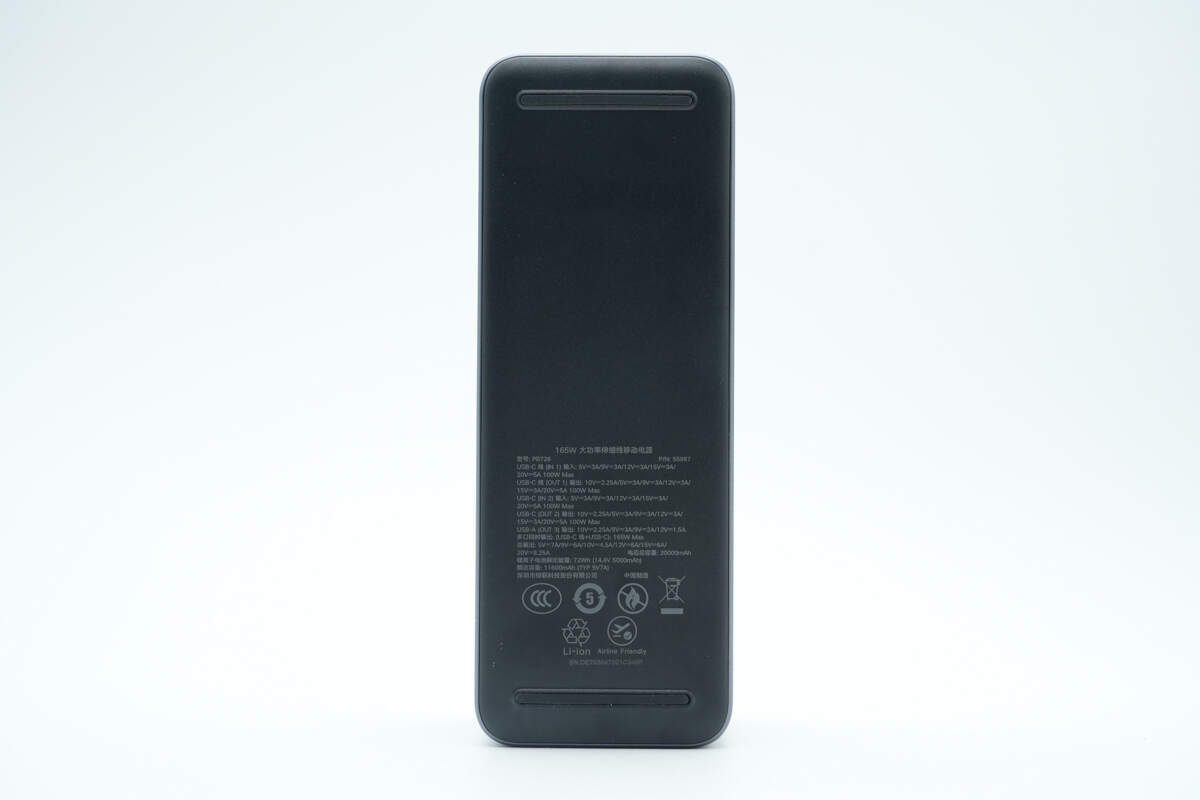
The back has anti-slip pads and displays the specification information.
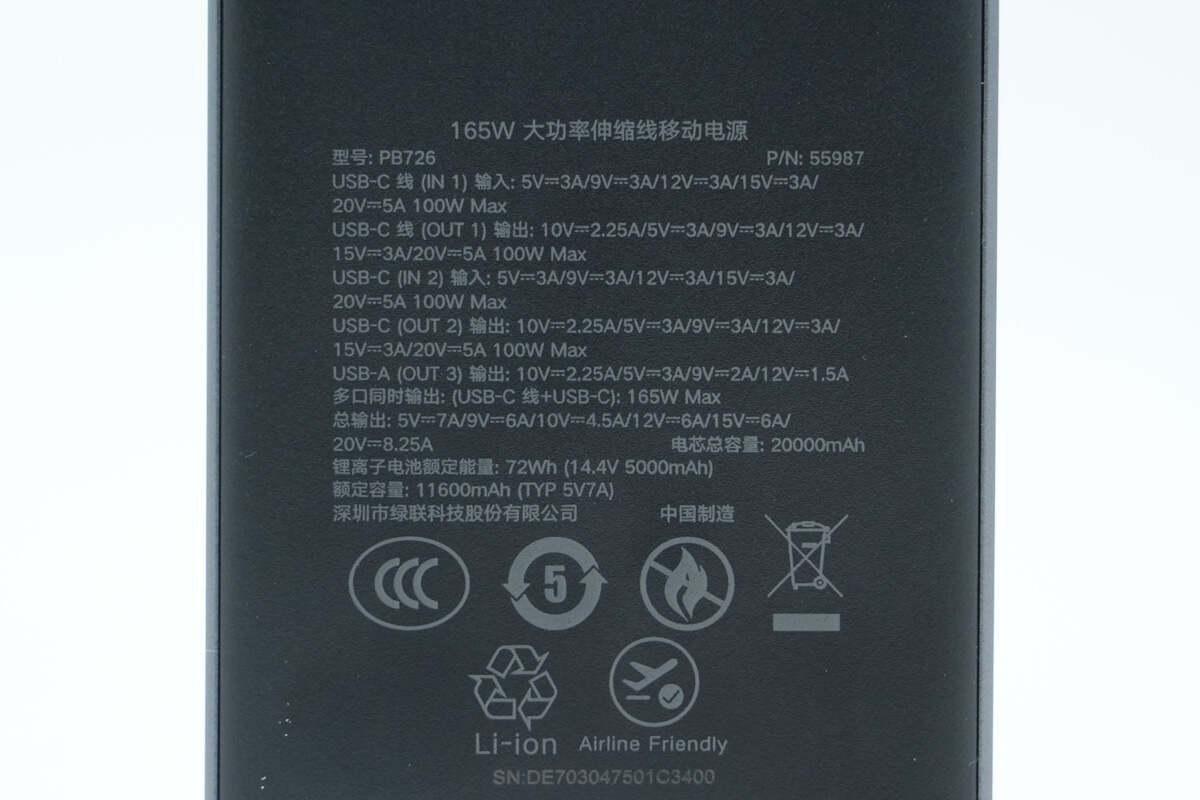
Model: PB726
P/N: 55987
USB-C Cable (IN 1) Input: 5V3A, 9V3A, 12V3A, 15V3A, 20V5A, Max 100W
USB-C Cable (OUT 1) Output: 10V2.25A, 5V3A, 9V3A, 12V3A, 15V3A, 20V5A, Max 100W
USB-C (IN 2) Input: 5V3A, 9V3A, 12V3A, 15V3A, 20V5A, Max 100W
USB-C (OUT 2) Output: 10V2.25A, 5V3A, 9V3A, 12V3A, 15V3A, 20V5A, Max 100W
USB-A (OUT 3) Output: 10V2.25A, 5V3A, 9V2A, 12V1.5A
Simultaneous multi-port output (USB-C cable + USB-C): Max 165W
Total output: 5V7A, 9V6A, 10V4.5A, 12V6A, 15V6A, 20V8.25A
Battery capacity: 20000mAh
Rated lithium-ion battery energy: 72Wh (14.4V 5000mAh)
Rated capacity: 11600mAh (TYP 5V 7A)
Certified with CCC mandatory certification, Number: 2025010914779404.
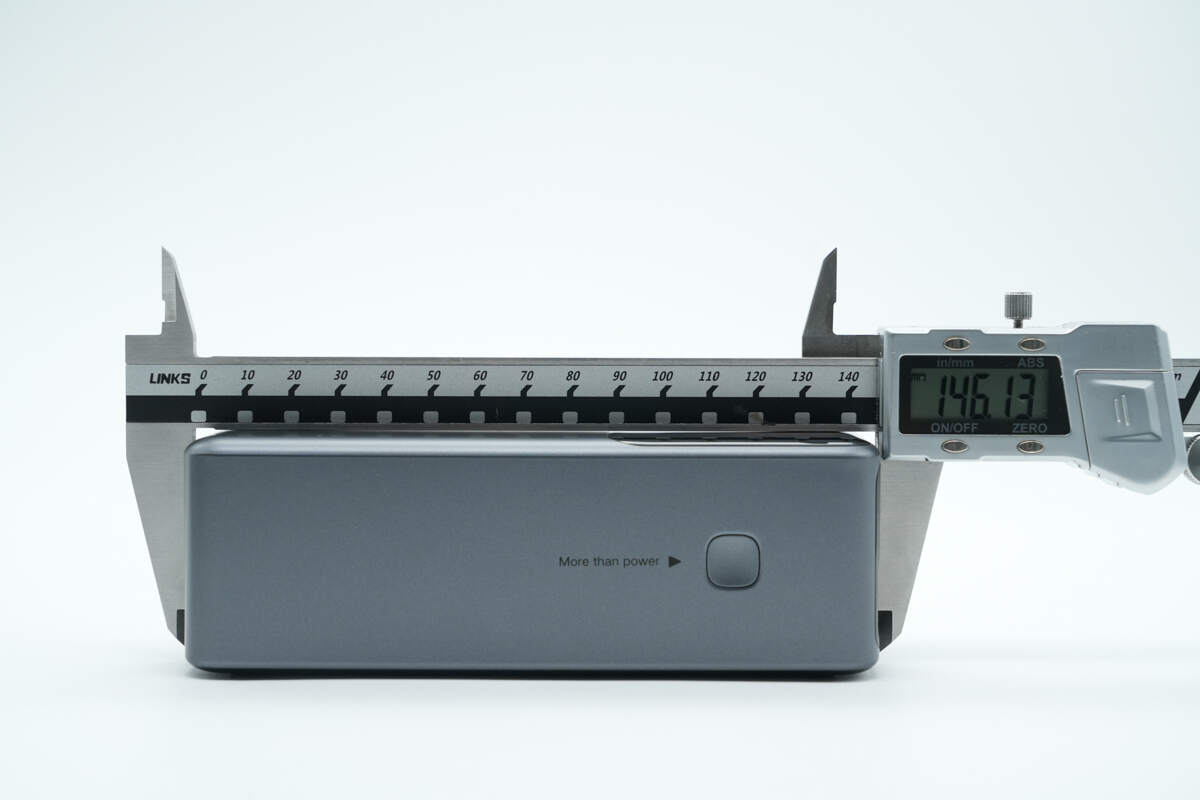
The length of the power bank is about 146.7 mm (5.78 inches).
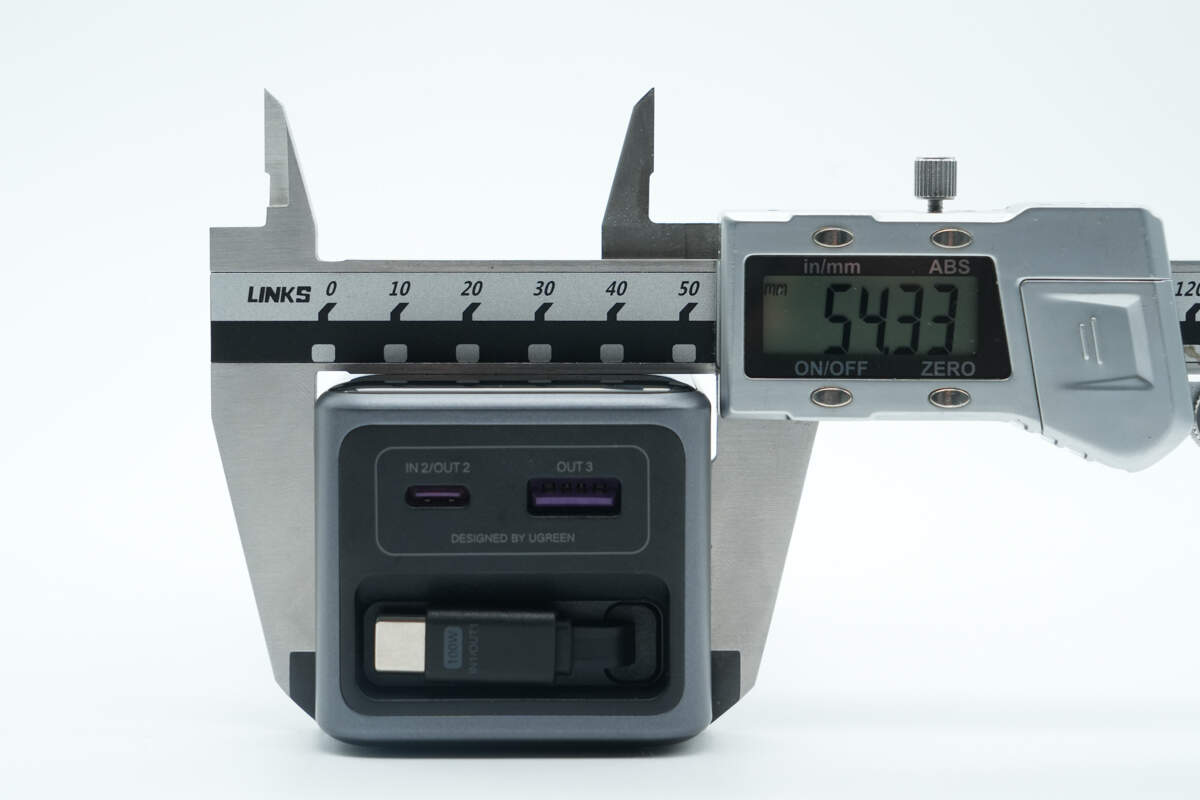
The width is about 54.3 mm (2.14 inches).
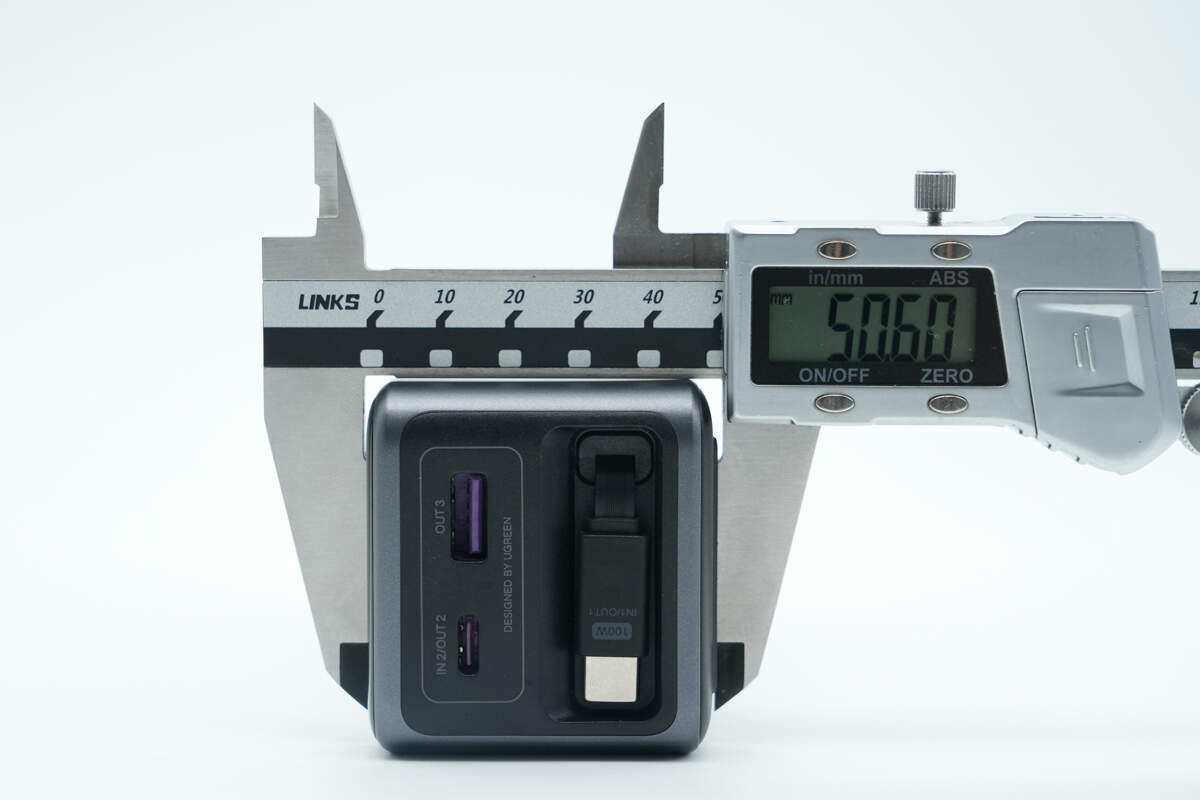
The thickness is about 50.6 mm (1.99 inches).
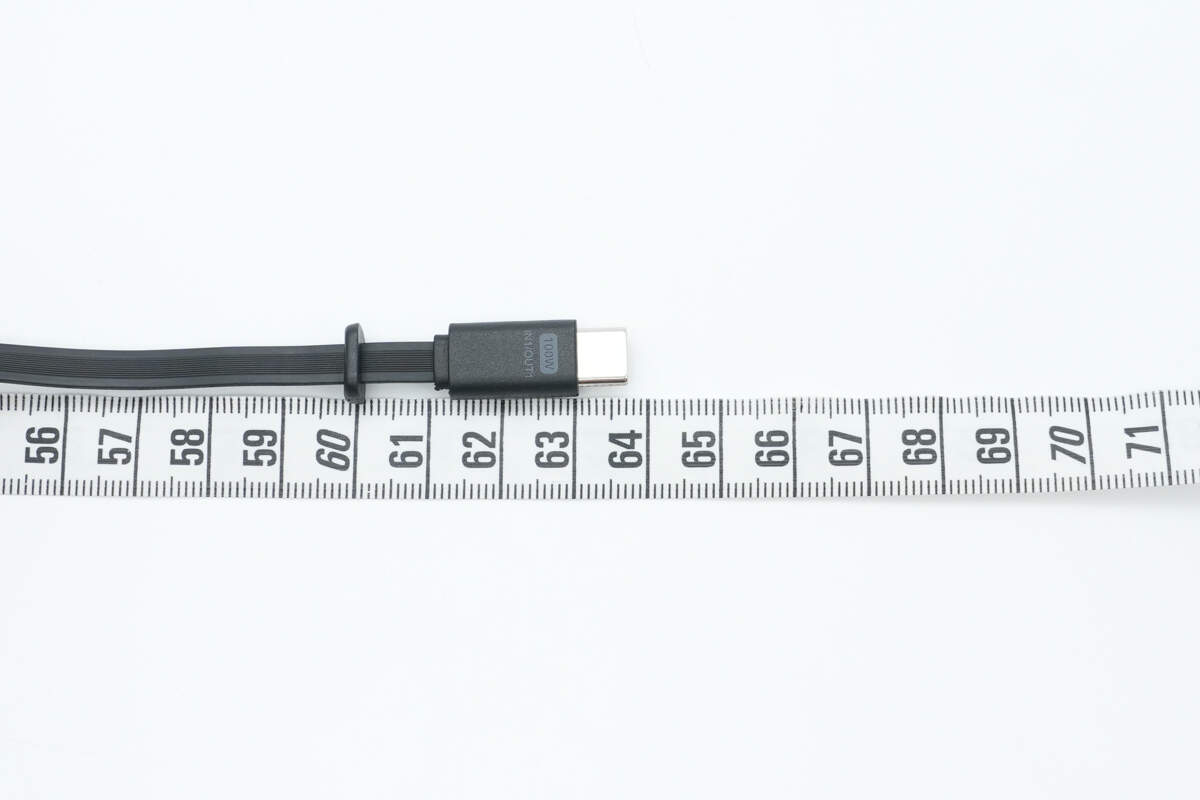
The length of the cable is about 64 cm (25.2 inches).

The weight is about 534 g (18.84 oz).
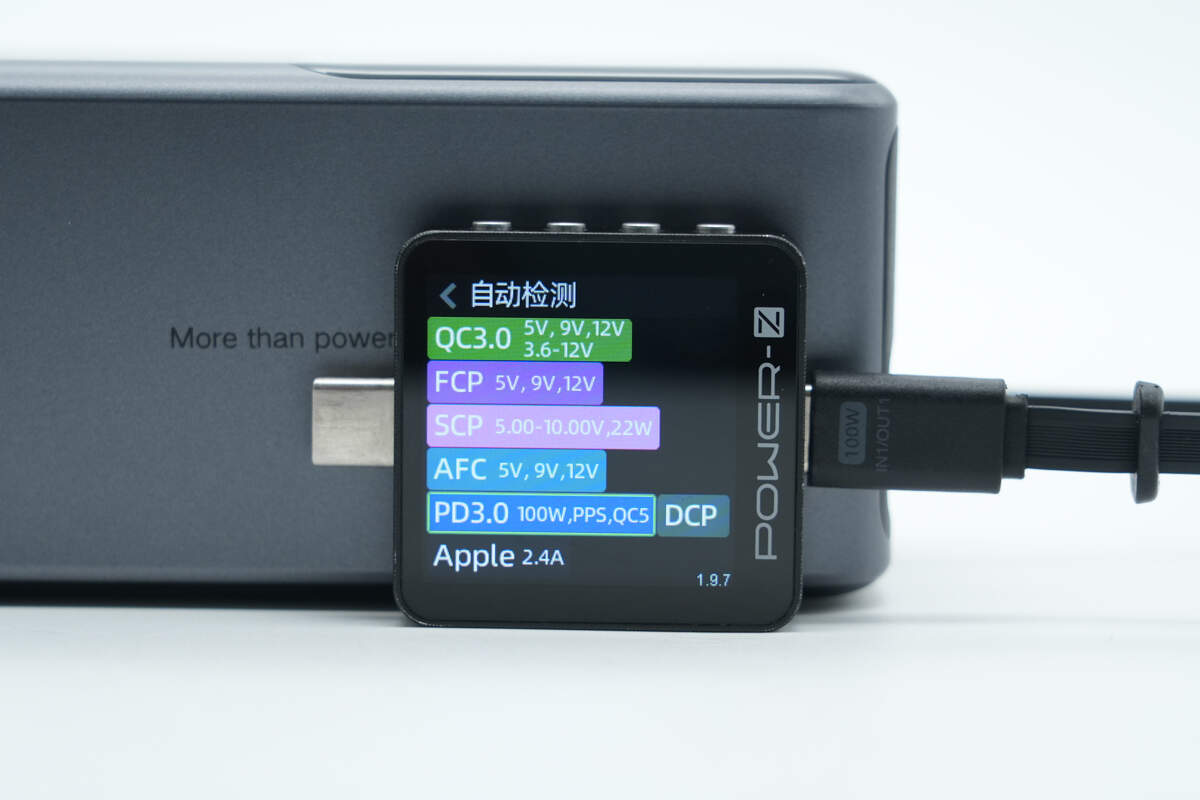
ChargerLAB POWER-Z KM003C shows that the USB-C cable supports QC3/5, FCP, SCP, AFC, PD3.0, PPS, DCP, and Apple 2.4charging protocols.
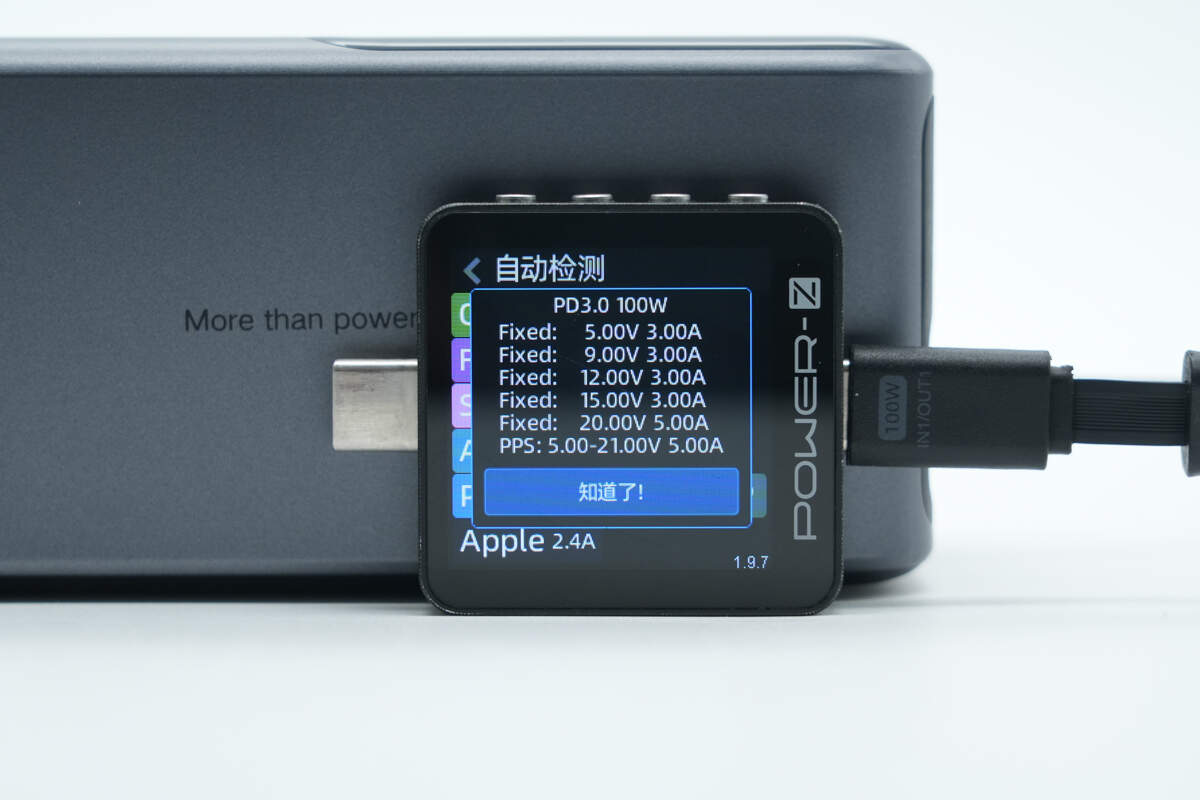
And it has five fixed PDOs of 5V3A, 9V3A, 12V3A, 15V3A, and 20V5A. It has one set of PPS, which is 5-21V5A.
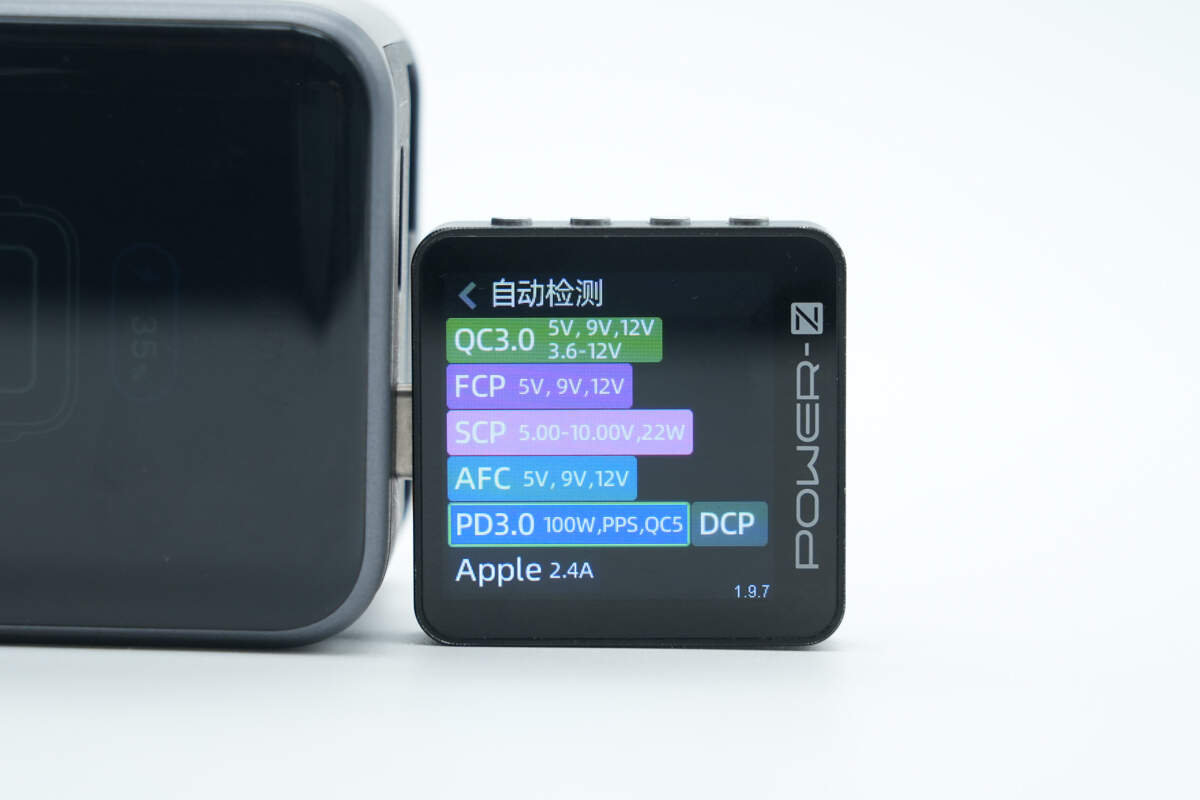
The USB-C port supports QC3/5, FCP, SCP, AFC, PD3.0, PPS, DCP, and Apple 2.4A charging protocols.
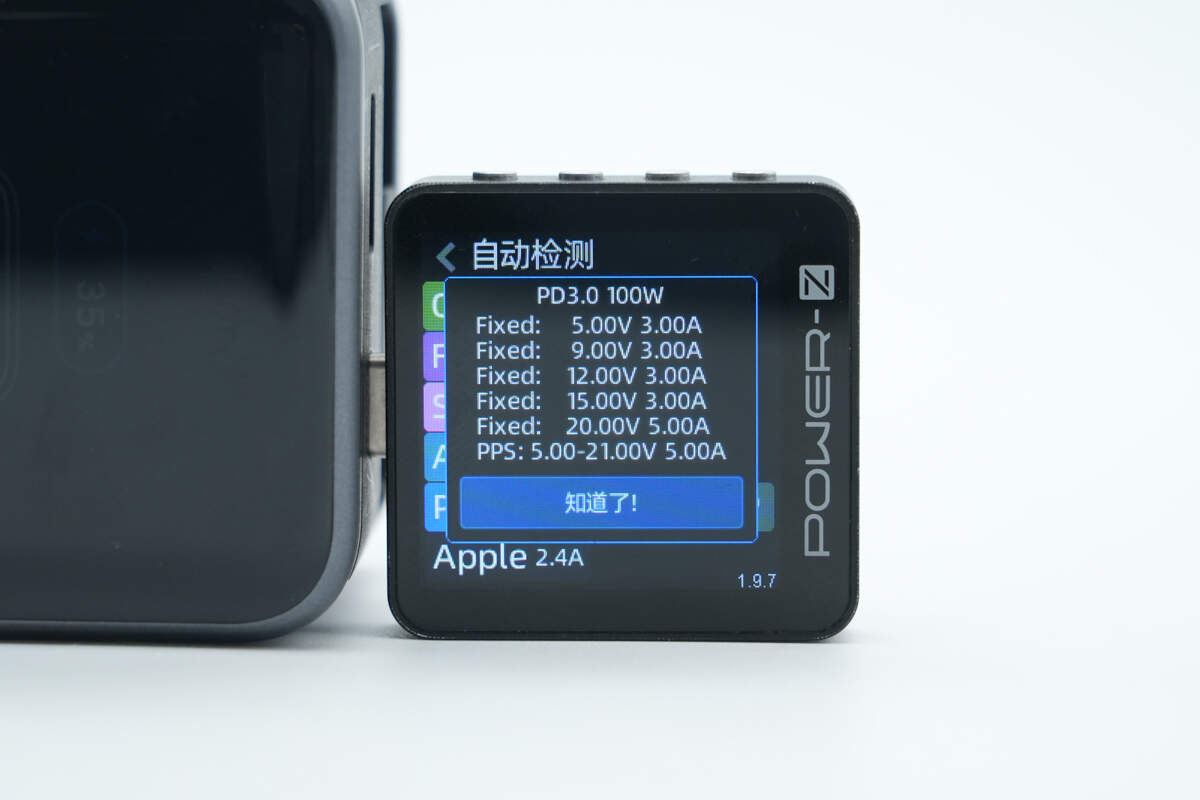
And it has five fixed PDOs of 5V3A, 9V3A, 12V3A, 15V3A, and 20V5A. It has one set of PPS, which is 5-21V5A.
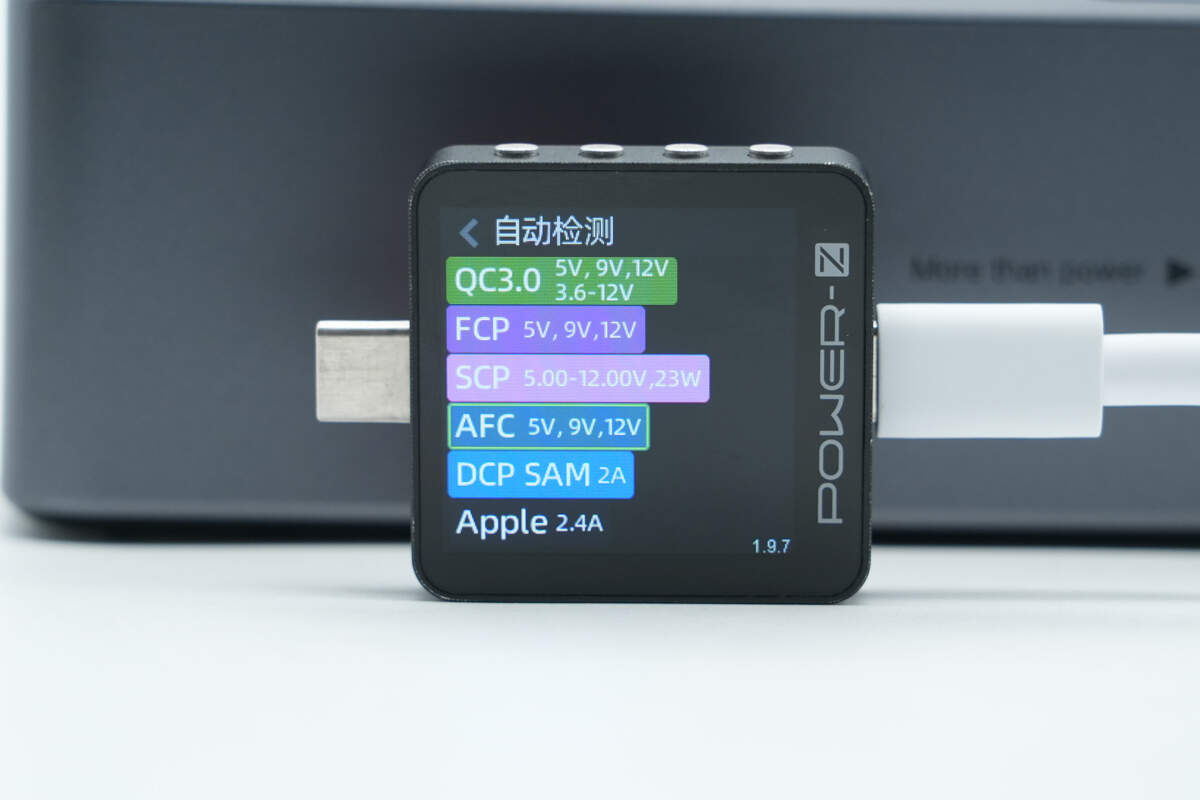
The USB-A port supports QC3.0, FCP, SCP, AFC, DCP, SAM 2A, and Apple 2.4A charging protocols.
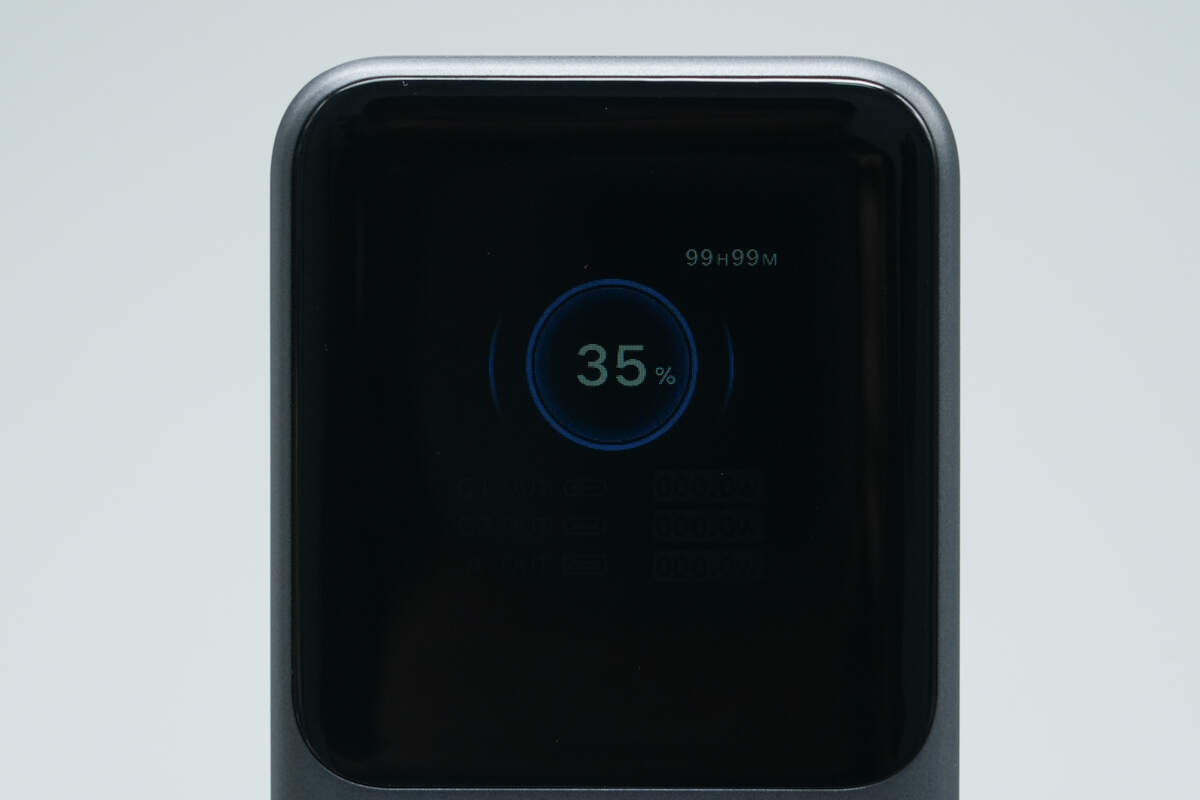
The screen supports percentage-based battery level display and remaining usage time estimation.
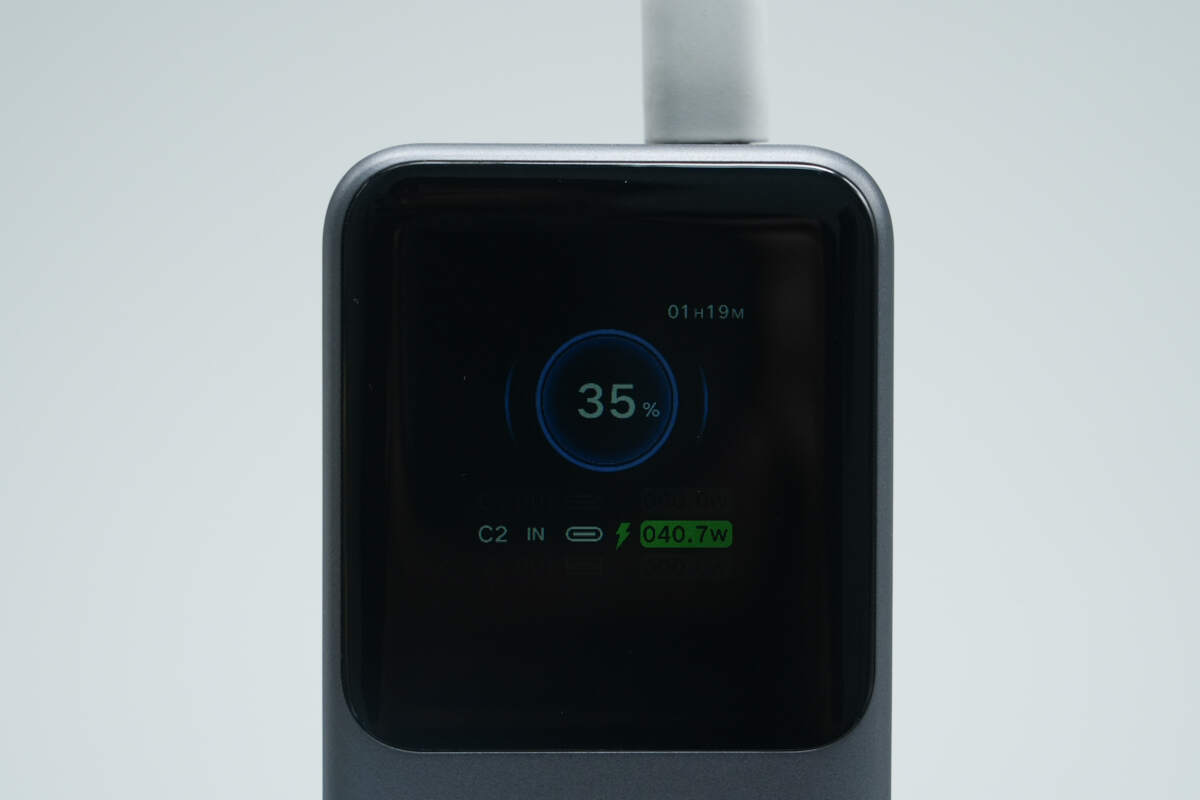
During charging (input), the screen displays the remaining charging time, battery percentage, connected port, and input power.
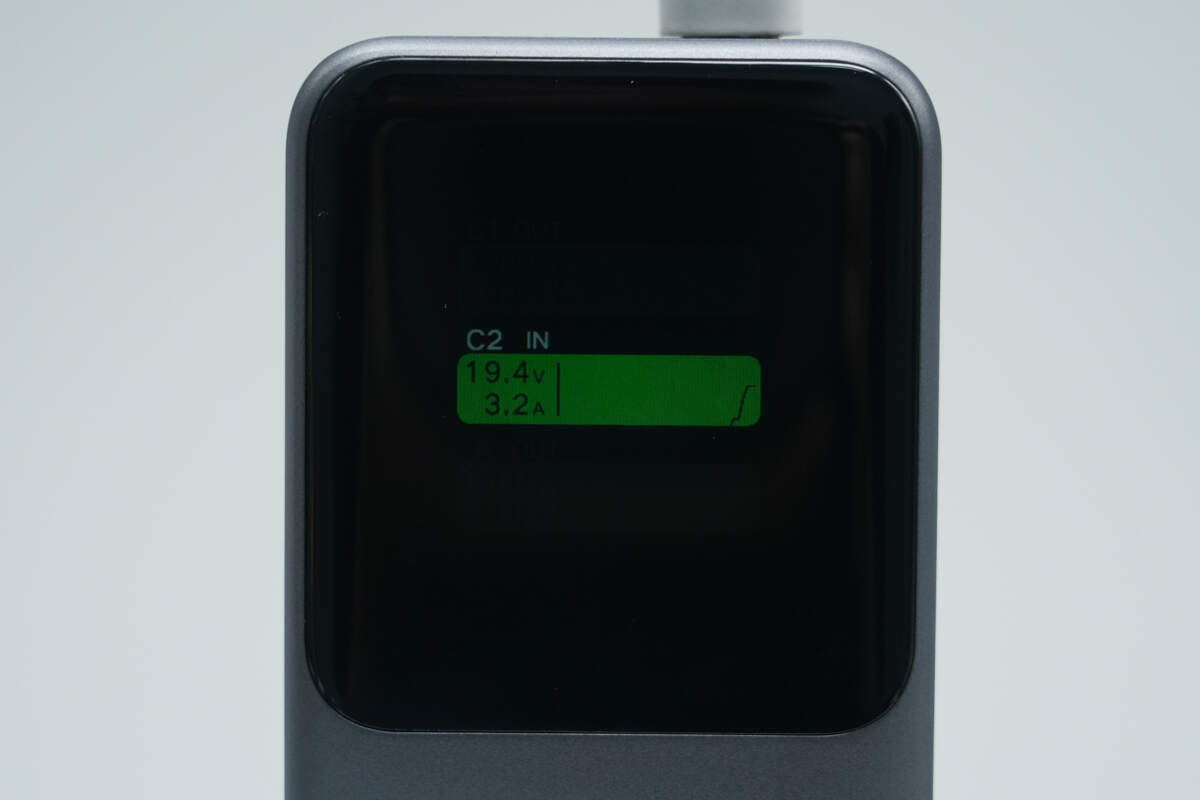
It also displays the input voltage and input current.
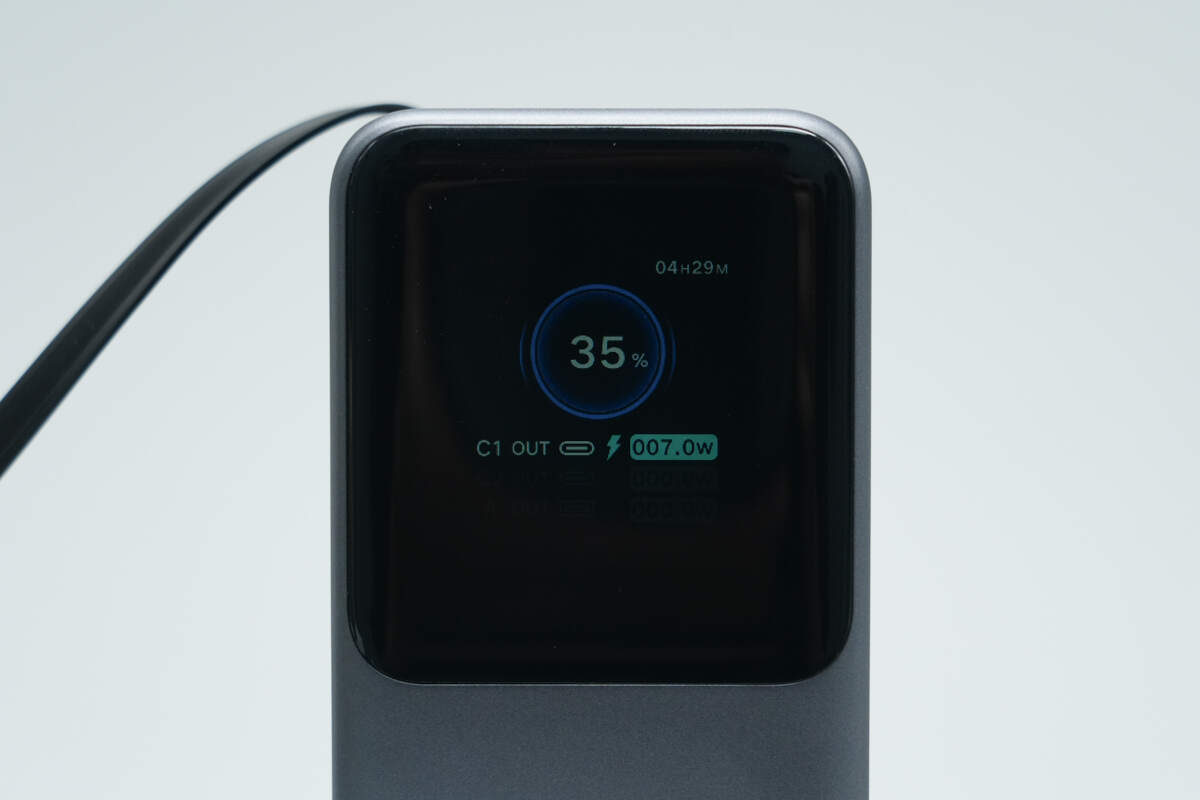
During output (discharging), the screen shows the remaining discharge time, battery percentage, connected port, and output power.
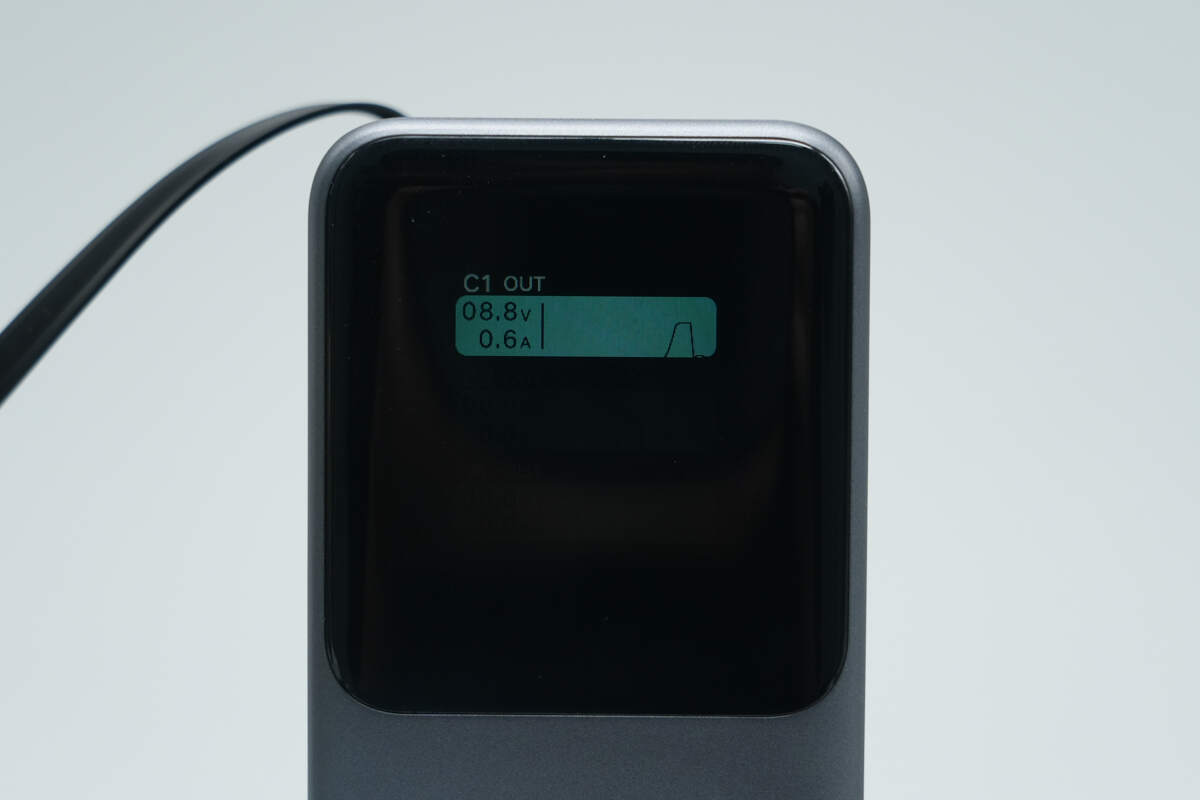
It also displays the output voltage and output current.
Teardown
Next, let's take it apart to see its internal components and structure.
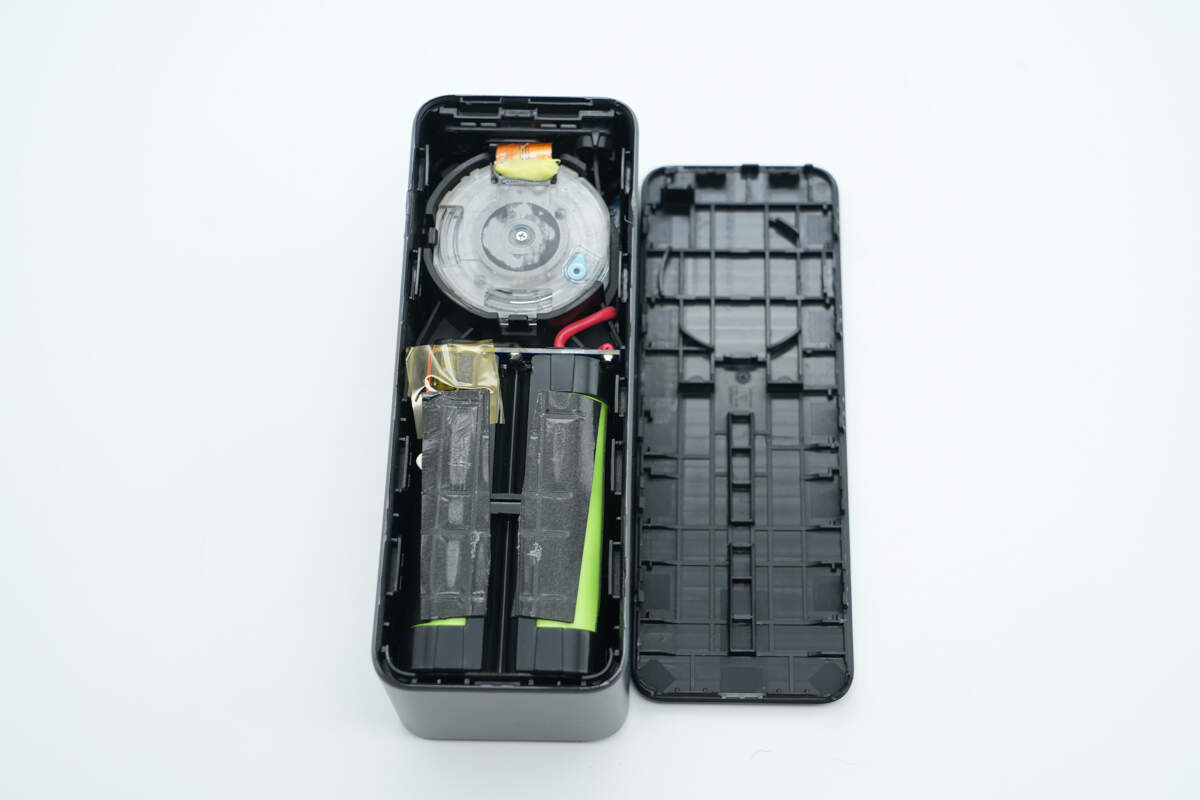
First, pry open the back cover along the seam.

Inside, there is the main circuit board and the battery pack.
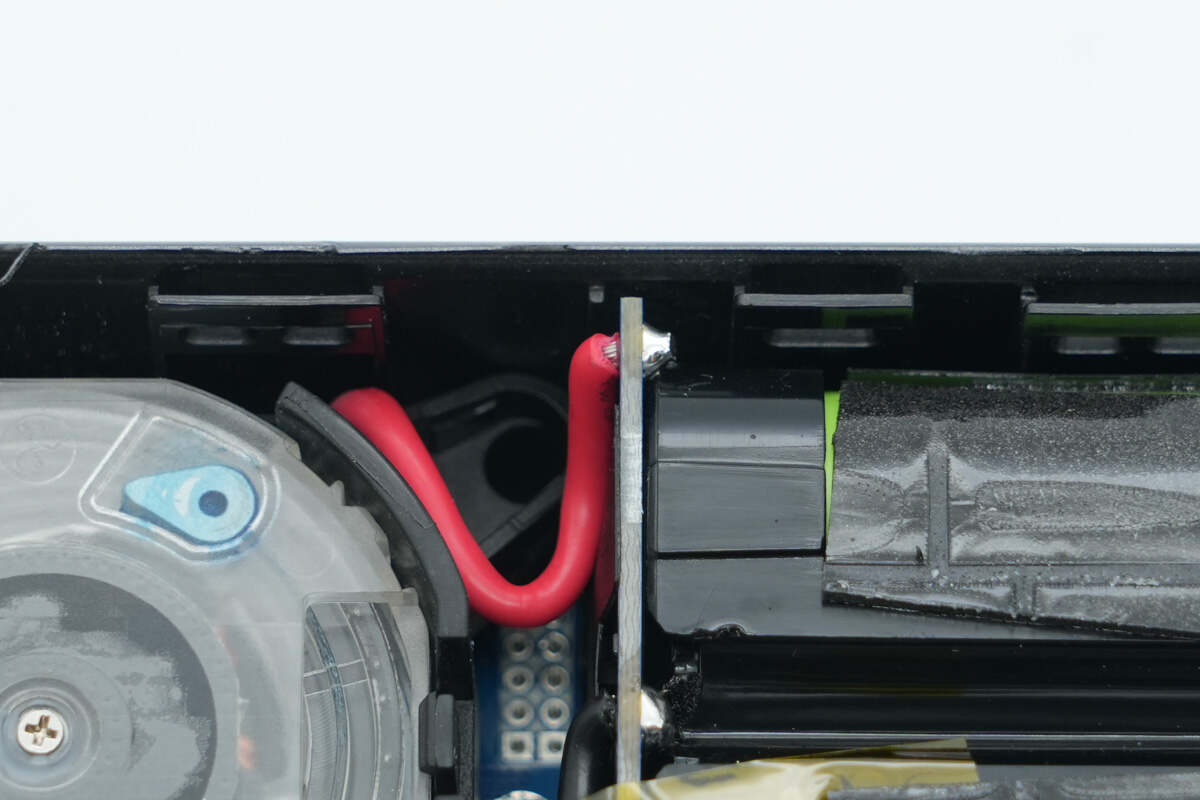
The battery pack’s positive and negative terminals are connected by wires.
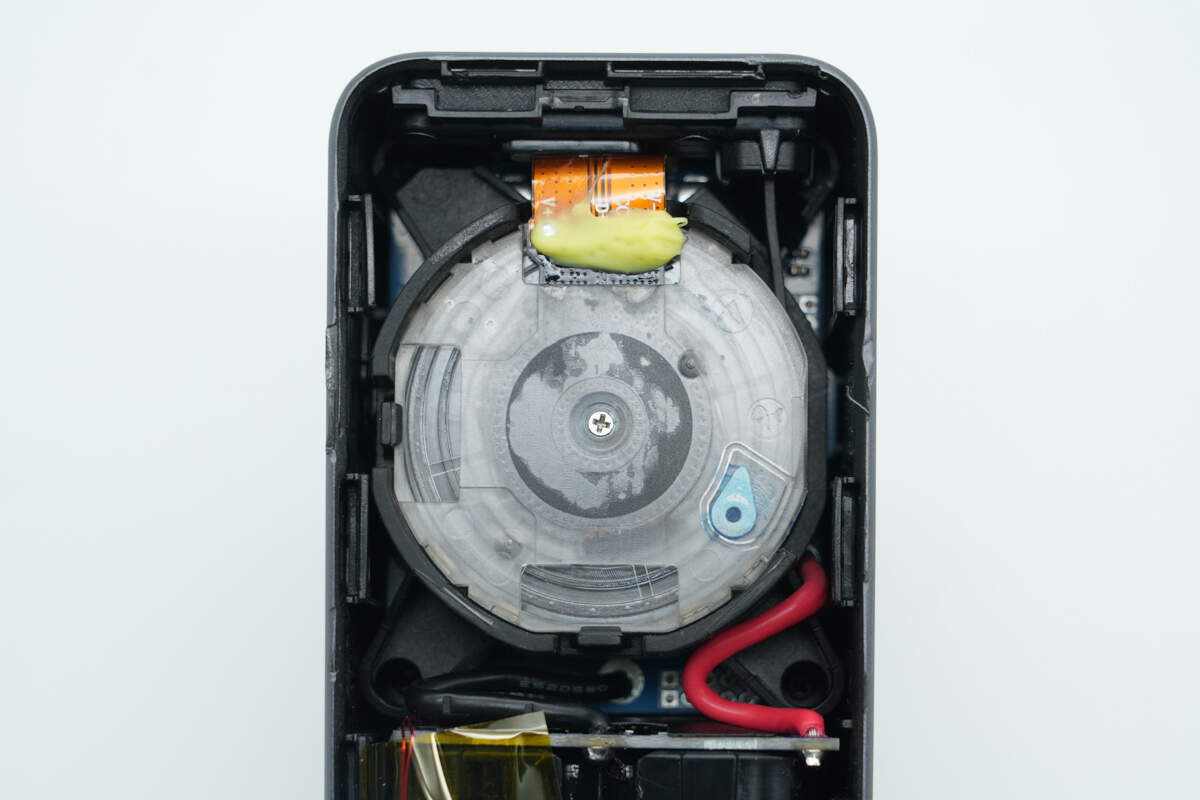
The retractable cable module is covered with a transparent protective panel.
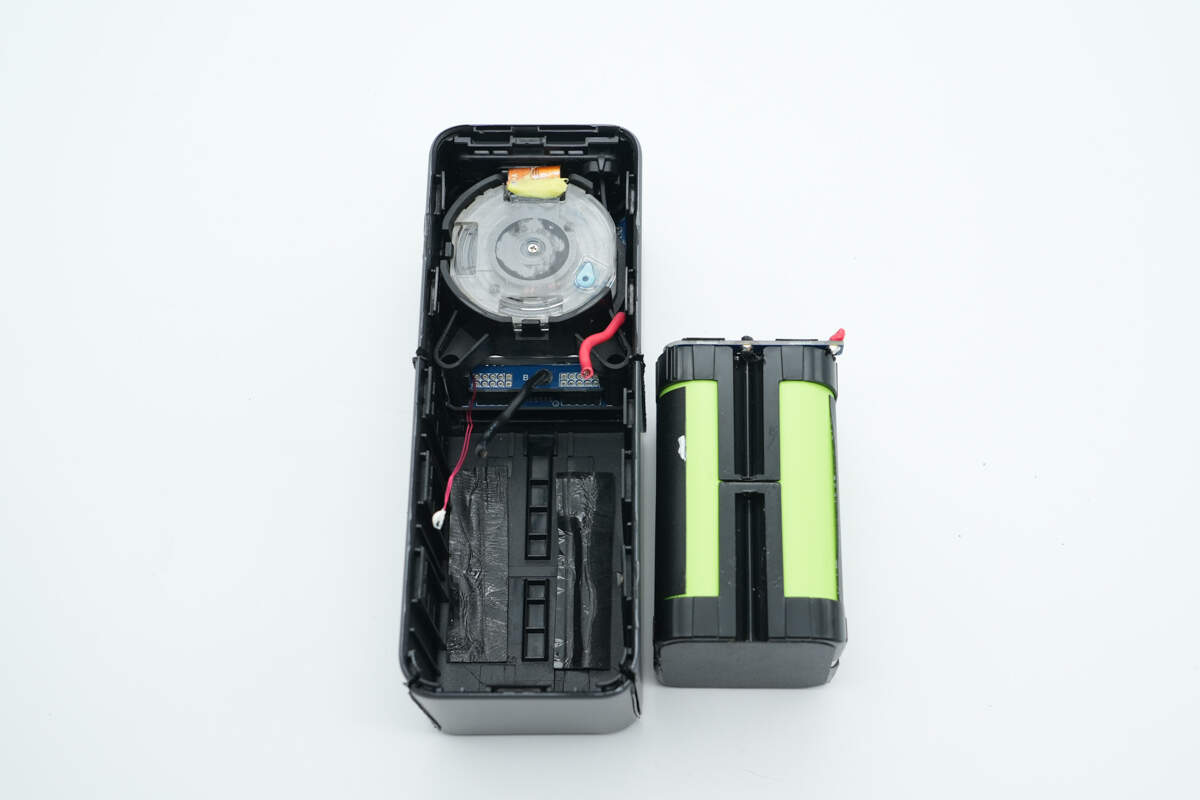
Cut the wires and remove the battery pack. There is a thermistor on the side of the battery pack to monitor temperature rise.
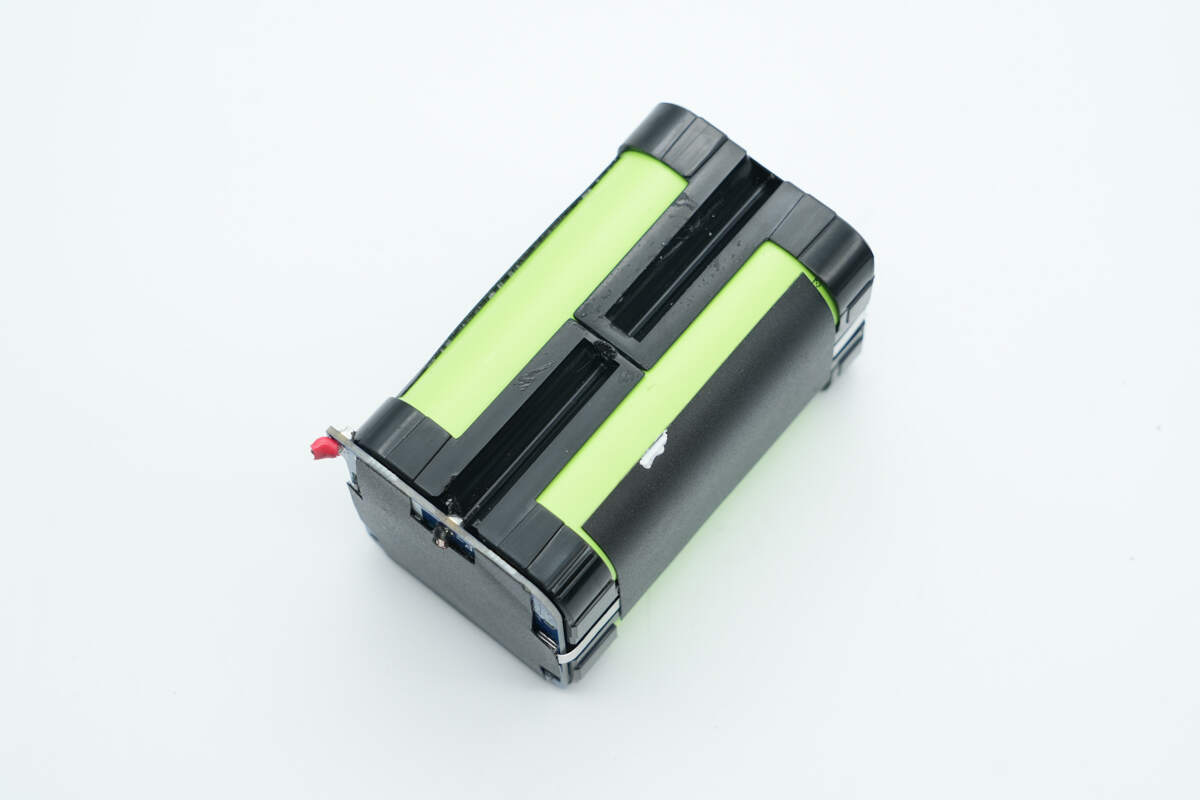
The battery cells are secured by an insulating frame.
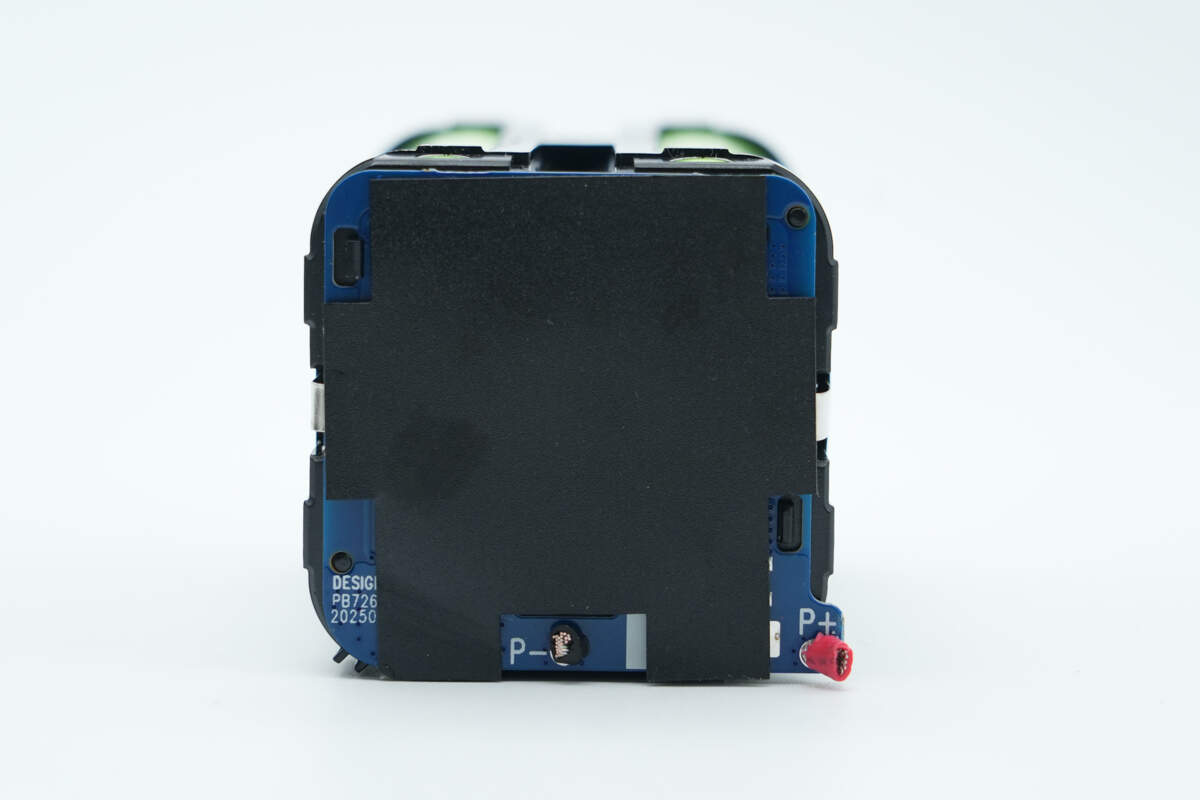
The battery pack’s protection PCB is insulated with a Mylar sheet.

The protection PCB includes a battery protection chip, battery protection MOSFETs, and a balancing circuit.

The nickel strips are connected by spot welding.
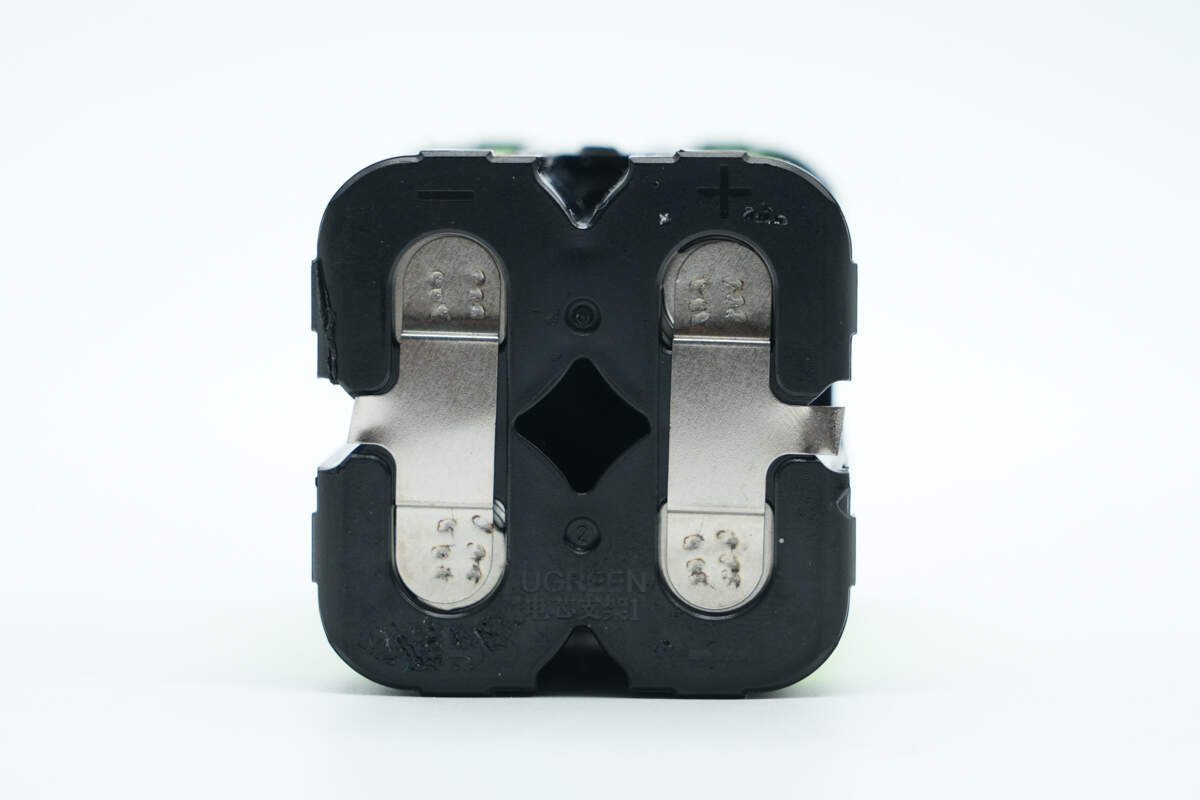
The other side of the battery pack is also connected with nickel strips via spot welding.
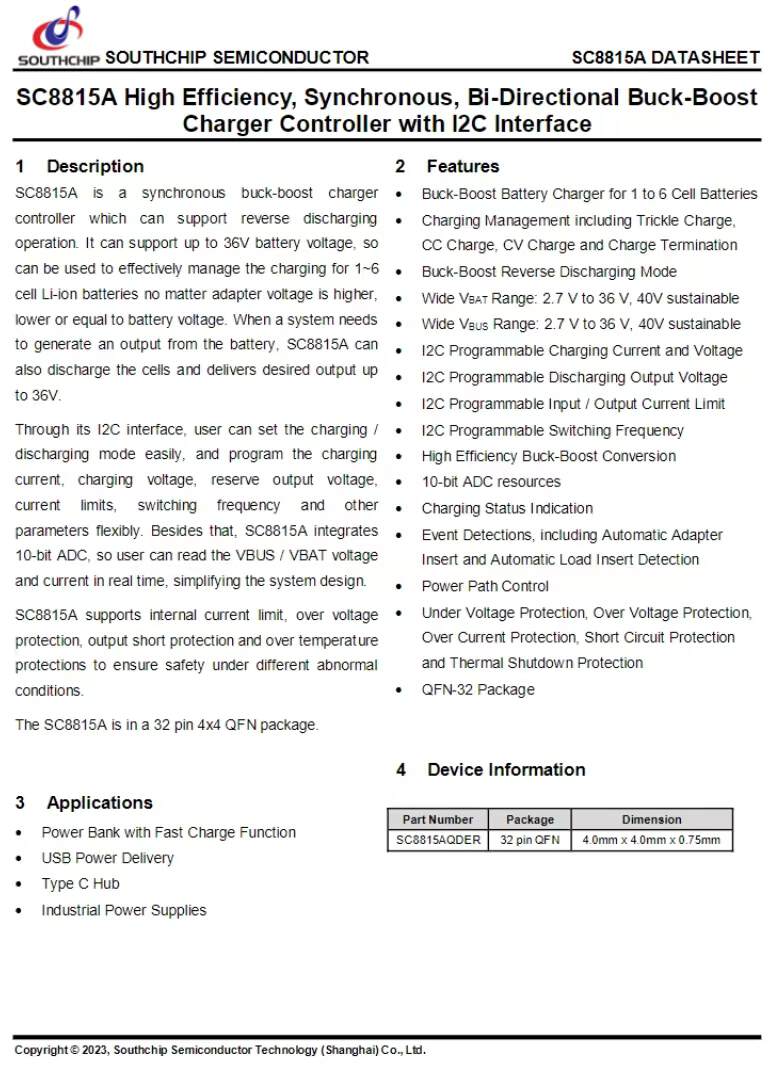
The battery protection chip is from iCM, model CM1341-BAT. It is specifically designed for 4-series lithium-ion or lithium iron phosphate batteries and features built-in high-precision voltage and current detection circuits. By monitoring the voltage of each cell, charge/discharge current, and temperature, it provides multiple protections including overcharge, over-discharge, cell balancing, disconnection, low-voltage charging prohibition, discharge overcurrent, short circuit, charge overcurrent, and over-temperature protection. The discharge overcurrent protection delay can be adjusted with an external capacitor, while other protection delays are built in.
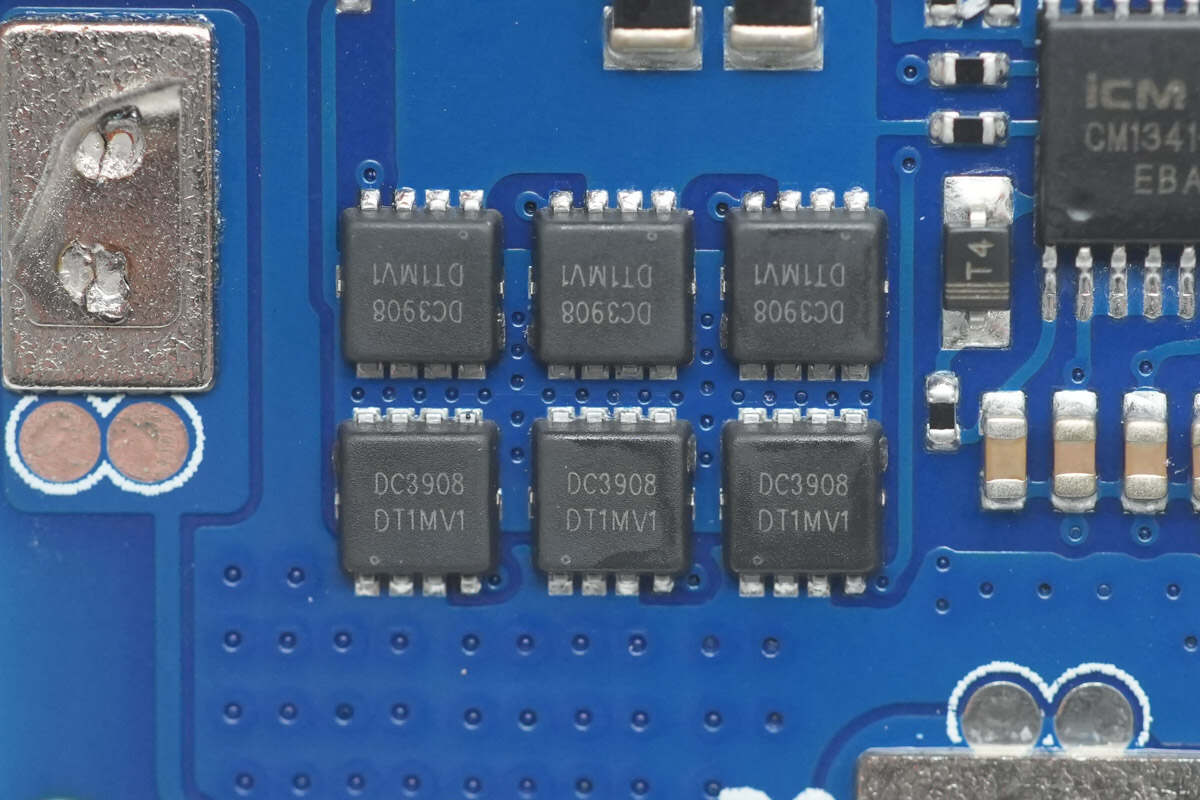
The battery protection MOSFETs are from POTENS, model PDC3908Z. They are N-channel MOSFETs with a voltage rating of 30V and an on-resistance of 7.8mΩ, packaged in a PPAK 3×3 form factor.
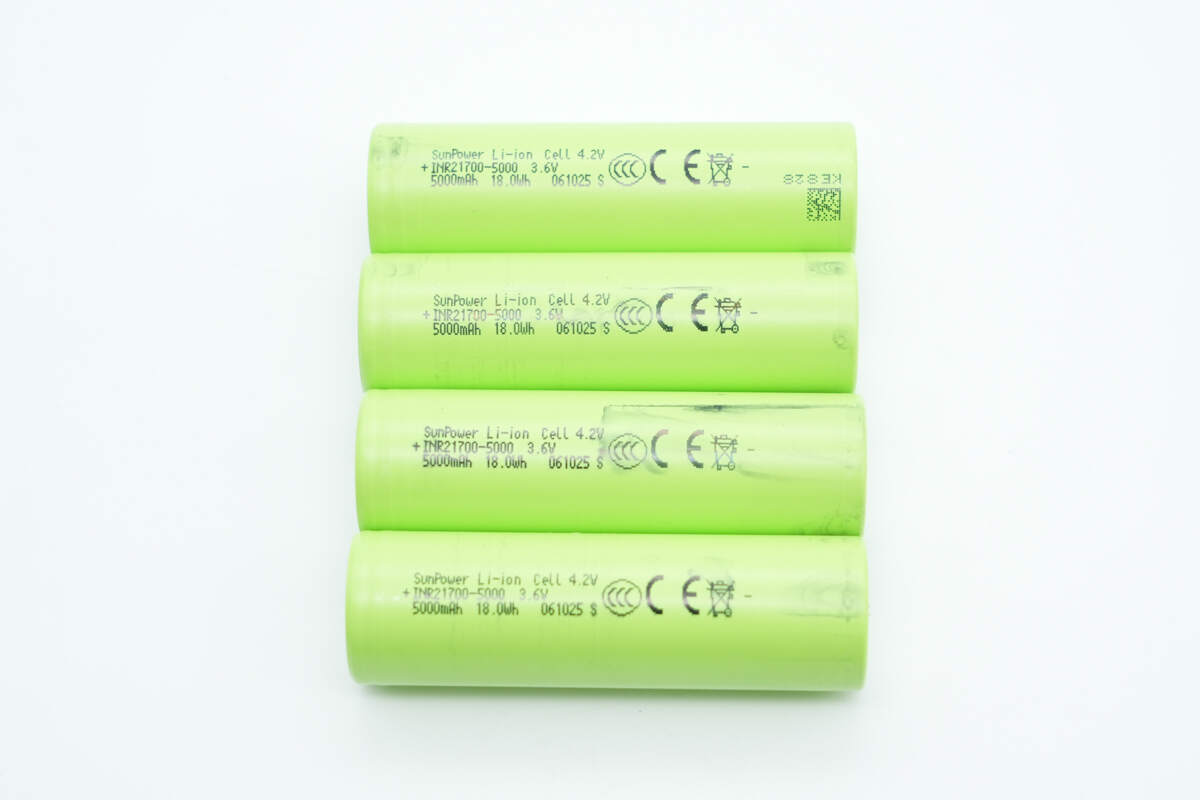
Here is an overview of the four 21700 battery cells inside the battery pack.

The battery cells are model INR21700-5000 from SunPower, with a nominal voltage of 3.6V, a nominal capacity of 5000mAh, and an energy rating of 18Wh. The charge cutoff voltage is 4.2V. These cells have passed both CCC and CE certifications.

Unscrew the screws and remove the main circuit board from the casing.
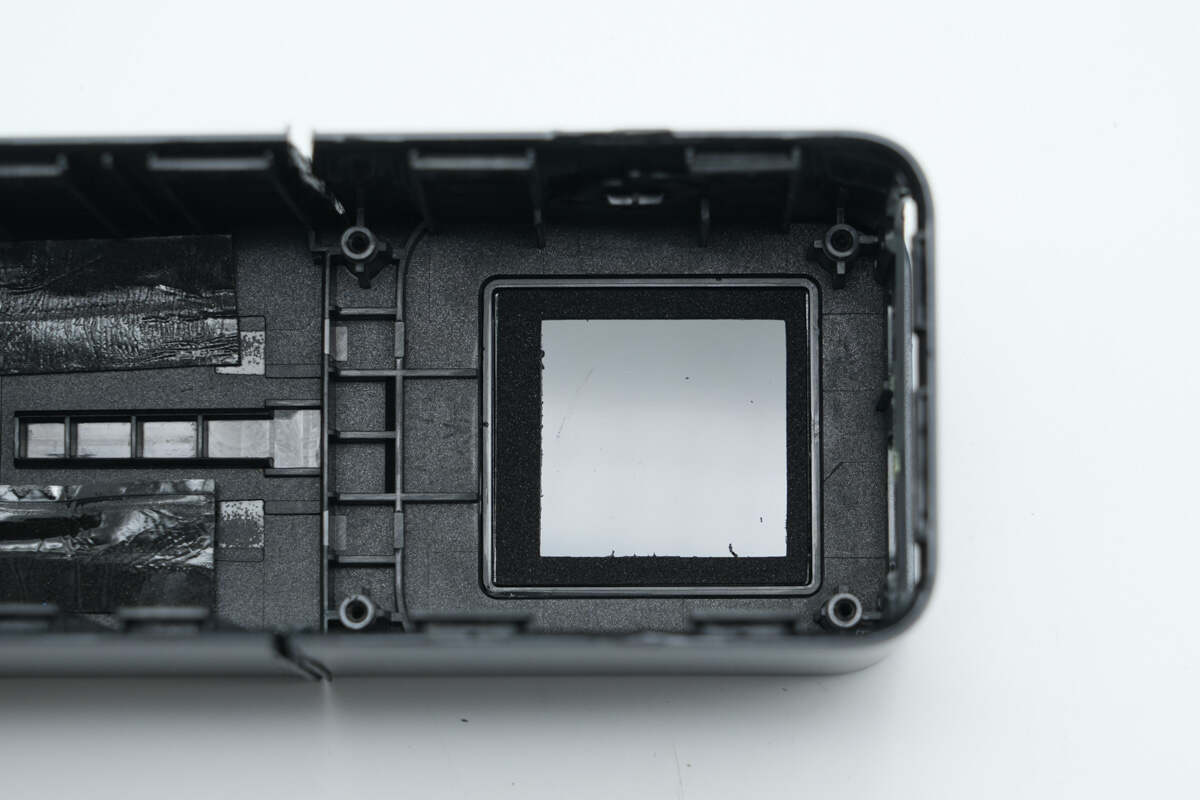
There is a sealing foam around the edges of the screen for dust protection.
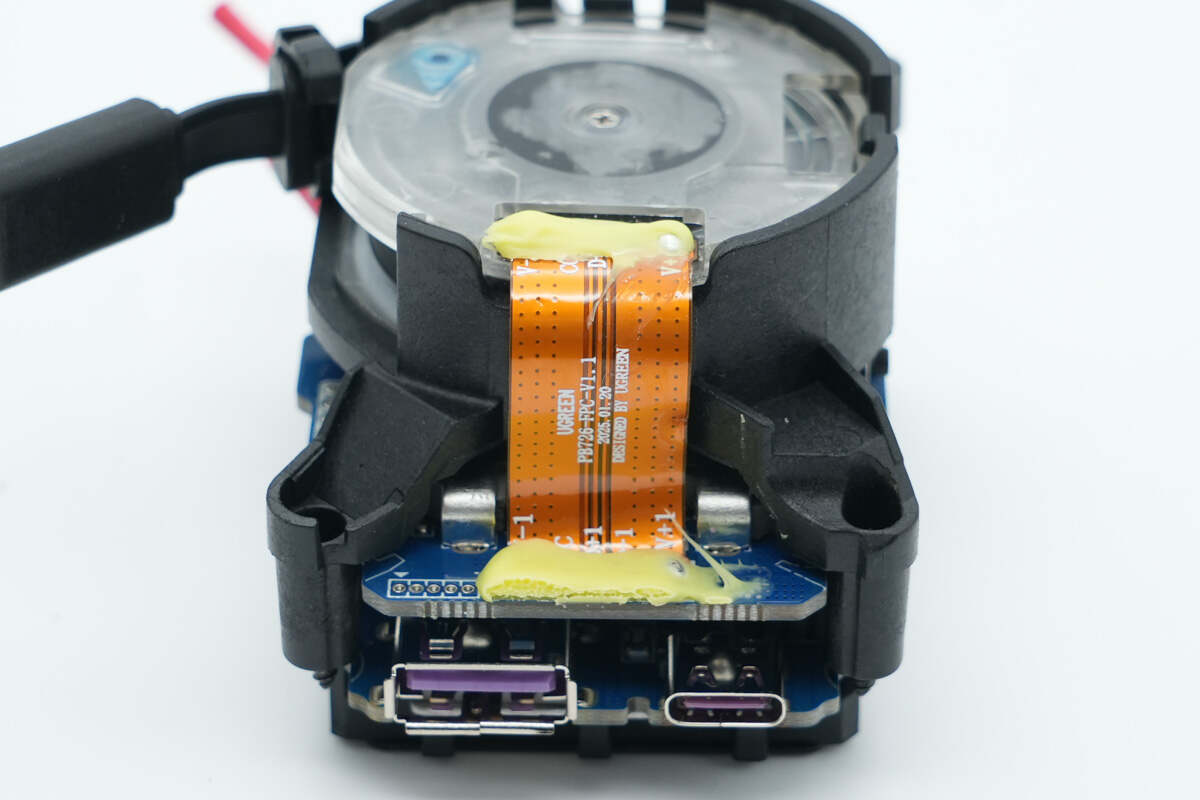
The PCBA module is connected to the retractable cable module via a flexible flat cable.
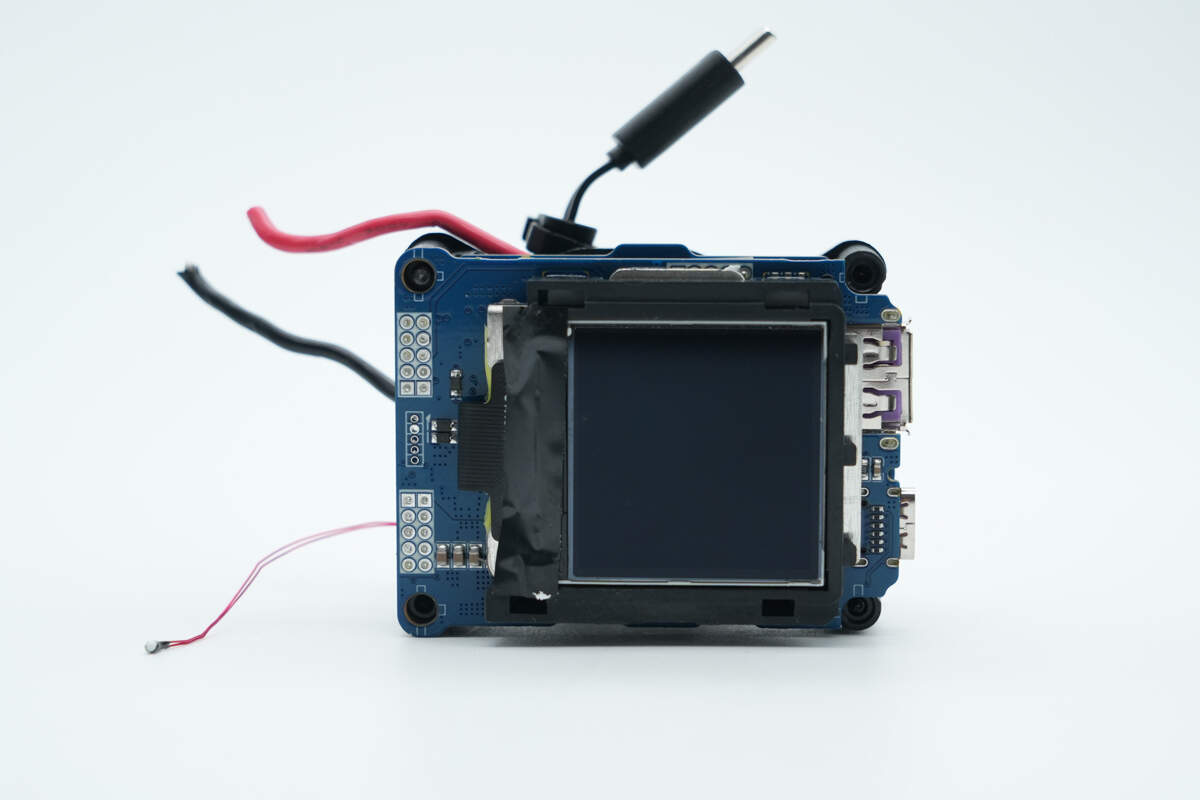
One side of the PCBA module features the screen, which is secured with clips.
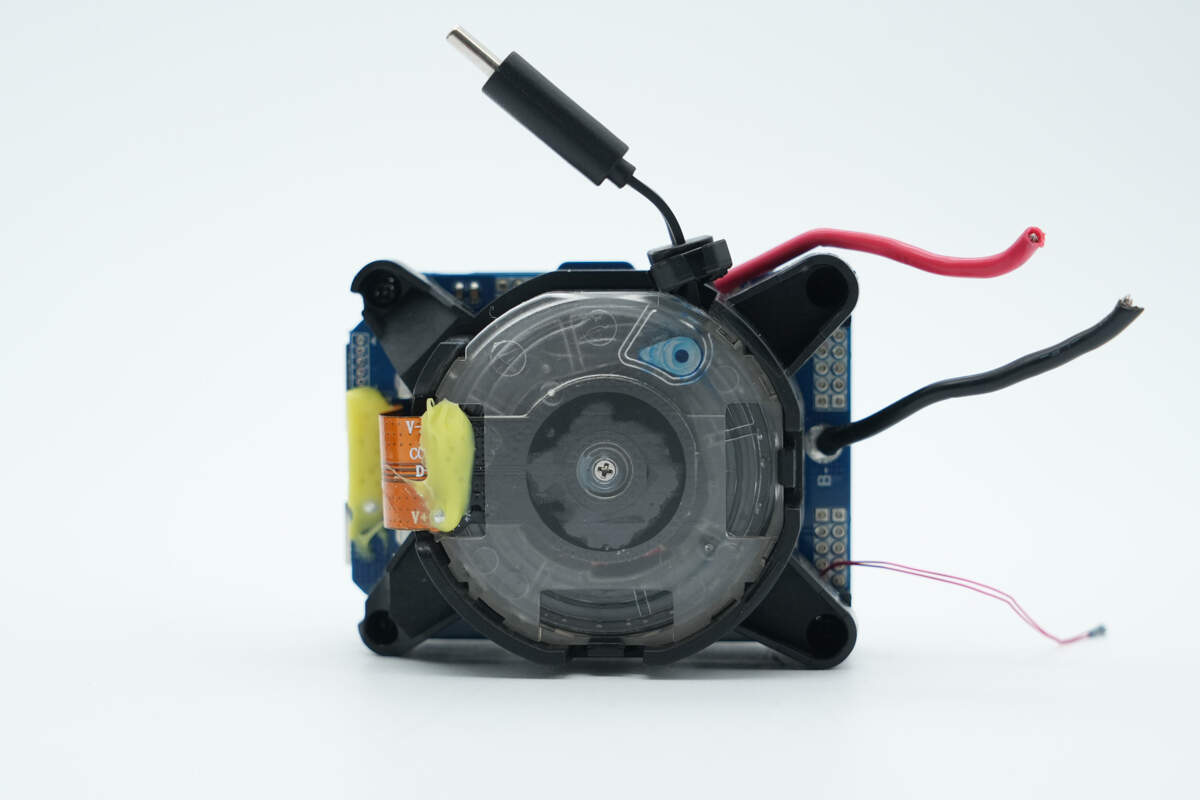
The other side houses the retractable cable module.
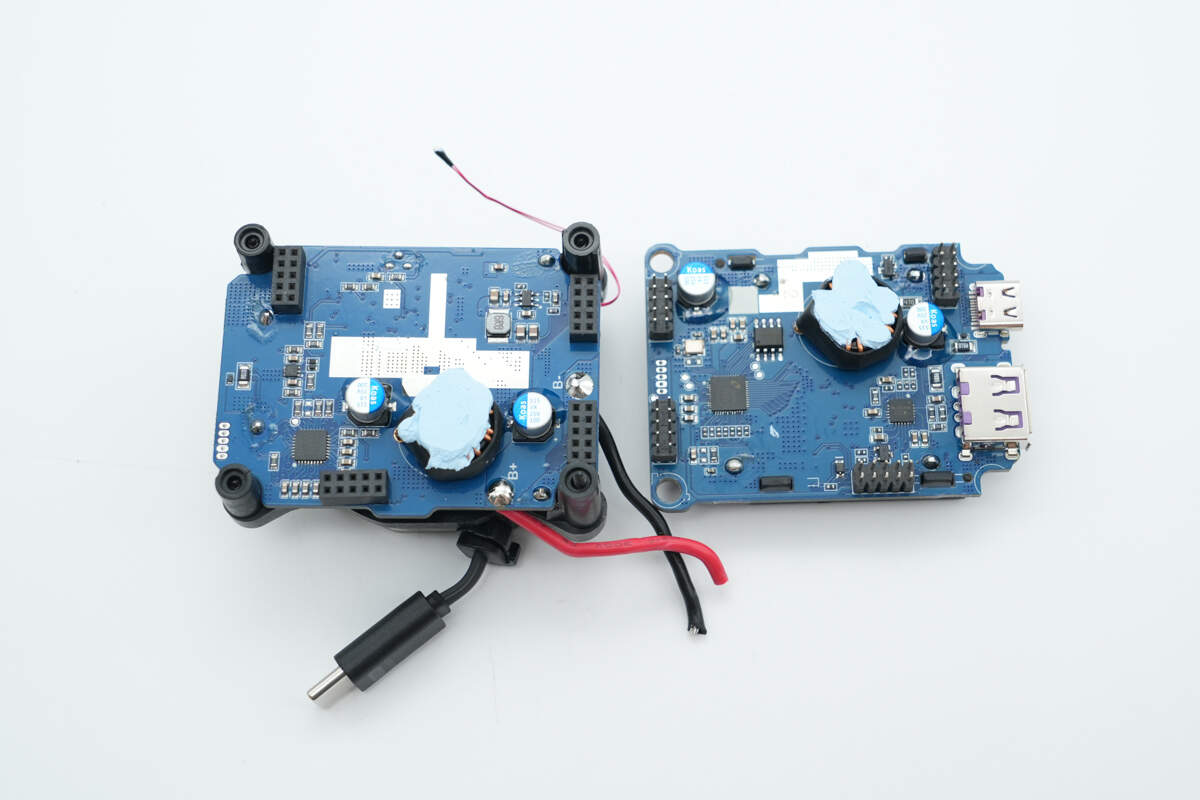
The two PCBs are connected via pin headers.

The retractable cable module is connected to the PCB via a flexible flat cable.
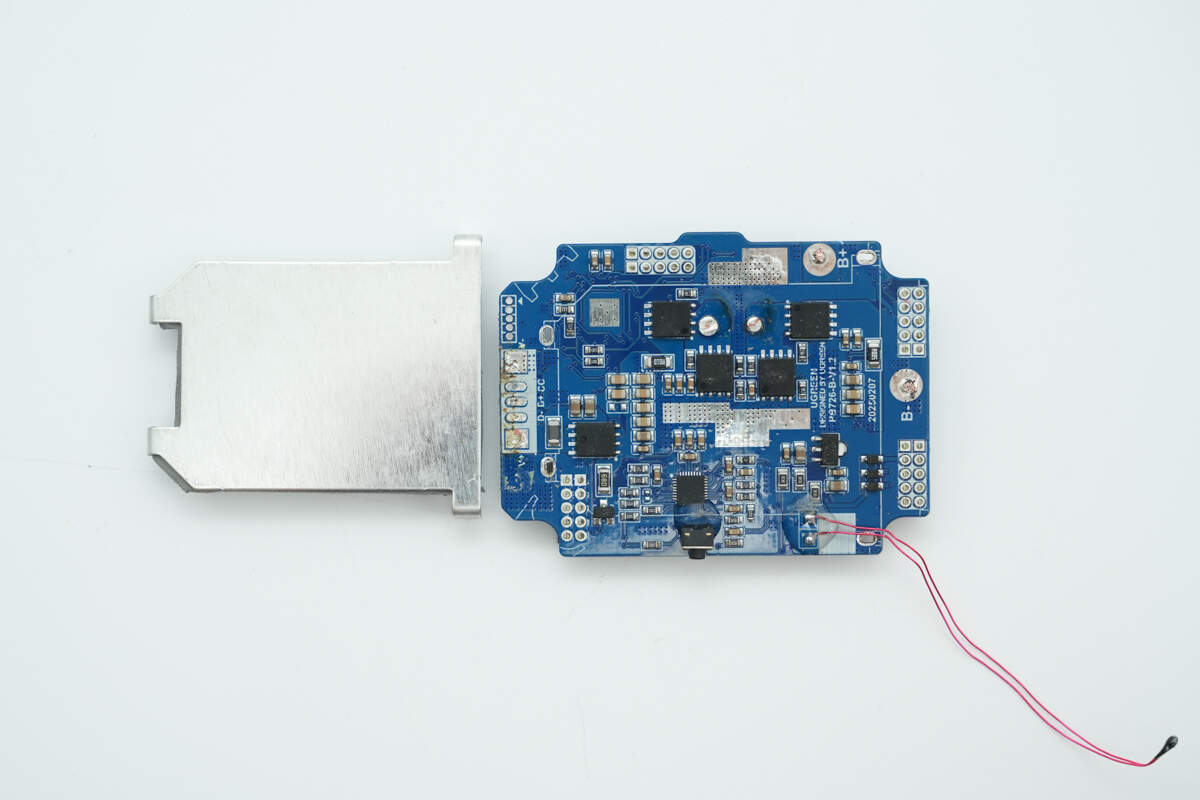
Remove the retractable cable module, heat sink, and connecting cable.

The PCB includes synchronous buck-boost MOSFETs, a synchronous buck-boost controller, a VBUS MOSFET, a voltage regulator, and a thermistor.
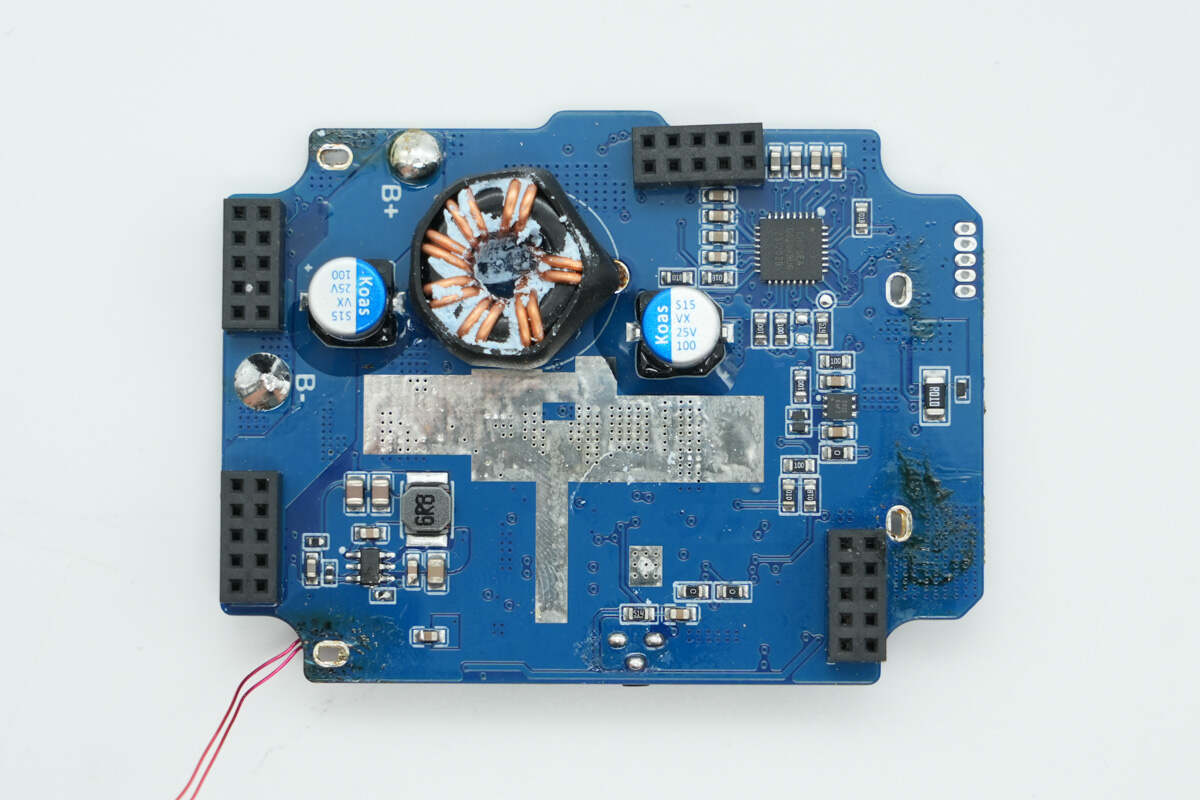
On the other side, there are connector sockets, filter capacitors, a toroidal inductor, and a protocol chip.
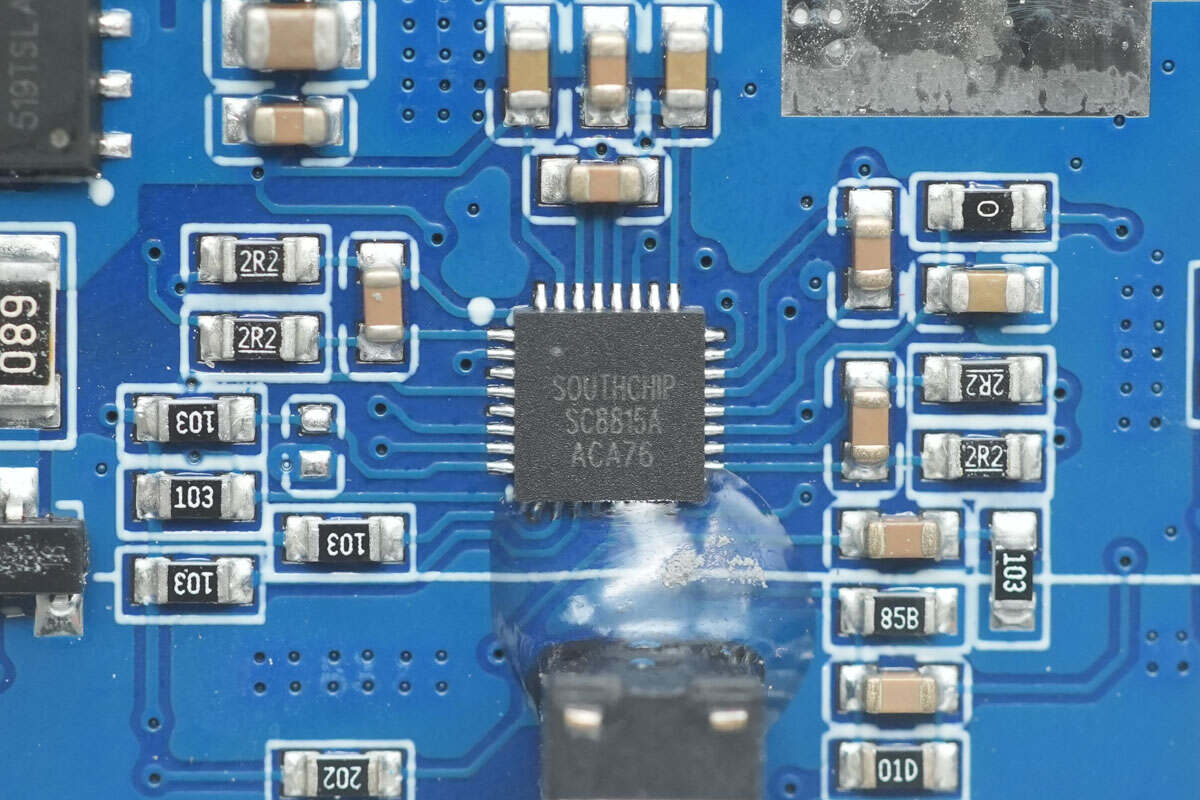
The synchronous buck-boost controller for the USB-C port is from SouthChip, model SC8815A. It is a highly efficient bidirectional synchronous buck-boost controller that supports charging 1 to 6 battery cells and features an I²C interface. It provides comprehensive lithium battery charging management, allowing control of battery charging current and voltage, reverse discharge output voltage, and input/output current limits via the I²C bus.
It has a built-in 10-bit ADC and supports charging status indication, automatic adapter and load insertion detection, undervoltage, overvoltage, and overcurrent protection, as well as short-circuit and over-temperature shutdown protection. The chip comes in a QFN32 package and is suitable for PD fast charging power banks, USB-C hubs, and industrial power applications.

Here is the information about SouthChip SC8815A.

The synchronous buck-boost MOSFETs are from ALLEPIC, model AER3041AE. They are N-channel MOSFETs with a voltage rating of 30V and an on-resistance of 3.2mΩ, packaged in a PDFN50×60 form factor.

The toroidal inductor uses dual wires wound in parallel and is insulated with a heat-shrink tube.
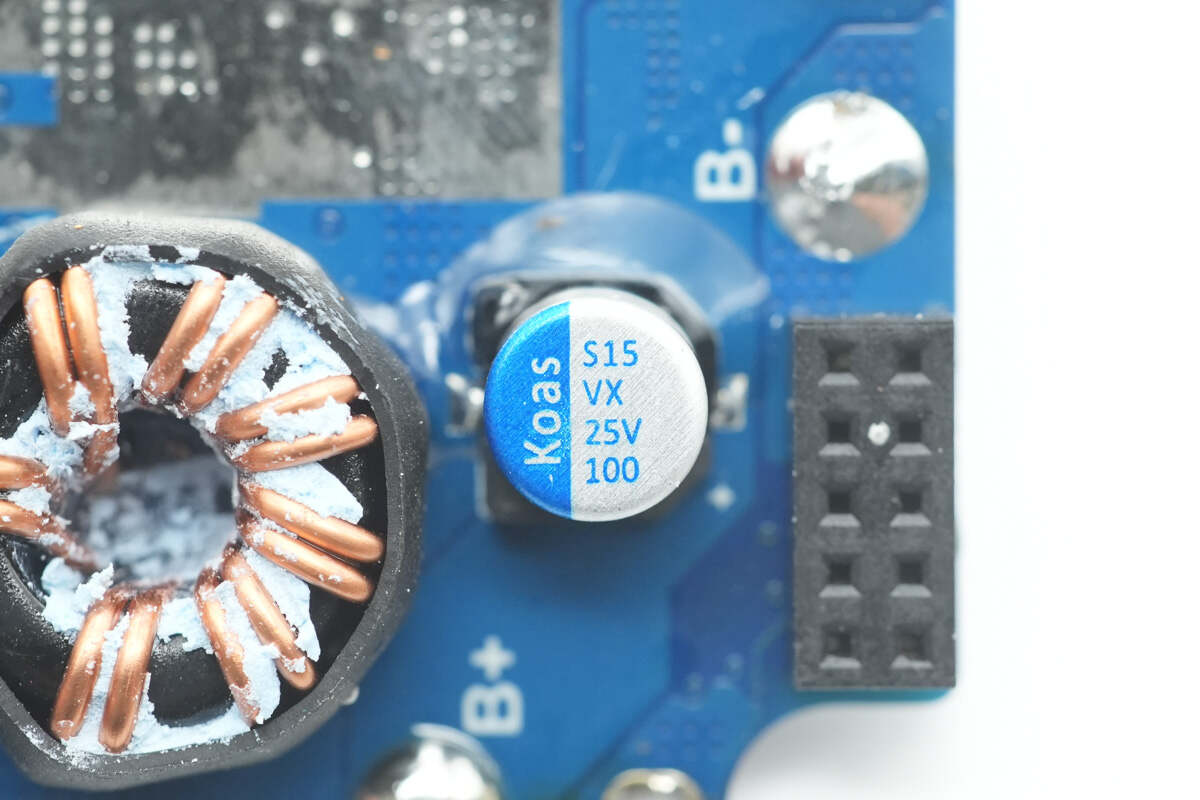
The input filter capacitor is from Koshin, part of the VX series of polymer conductive solid capacitors, rated at 25V 100μF. The bottom of the capacitor is reinforced with adhesive.
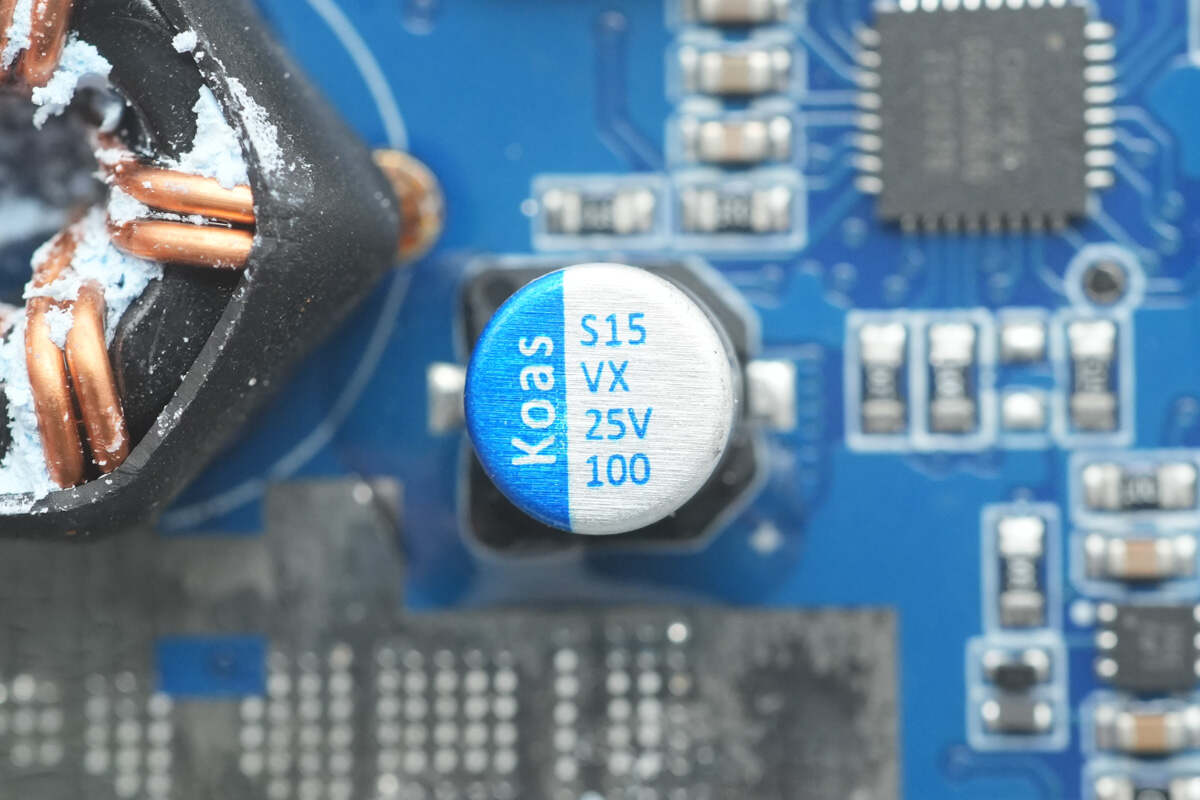
The output filter capacitor has the same specifications.
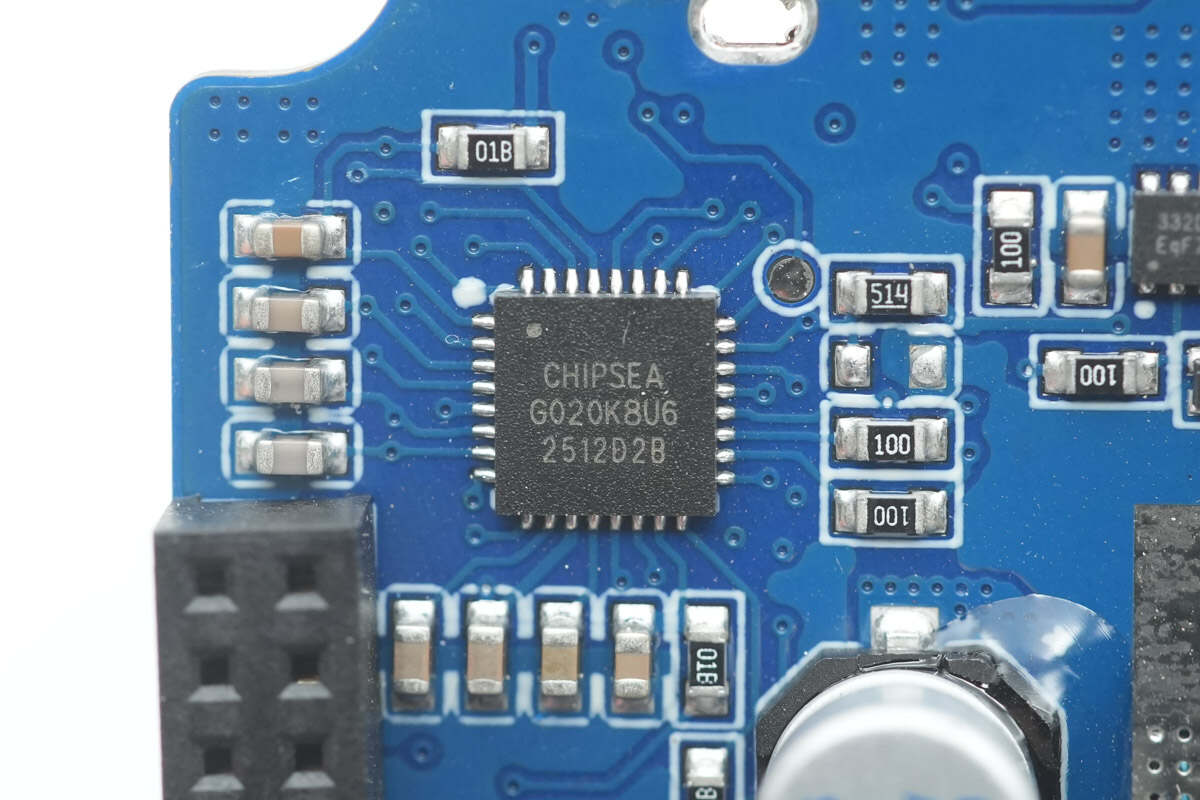
The protocol chip is from Chipsea, model CS32G020K8U6. It supports USB-C and PD3.0 protocols, and is designed for use in PC power adapters, fast-charging phone chargers, high-power power banks, car chargers, USB hubs, and similar applications.
It features a built-in ARM Cortex-M0 core with a 48 MHz operating frequency, 64 KB of program memory, 4 KB LDROM, and 8 KB SRAM. The chip supports a wide range of industrial control and high-performance processing scenarios, and is available in both QFN24 and QFN32 packages.

The VBUS MOSFET is from ALLEPIC, model AET3122CE. It is a P-channel MOSFET with a voltage rating of -30V and an on-resistance of 8.5mΩ, packaged in a PDFN50×60 form factor.
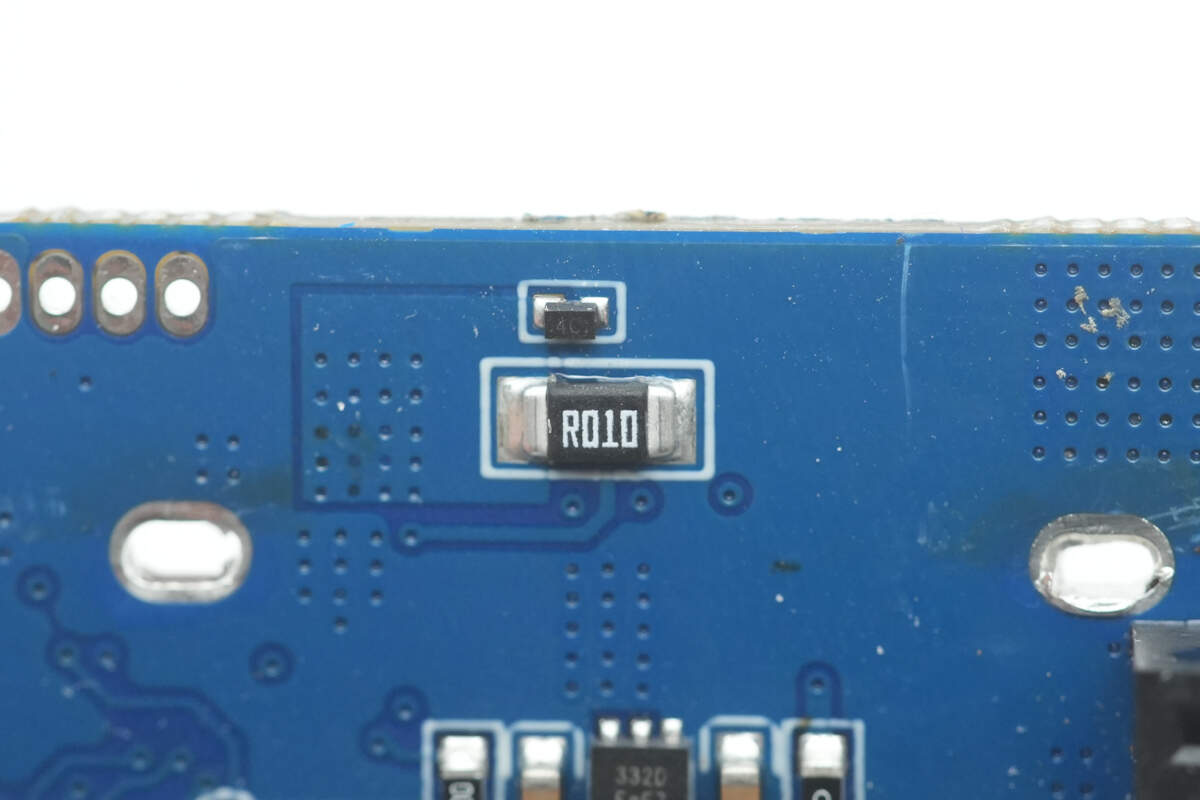
The 10mΩ sense resistor is used to monitor the output current.
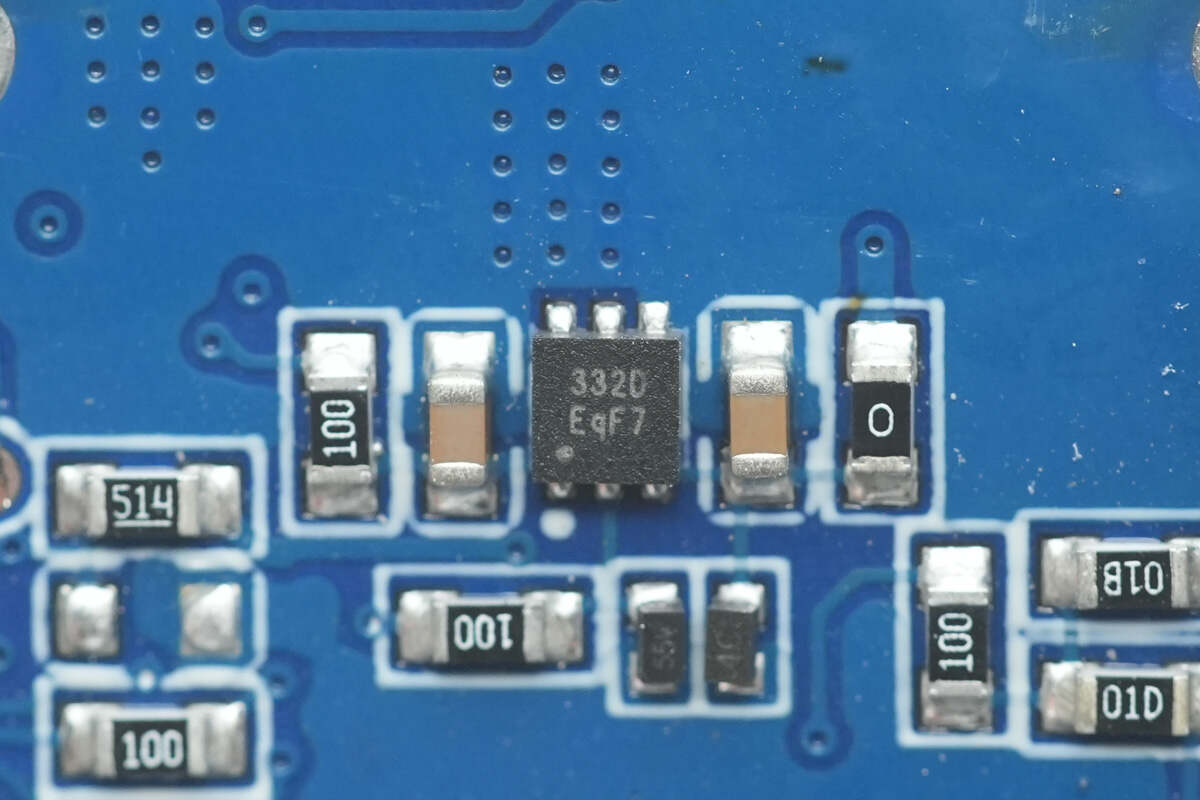
The E-Marker chip, marked with "332D" and model HUSB332D, is the latest USB Type-C electronic marker chip from Hynetek. It supports USB Type-C specification 2.2, USB Power Delivery (PD) specification 3.1, USB4 2.0, and Thunderbolt 3 and 4 protocols. It also supports the USB PD 3.1 Extended Power Range (EPR). The HUSB332D has been certified by the USB-IF Association with TID number 9125.
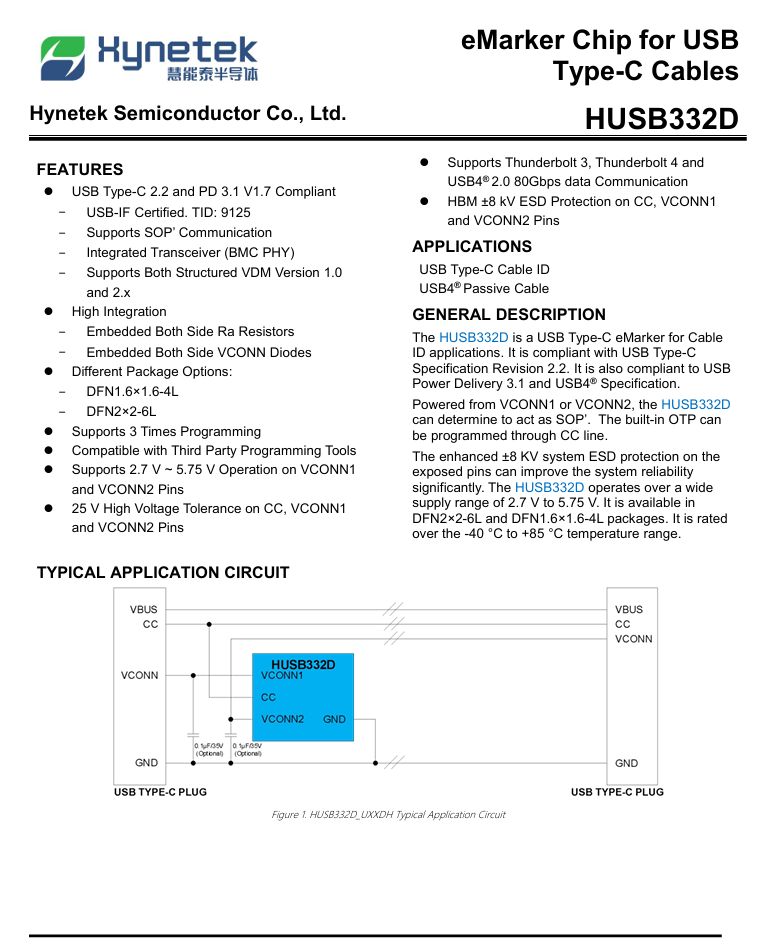
Here is the information about Hynetek HUSB332D.
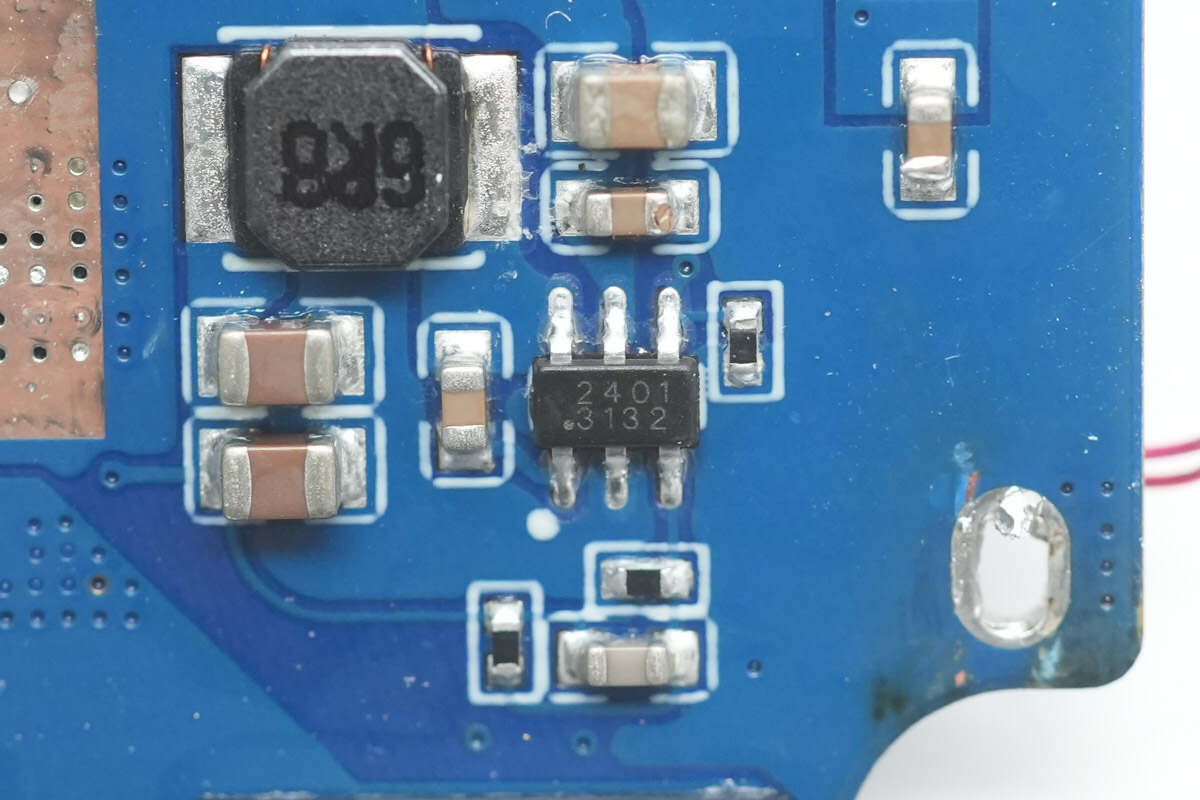
The buck converter chip is from SCT, model SCT2401. It is a synchronous buck converter with an input voltage range of 4.5–40V, a maximum output current of 600mA, and a switching frequency of 1.2MHz. It comes in a TSOT23-6 package.
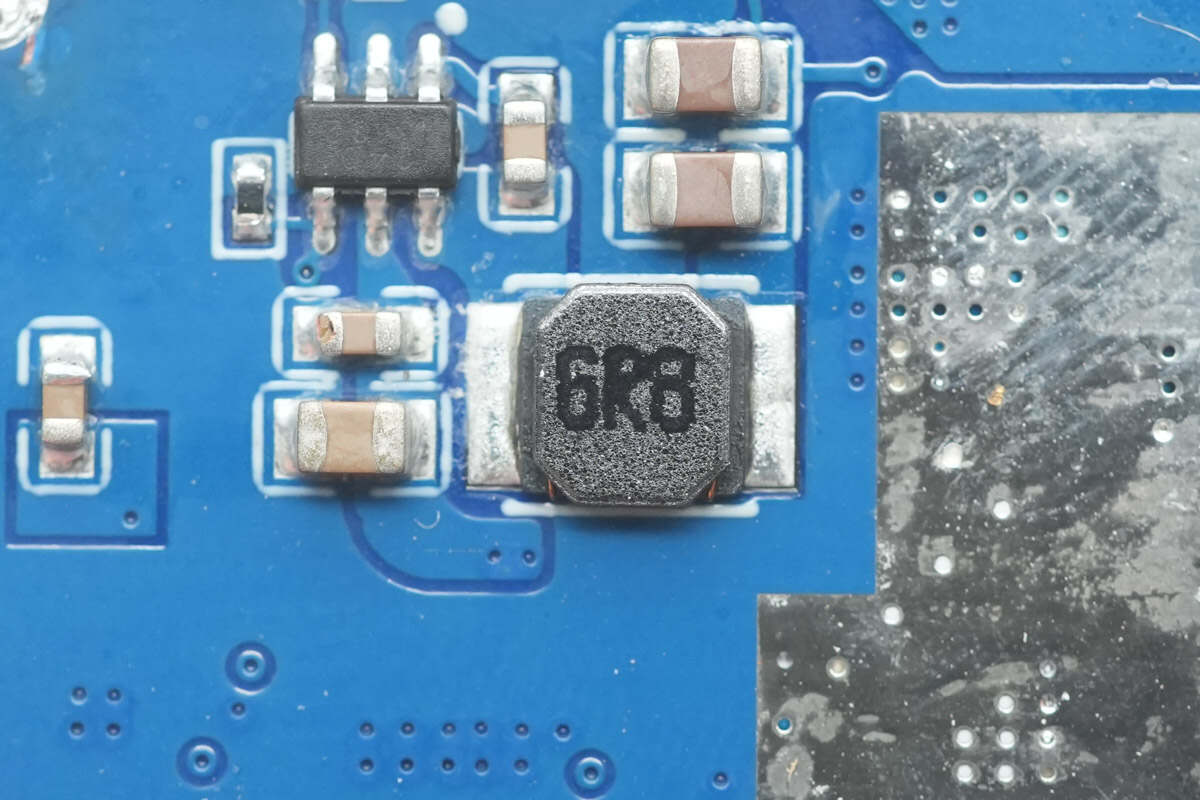
Close-up of the 6.8μH buck inductor.
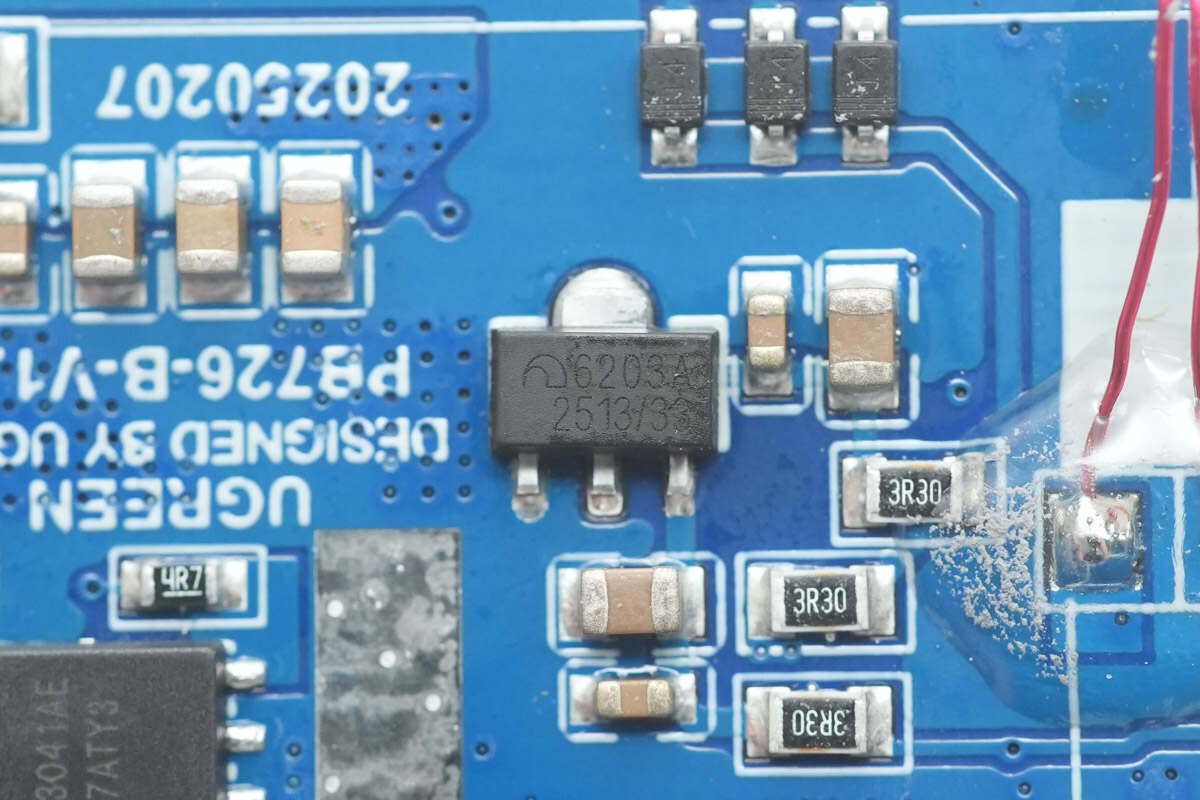
The Microne ME6203A33PG regulator supplies power to the protocol chip. It supports an input voltage of up to 30V, outputs 3.3V at 100mA, and comes in an SOT-89 package.
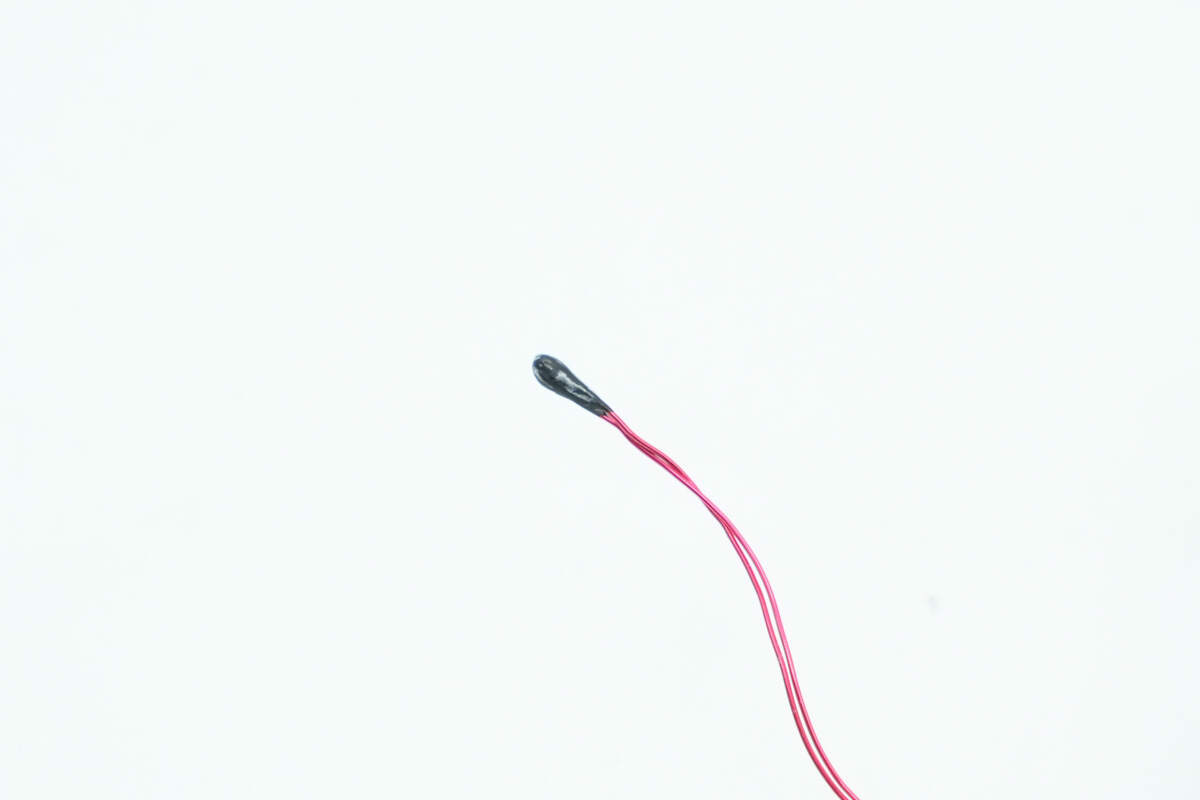
Close-up of the thermistor used for battery temperature monitoring.
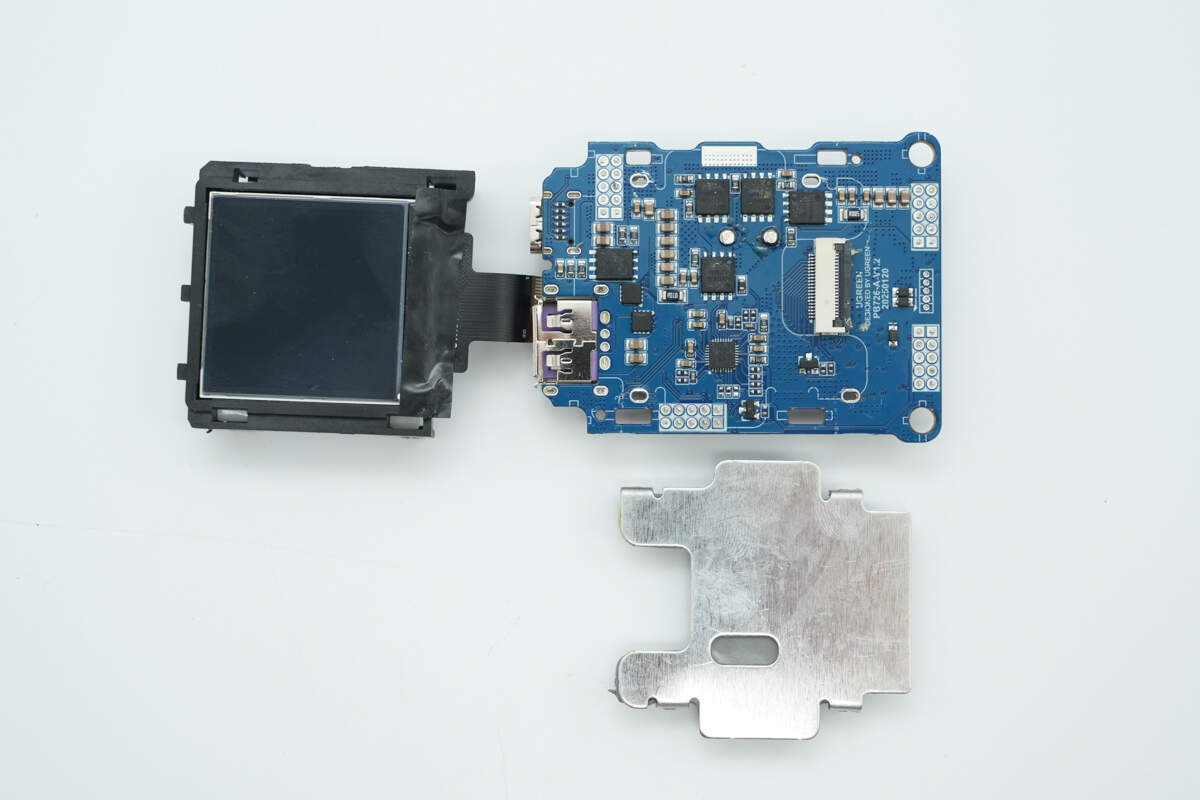
Disconnect the screen’s flexible flat cable and remove the attached heat sink.

The front side of this PCB features synchronous buck-boost MOSFETs, a VBUS MOSFET, and a synchronous buck-boost controller.
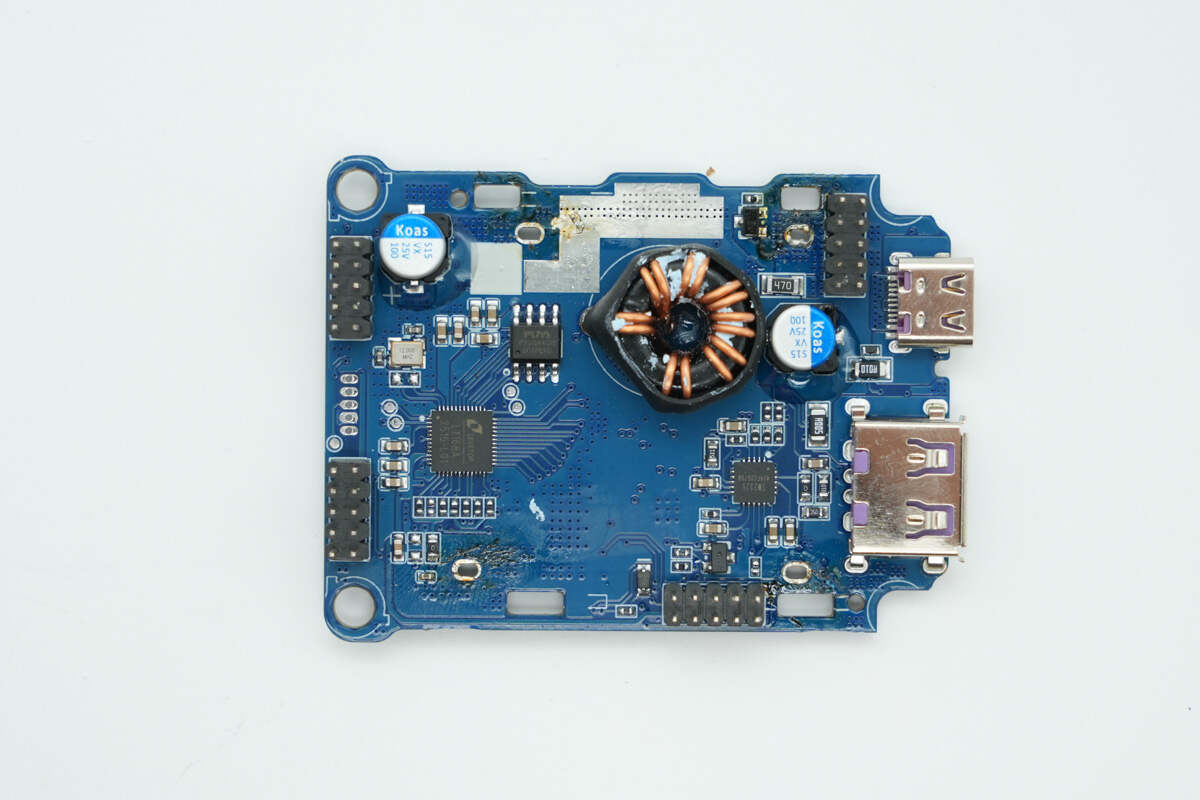
The other side has filter capacitors, a toroidal inductor, a screen driver chip, and a protocol chip.

The synchronous buck-boost controller uses the SouthChip SC8815A.
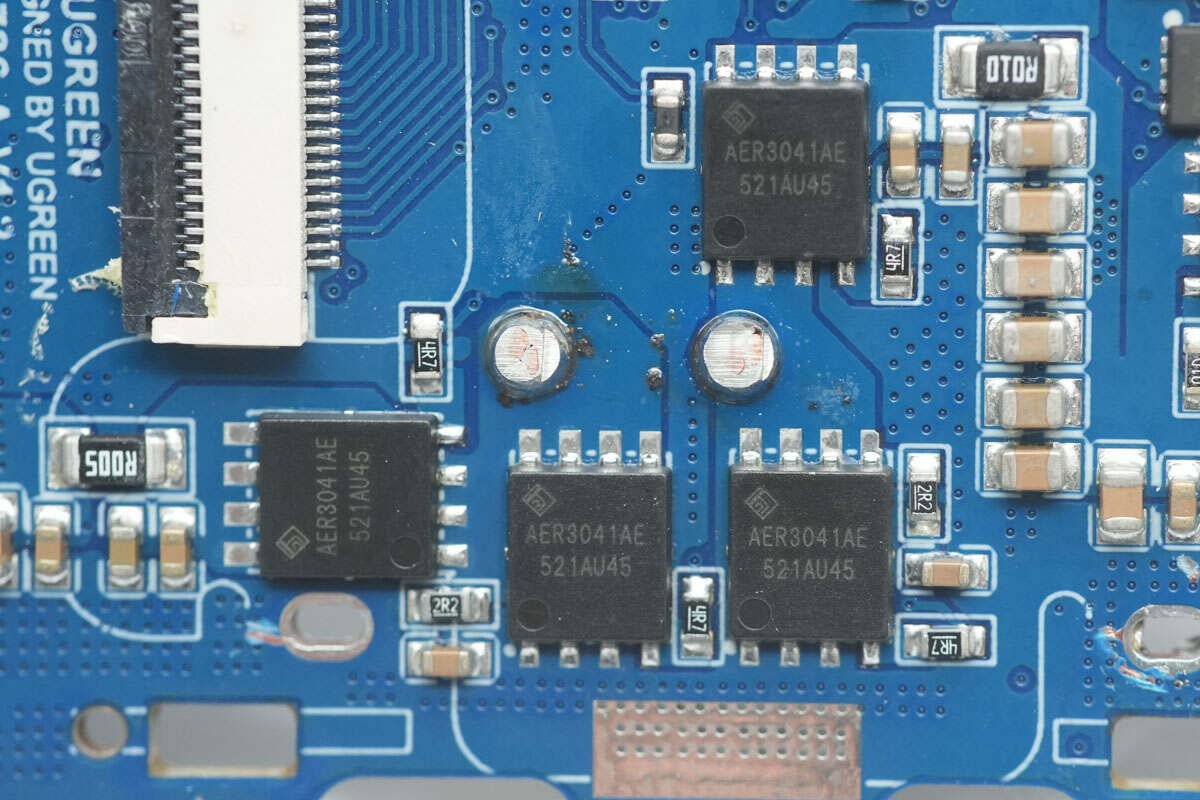
The synchronous buck-boost MOSFETs use the ALLEPIC AER3041AE.
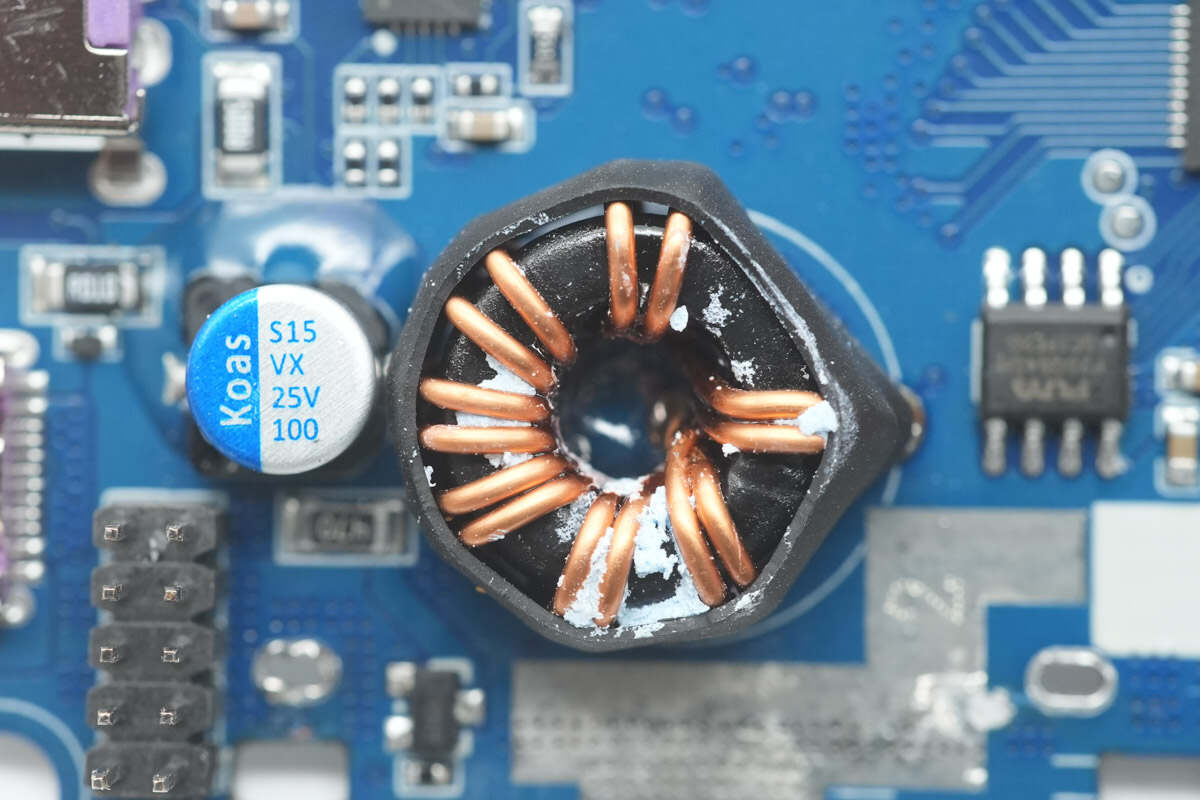
The toroidal inductor uses dual wires wound in parallel and is insulated with a heat-shrink tube.
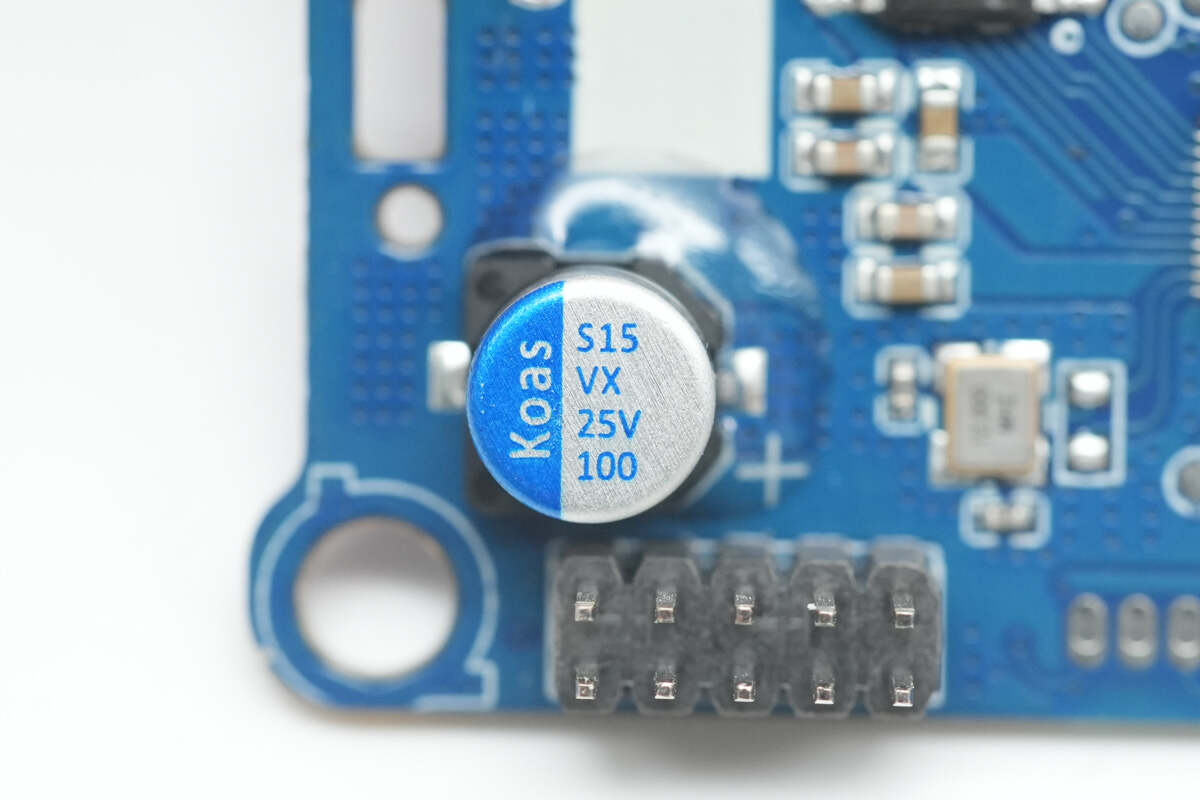
This filter capacitor is rated at 25V, 100μF.

The other filter capacitor has the same specifications.
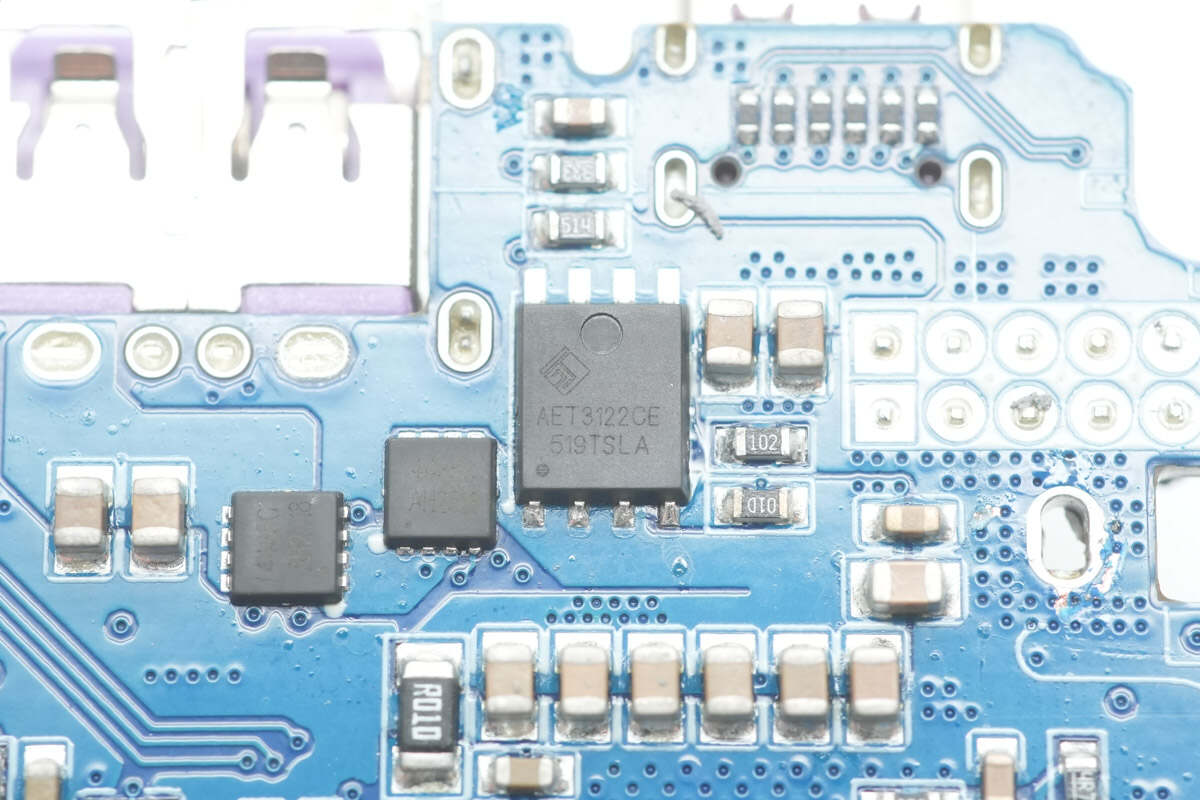
The VBUS MOSFET uses the ALLEPIC AET3122CE.
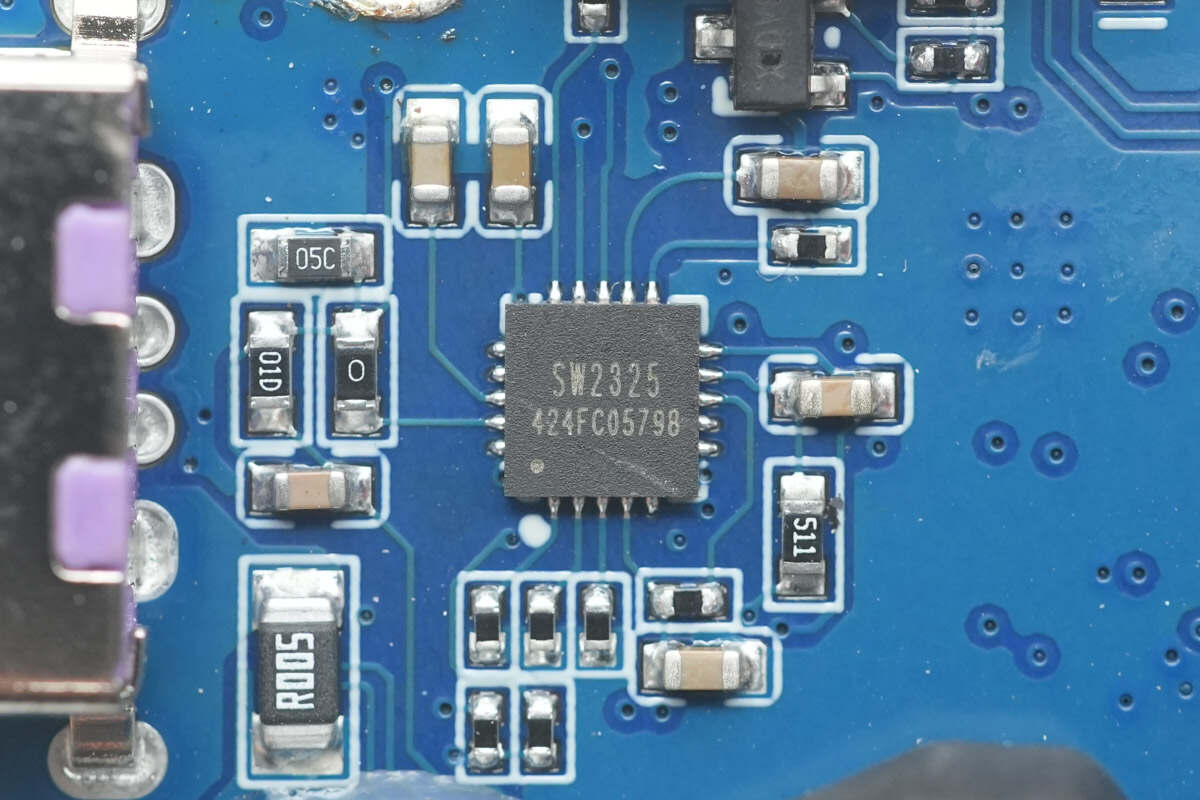
The protocol chip is from iSmartWare, model SW2325. It is a highly integrated Type-C/Type-A fast charging protocol chip featuring an internal ARM Cortex-M0 core with a maximum operating frequency of 40MHz. It includes 64KB automotive-grade eFlash and 4KB SRAM, and supports I2C and UART interfaces.
The chip integrates Type-C interface logic, USB PD PHY, SCP PHY, as well as detection circuits for QC, PE, SFCP, and TFCP fast charging protocols. It also includes optocoupler feedback and FB feedback driver circuits, NMOS and PMOS driver circuits, and CC/CV control loops. With multiple built-in safety protection features and minimal external components, it can be used with AC-DC or DC-DC converters, suitable for chargers, car chargers, or power banks. It comes in a QFN-20 package.

Here is the information about iSmartWare SW2325.
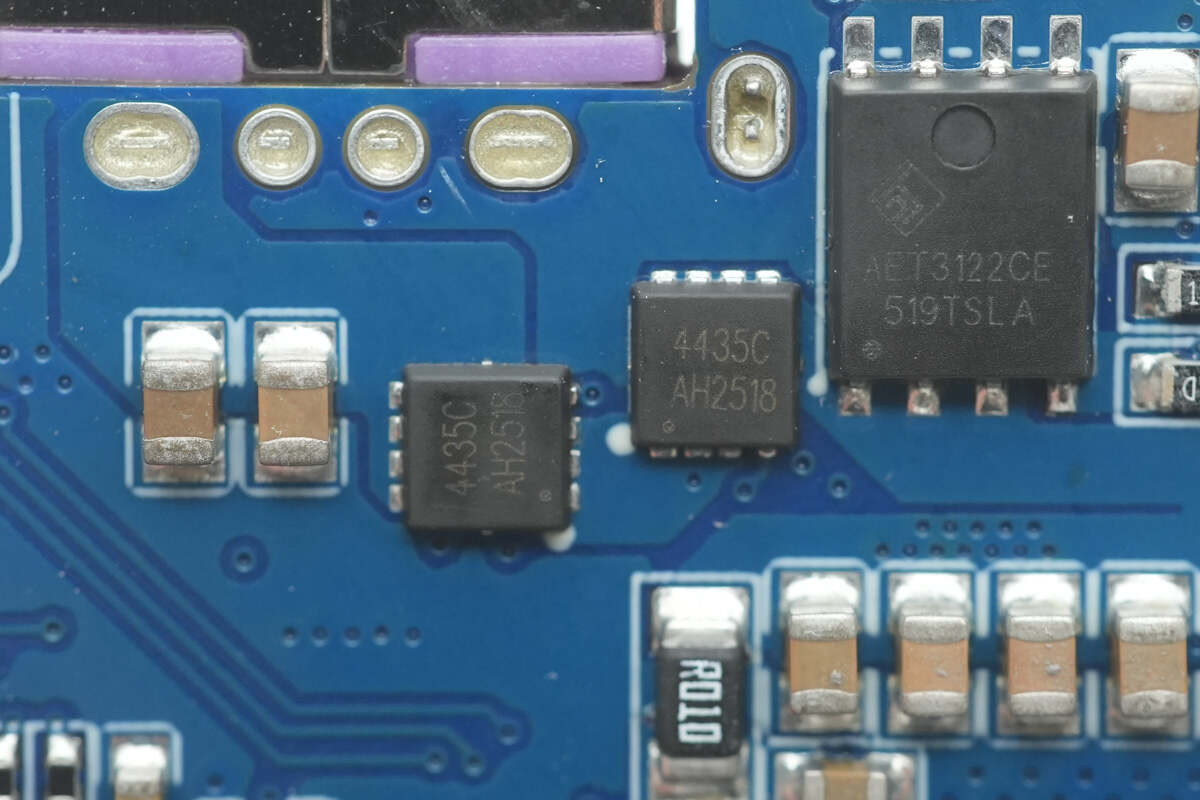
The VBUS MOSFET used for the USB-A port is marked with 4435C.
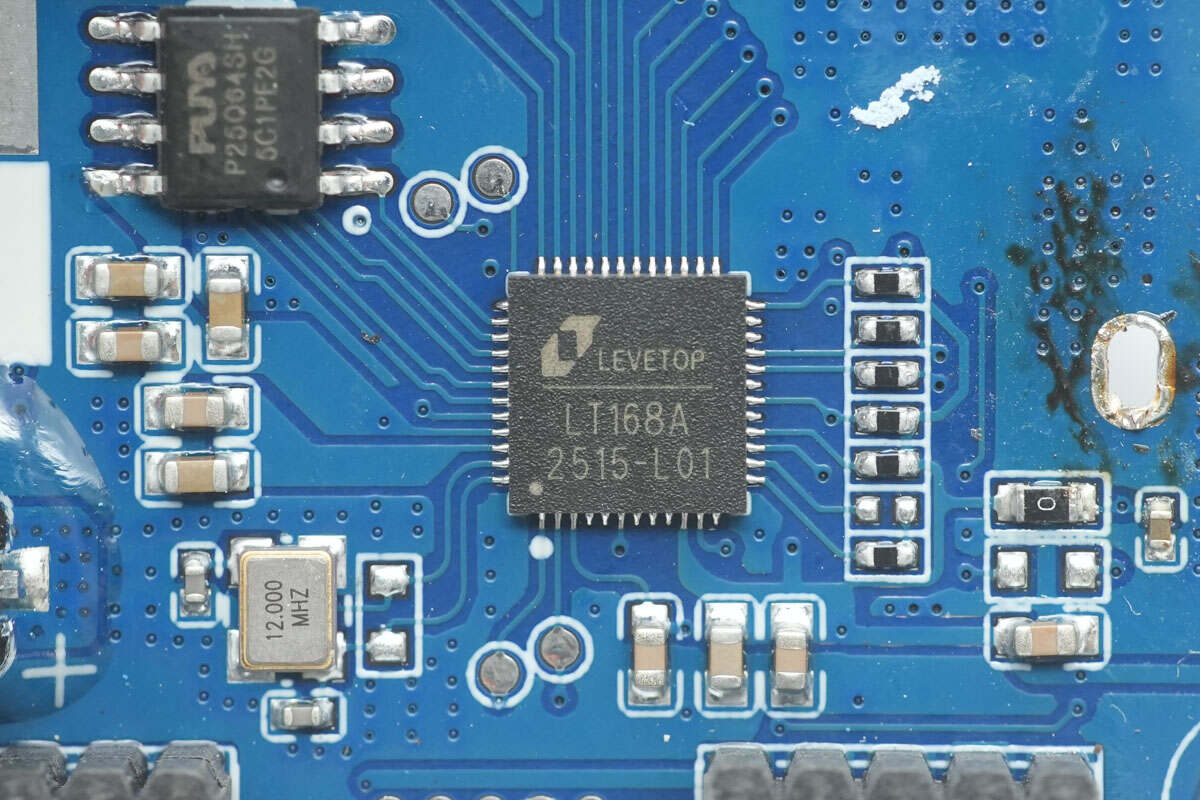
The screen driver chip is from LEVETOP, model LT168A. It features a built-in 32-bit RISC MCU, 512KB of flash memory, and 768KB of SRAM. The chip supports USB 2.0, SD card, I²C, UART, MCU interfaces, and SPI/QSPI display interfaces. It also supports touchscreen applications and comes in a QFN48 package.

Close-up of the 12.000 MHz crystal oscillator.
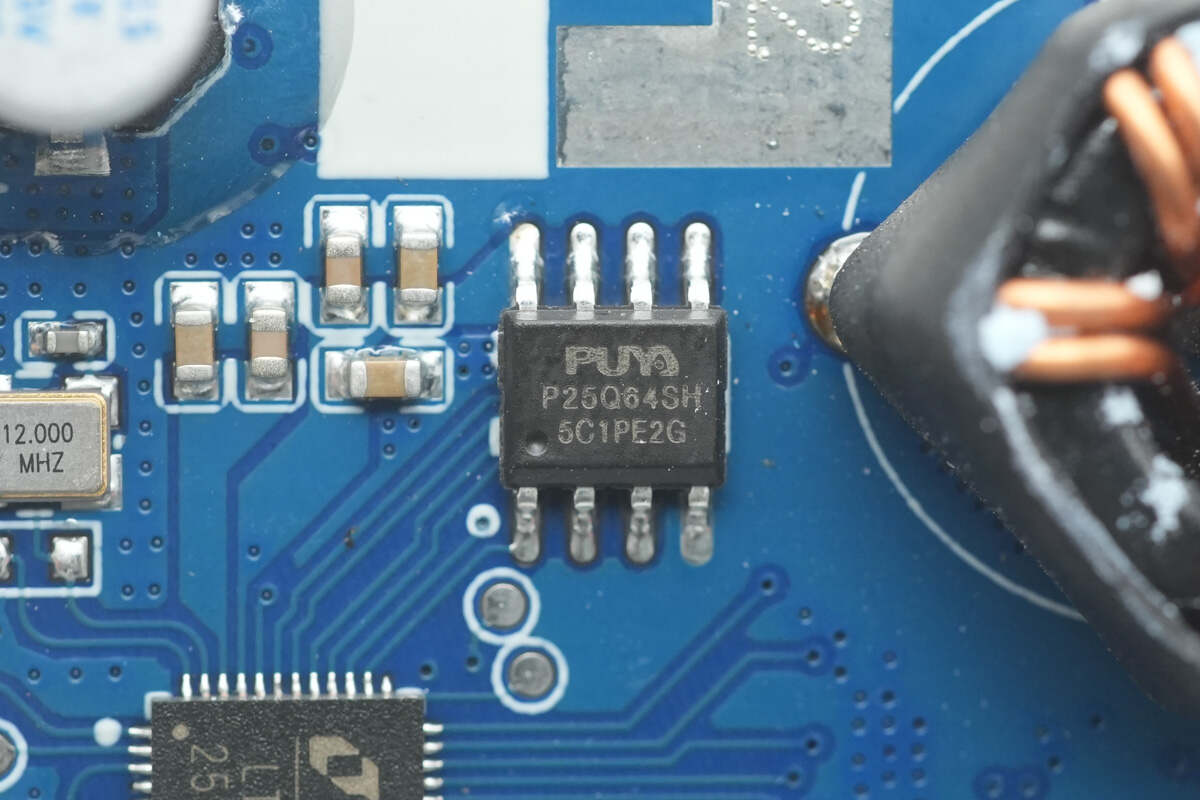
The memory chip is from Puya, model P25Q64SH, with a capacity of 8MB. It comes in an SOP8 package.
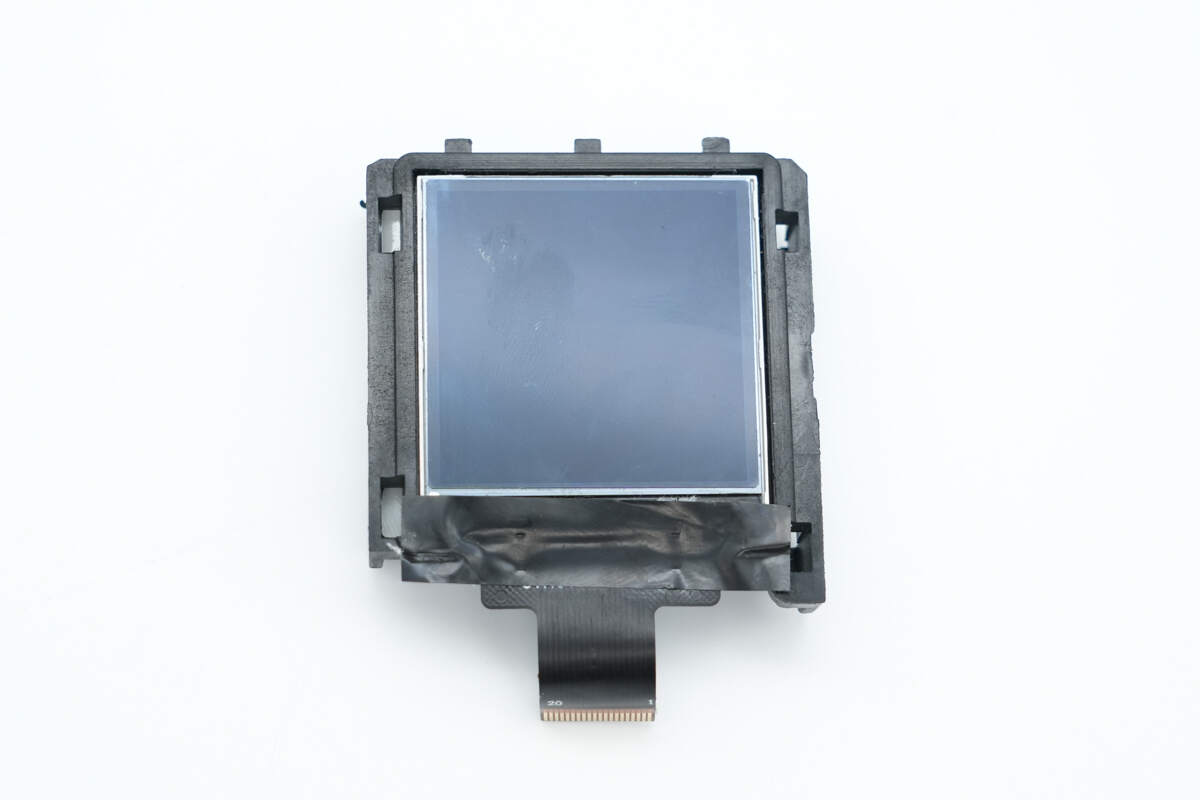
The screen is protected by a plastic frame.
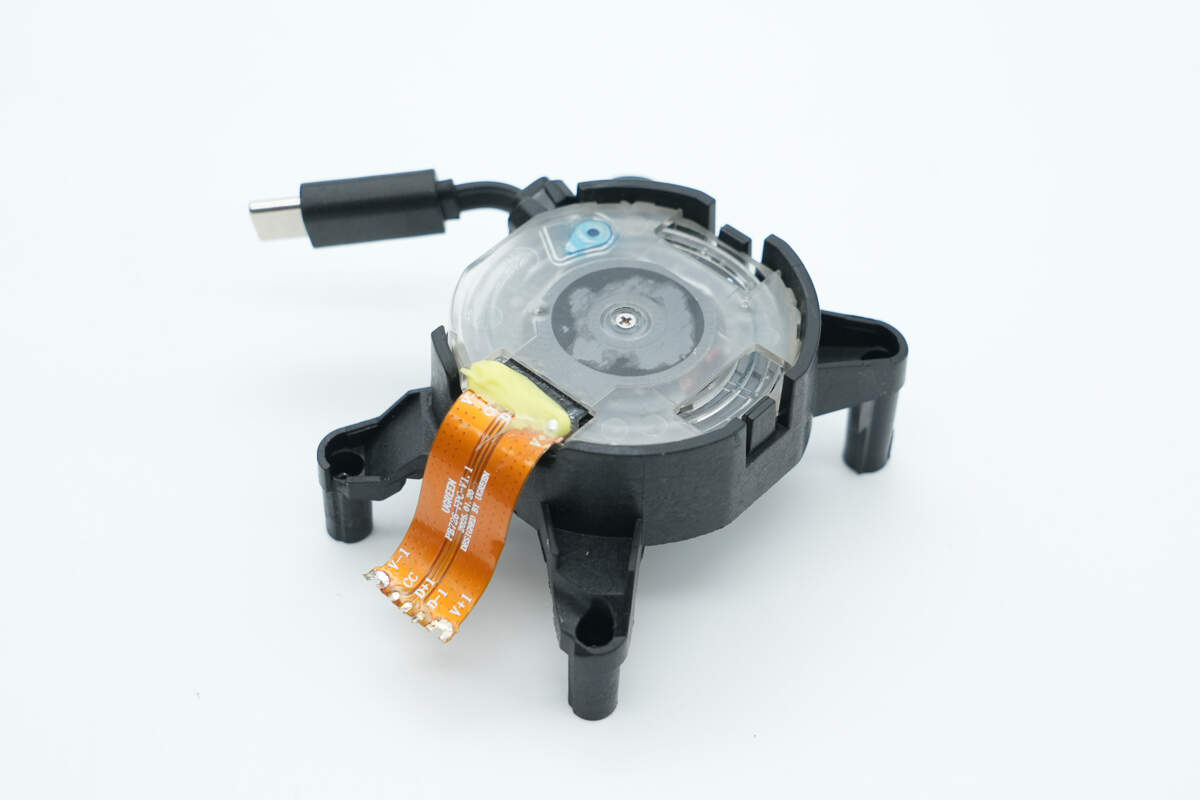
The retractable cable module is secured in place with clips.
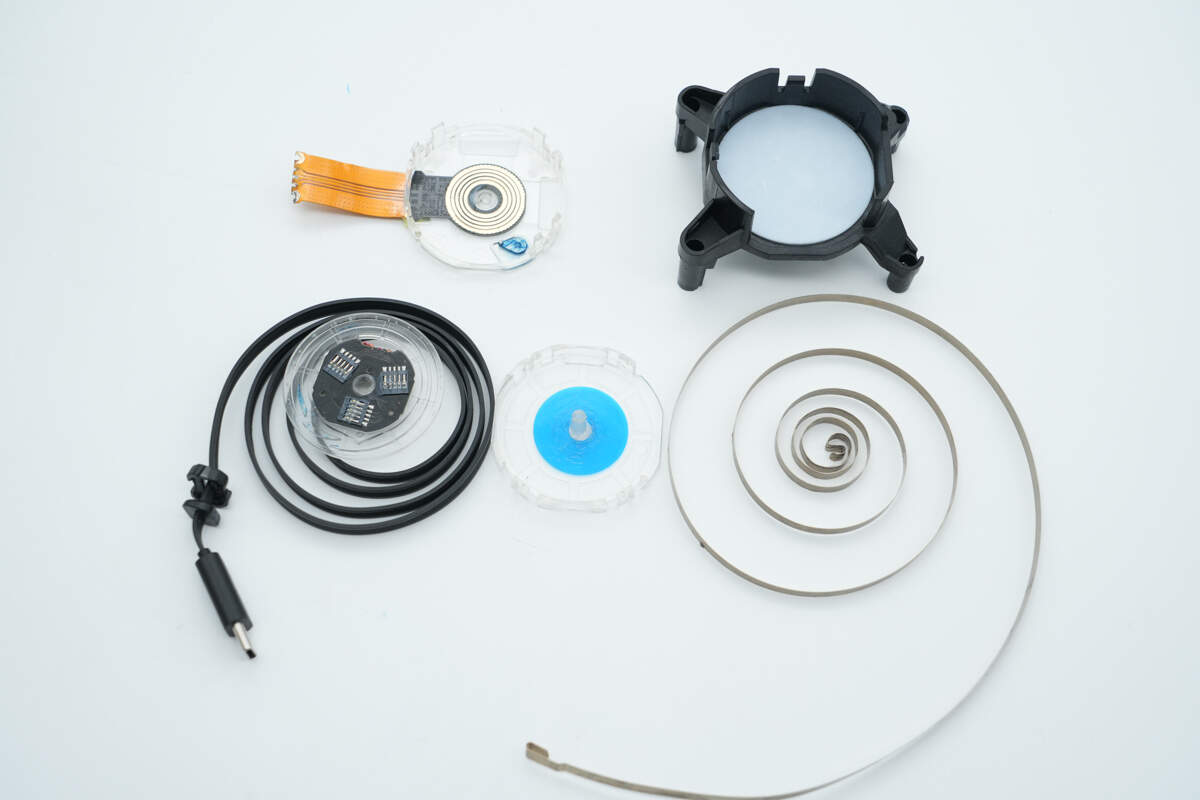
An overview of the retractable cable module after disassembly.
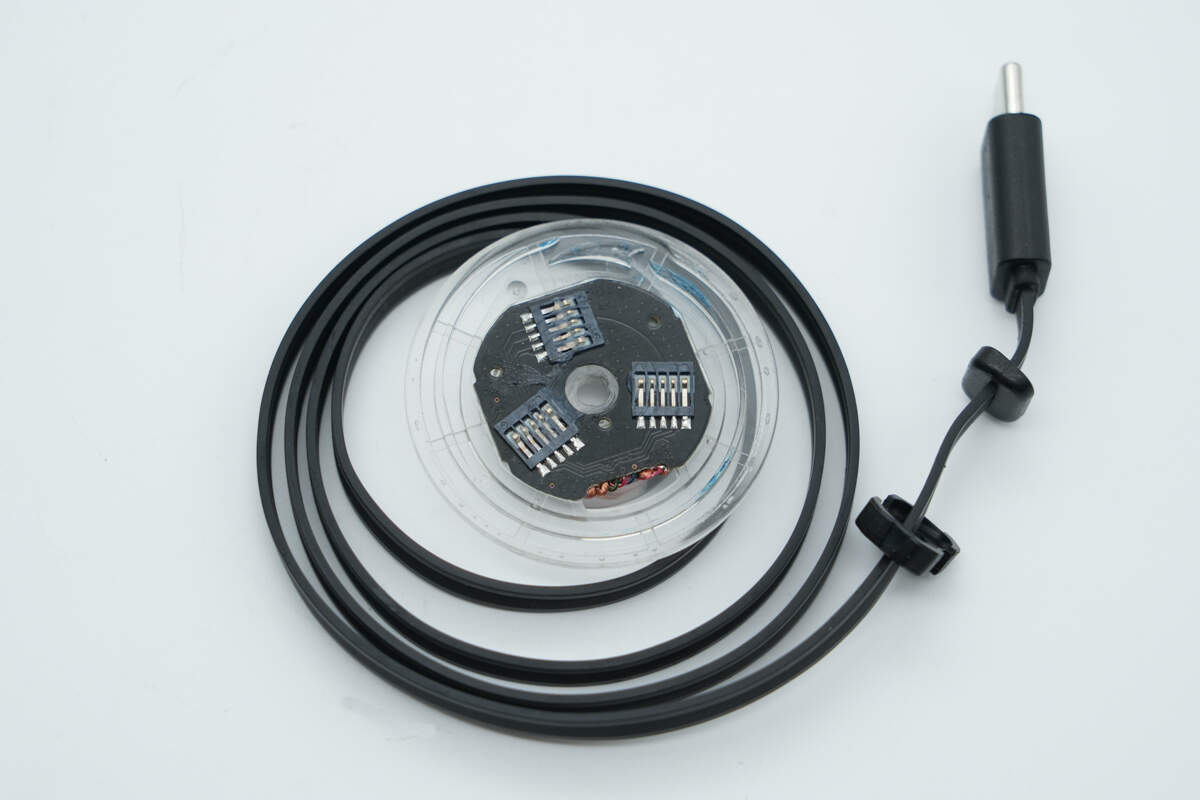
The cable spool is equipped with three brush contacts to enhance current-carrying capability.
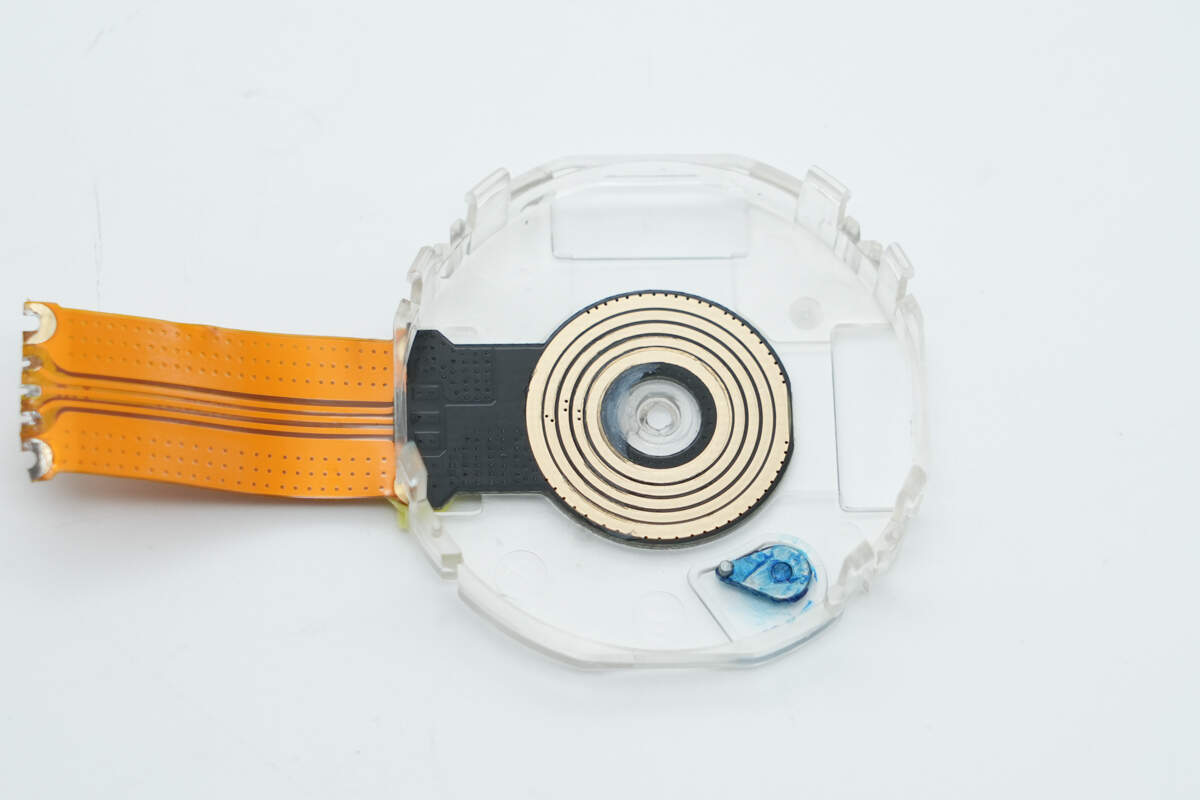
Close-up of the PCB slip ring.

Well, those are all components of the UGREEN Nexode 20000mAh 165W Power Bank.
Summary of ChargerLAB
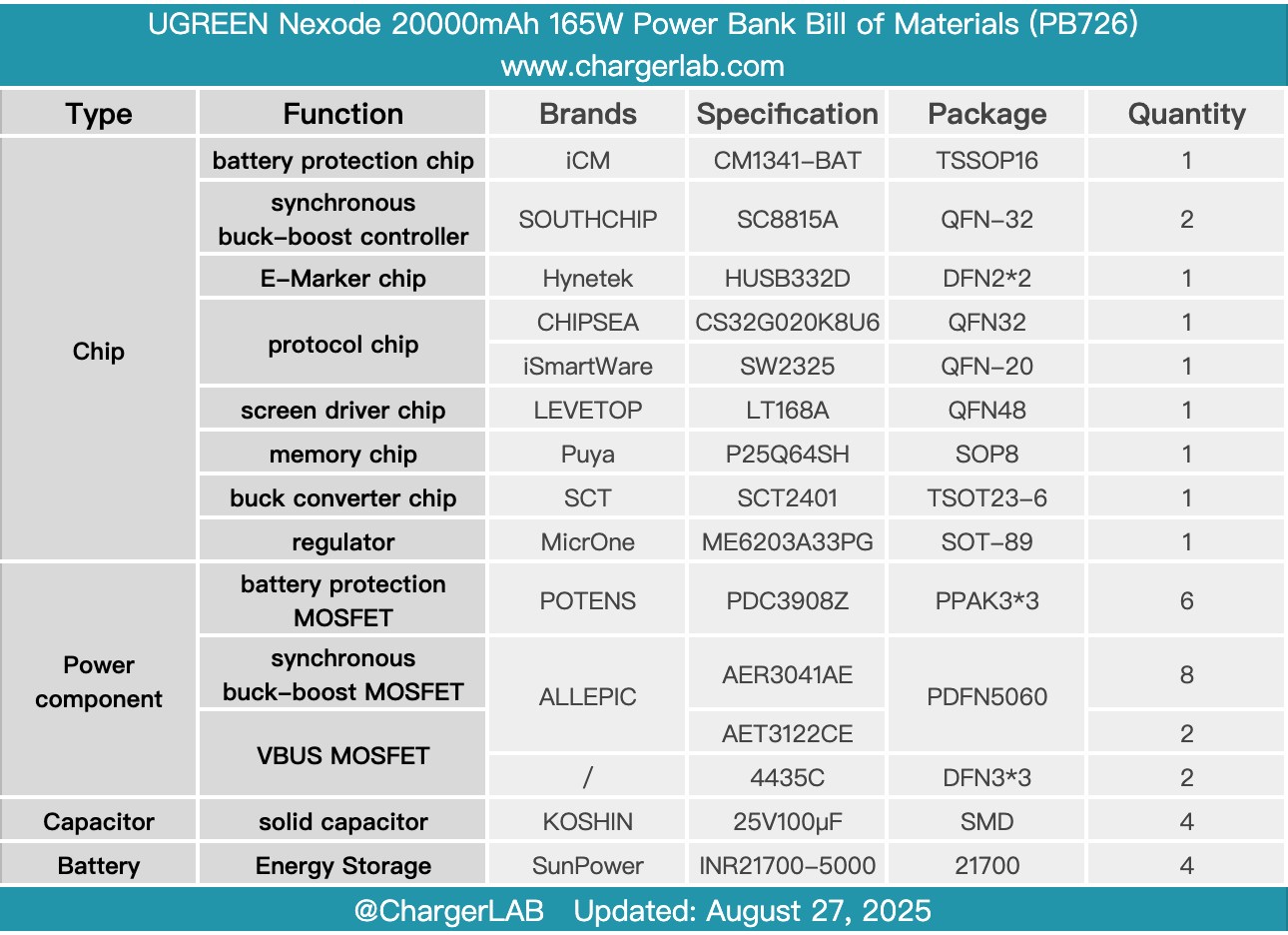
Here is the component list of the UGREEN Nexode 20000mAh 165W Power Bank for your convenience.
It comes with a USB-C retractable cable for convenient use. Both the cable and the USB-C port support 100W input and output, with a combined power distribution of 100W + 65W when output simultaneously. The front features a digital display screen that shows voltage, current, and other parameters, making it easy to monitor the device’s status.
After taking it apart, we found that it uses a dual-layer stacked PCB design to maximize internal space utilization. The battery pack consists of SunPower INR21700-5000 cells connected in series and secured within an insulating frame. It connects to the PCBA module via wiring, and the battery protection PCB uses an iCM CM1341-BAT protection chip with integrated cell balancing circuitry.
The two PCBs are connected via pin headers and equipped with heat sinks. Both synchronous buck-boost circuits use the SouthChip SC8815A controller paired with ALLEPIC AER3041AE MOSFETs. USB-C port control is handled by the Chipsea CS32G020K8U6, while the USB-A port uses the iSmartWare SW2325 protocol chip.
The display is driven by the LEVETOP LT168A, working alongside a Puya P25Q64SH memory chip. The synchronous buck converter SCT2401 is from SCT, with a Microne ME6203 regulator for stable voltage output. Koshin solid capacitors are used for both input and output filtering. Overall, the build quality is solid and the components are well-chosen, offering a reliable and safe user experience.
Related Articles:
1. Teardown of Walmart Onn. 72W Multi-Port GaN Wall Charger (WIAWHT36008513)
2. Teardown of HUNDA 300W USB-C GaN Charging Station (A2319-300W-02)
3. Teardown of UGREEN Nexode Car Charger 145W with Retractable USB‑C Cable (EC604)

